
The Project Gutenberg EBook of Reliques of Ancient English Poetry, Volume
II (of 3), by Thomas Percy
This eBook is for the use of anyone anywhere at no cost and with
almost no restrictions whatsoever. You may copy it, give it away or
re-use it under the terms of the Project Gutenberg License included
with this eBook or online at www.gutenberg.org
Title: Reliques of Ancient English Poetry, Volume II (of 3)
Consisting of Old Heroic Ballads, Songs and Other Pieces
of Our Earlier Poets Together With Some Few of Later Date
Author: Thomas Percy
Editor: Henry B. Wheatley
Release Date: June 11, 2014 [EBook #45940]
Language: English
Character set encoding: ISO-8859-1
*** START OF THIS PROJECT GUTENBERG EBOOK RELIQUES OF ENGLISH POETRY, VOL II ***
Produced by Richard Tonsing, Jonathan Ingram and the Online
Distributed Proofreading Team at http://www.pgdp.net

PERCY'S RELIQUES.
BY
THOMAS PERCY, D.D.
BISHOP OF DROMORE
EDITED, WITH A GENERAL INTRODUCTION, ADDITIONAL
PREFACES, NOTES, GLOSSARY, ETC.
BY
HENRY B. WHEATLEY, F.S.A.
IN THREE VOLUMES
VOL. II
LONDON: GEORGE ALLEN & UNWIN LTD.
RUSKIN HOUSE 40 MUSEUM STREET, W.C.1
| First Published by Swan Sonnenschein | April | 1885 |
| Reprinted | August | 1891 |
| " | August | 1899 |
| " | December | 1909 |
| " | January | 1927 |
Printed by the Riverside Press Limited, Edinburgh
Great Britain

| BOOK THE FIRST. | ||
|---|---|---|
| Page | ||
| 1. | 
Richard of Almaigne |
3 |
| 2. | On the Death of K. Edward the First | 10 |
| 3. | An original Ballad by Chaucer | 14 |
| 4. | The Turnament of Tottenham | 17 |
| 5. | For the Victory at Agincourt | 29 |
| 6. | The Not-Browne Mayd | 31 |
| 7. | A balet, by the Earl Rivers | 48 |
| 8. | Cupid's Assault: by Lord Vaux | 50 |
| 9. | Sir Aldingar | 54 |
| Copy from the Folio MS. | 61 | |
| 10. | The Gaberlunyie man. A Scottish Song | 67 |
| 11. | On Thomas Lord Cromwell | 71 |
| 12. | Harpalus. An Ancient English Pastoral | 75 |
| 13. | Robin and Makyne. An Ancient Scottish Pastoral | 79 |
| 14. | Gentle Herdsman, tell to me | 86 |
| 15. | K. Edward IV. and the Tanner of Tamworth | 92 |
| 16. | As ye came from the Holy Land | 101 |
| Copy from the Folio MS. | 104 | |
| 17. | Hardyknute. A Scottish Fragment | 105 |
BOOK THE SECOND. |
||
| 1. | A Ballad of Luther, the Pope, a Cardinal, and a Husbandman | 125 |
| 2. | John Anderson my Jo. A Scottish Song | 131 |
| 3. | Little John Nobody | 133 |
| 4. | Q. Elizabeth's Verses, while Prisoner at Woodstock | 137 |
| 5. | The Heir of Linne | 138 |
| Copy from the Folio MS.[Pg vi] | 147 | |
| 6. | Gascoigne's Praise of the fair Bridges, afterwards Lady Sandes | 150 |
| 7. | Fair Rosamond. By Thomas Delone | 154 |
| 8. | Queen Eleanor's Confession | 164 |
| 9. | The Sturdy Rock | 169 |
| 10. | The Beggar's Daughter of Bednall-Green | 171 |
| Extract from the Folio MS. | 181 | |
| An Essay on the Word Fit, and the ancient Ballad-singing | 182 | |
| 11. | Fancy and Desire. By the Earl of Oxford | 185 |
| 12. | Sir Andrew Barton | 188 |
| Copy from the folio MS. | 201 | |
| 13. | Lady Anne Bothwell's Lament. A Scottish Song | 209 |
| 14. | The Murder of the King of Scots | 213 |
| 15. | A Sonnet by Q. Elizabeth | 218 |
| 16. | King of Scots and Andrew Browne. By W. Elderton | 221 |
| 17. | The Bonny Earl of Murray. A Scottish Song | 226 |
| 18. | Young Waters. A Scottish Song | 228 |
| 19. | Mary Ambree | 231 |
| Copy from the Folio MS. | 235 | |
| 20. | Brave Lord Willoughbey | 238 |
| 21. | Victorious Men of Earth. By James Shirley | 242 |
| 22. | The Winning of Cales | 243 |
| 23. | The Spanish Lady's Love | 247 |
| 24. | Argentile and Curan. By W. Warner | 252 |
| 25. | Corin's Fate | 262 |
| 26. | Jane Shore | 263 |
| 27. | Corydon's doleful Knell | 274 |
BOOK THE THIRD. |
||
| 1. | The Complaint of Conscience | 279 |
| 2. | Plain Truth and Blind Ignorance | 285 |
| 3. | The Wandering Jew | 291 |
| 4. | The Lye. By Sir Walter Raleigh | 297 |
| 5. | Verses (viz. two Sonnets) by K. James I. | 300 |
| 6. | K. John and the Abbot of Canterbury | 303 |
| Copy from the Folio MS. | 308 | |
| 7. | You Meaner Beauties. By Sir Henry Wotton | 312 |
| 8. | The Old and Young Courtier | 314 |
| 9. | Sir John Suckling's Campaigne | 318 |
| 10. | To Althea from Prison. By Col. Lovelace | 321 |
| 11. | The Downfall of Charing-Cross | 323 |
| 12. | Loyalty Confined[Pg vii] | 326 |
| 13. | Verses, by King Charles I. | 329 |
| 14. | The Sale of Rebellious Houshold Stuff | 332 |
| 15. | The Baffled Knight, or Lady's Policy | 336 |
| 16. | Why so Pale? By Sir John Suckling | 343 |
| 17. | Old Tom of Bedlam. Mad Song the First | 344 |
| 18. | The Distracted Puritan. Mad Song the Second | 347 |
| 19. | The Lunatic Lover. Mad Song the Third | 351 |
| 20. | The Lady Distracted with Love. Mad Song the Fourth | 354 |
| 21. | The Distracted Lover. Mad Song the Fifth | 355 |
| 22. | The Frantic Lady. Mad Song the Sixth | 357 |
| 23. | Lilliburlero. By the Marquis of Wharton | 358 |
| 24. | The Braes of Yarrow. In imitation of the ancient Scots manner. By Wm. Hamilton | 362 |
| 25. | Admiral Hosier's Ghost. By Richard Glover | 367 |
| 26. | Jemmy Dawson. By William Shenstone | 371 |
APPENDIX. |
||
| On the Alliterative Metre, without Rhyme, in Pierce Plowman's Visions | 377 | |
INDEX. |
||
| Of Ballads and Poems in the Second Volume | 395 | |
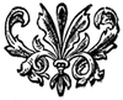

RELIQUES OF ANCIENT POETRY, ETC.
SERIES THE SECOND.

"Though some make slight of Libels, yet you may see by them how the wind sits: As, take a straw and throw it up into the air, you may see by that which way the wind is, which you shall not do by casting up a stone. More solid things do not shew the complexion of the times so well as Ballads and Libels."—Selden's Table-Talk.

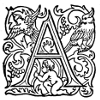
"A ballad made by one of the adherents to Simon de Montfort, Earl of Leicester, soon after the battle of Lewes, which was fought May 14, 1264,"
—affords a curious specimen of ancient satire, and shews that the liberty, assumed by the good people of this realm, of abusing their kings and princes at pleasure, is a privilege of very long standing.
To render this antique libel intelligible, the reader is to understand that just before the battle of Lewes, which proved so fatal to the interests of Henry III., the barons had offered his brother Richard, King of the Romans, 30,000l. to procure a peace upon such terms, as would have divested Henry of all his regal power, and therefore the treaty proved abortive. The consequences of that battle are well-known: the king, prince Edward his son, his brother Richard, and many of his friends, fell into the hands of their enemies: while two great barons of the king's party, John, Earl of Warren, and Hugh Bigot, the king's justiciary, had been glad to escape into France.
In the first stanza the aforesaid sum of thirty thousand pounds is alluded to, but with the usual misrepresentation of party malevolence, is asserted to have been the exorbitant demand of the king's brother.
With regard to the second stanza the reader is to note that Richard, along with the earldom of Cornwall, had the honours of Walingford and Eyre confirmed to him on his marriage with Sanchia, daughter of the Count of Provence, in 1243. Windsor Castle was the chief fortress belonging to the king, and had been[Pg 4] garrisoned by foreigners: a circumstance which furnishes out the burthen of each stanza.
The third stanza alludes to a remarkable circumstance which happened on the day of the battle of Lewes. After the battle was lost, Richard, king of the Romans, took refuge in a windmill, which he barricaded, and maintained for some time against the barons, but in the evening was obliged to surrender. See a very full account of this in the Chronicle of Mailros, Oxon. 1684, p. 229.[1]
The fourth stanza is of obvious interpretation: Richard, who had been elected king of the Romans in 1256, and had afterwards gone over to take possession of his dignity, was in the year 1259 about to return into England, when the barons raised a popular clamour, that he was bringing with him foreigners to over-run the kingdom: upon which he was forced to dismiss almost all his followers, otherwise the barons would have opposed his landing.
In the fifth stanza the writer regrets the escape of the Earl of Warren, and in the sixth and seventh stanzas insinuates that if he and Sir Hugh Bigot once fell into the hands of their adversaries, they should never more return home; a circumstance which fixes the date of this ballad, for, in the year 1265, both these noblemen landed in South Wales, and the royal party soon after gained the ascendant. See Holinshed, Rapin, &c.
The following is copied from a very ancient MS. in the British Museum. (Hart. MSS. 2253, fol. 58 v°.) This MS. is judged, from the peculiarities of the writing, to be not later than the time of Richard II.; th being everywhere expressed by the character þ; the y is pointed after the Saxon manner, and the i hath an oblique stroke over it.
[The date of the MS. in which this ballad occurs is usually placed at an earlier period than that fixed upon by Percy. Mr. Thomas Wright, who prints it in his volume of Political Songs of England (Camden Society), with several other poems in French, Anglo-Norman, and Latin, on Simon de Montfort and the Barons' Wars, assigns it to the reign of Edward II. It will be seen from Percy's note to verse 44, that the last stanza was printed for the first time in the fourth edition of the Reliques. This is explained by the fact that these lines are written on a new folio of the MS., and must therefore have been overlooked by the original copyist.
This little poem is without rival as an early exhibition of English popular feeling in the vernacular; and it also stands alone as the first dated English historical ballad in existence. It was probably [Pg 5]written during the first flush of enthusiasm after the memorable battle of Lewes, because, before a year had gone by, victory had passed to the other side, and at the battle of Evesham, fought on the 4th of August, 1265, Simon, his eldest son Henry, and a host of distinguished men, fell on the fatal field. As Drayton sang:
Prince Edward, who had passed his boyhood in Henry's company and was much attached to him, personally attended his funeral.
Richard, Earl of Cornwall, brother of Henry III., was elected King of the Romans on the 13th of January, 1256-7, at Frankfort, and is styled in Latin documents Rex Alemanniæ. In earlier times Richard had been a leader of malecontents, and "all from the child to the old man heaped frequent blessings upon him," but Montfort (then a courtier) gained him over to the King's side, and the insurgents were in consequence dispersed.
Richard was probably not so base a man as the writer of the ballad would wish us to believe, and a good action is recorded of him which was very ill returned. He interceded for the life of De Montfort's second son Simon, when that youth surrendered to the royal party at Northampton in 1266, and he was successful in his suit. In 1271, Simon and his brother Guy assassinated Henry, Richard's son, then in the suite of Philip of France, on his return from the Holy Land, while he was at mass in the church of St. Lawrence, at Viterbo. Richard himself died in this same year at Berkhampstead, and his estates descended to his son Edmond, Earl of Cornwall.
The uncertain manner in which biographic honours are apportioned is noteworthy, and a writer in the Quarterly Review (vol. cxix. p. 26) very justly points out a deficiency in English literature, when he writes that Simon de Montfort V., second Earl of Leicester, "the founder of the English House of Commons, has had no biographer."[2] Mr. Freeman, however, promises to do full honour to his memory in a forthcoming volume of his history.
This is not the place to give any detailed account of De Montfort, but a few words on the great leader may be allowable, more particularly as Percy's introduction does injustice to the anti-royalist party.
Simon de Montfort, fourth son of Simon de Montfort IV., fourth [Pg 6]Comte de Montfort,[3] married Eleanor, Countess of Pembroke, the daughter of King John. She had made a vow of widowhood, and although her brother Henry III. gave her away when she was married, by one of the royal chaplains, in the king's private chapel at Westminster, 6th January, 1238, Edmund, Archbishop of Canterbury, remonstrated strongly against the marriage. It is said that when the prelate left England, he stood on a hill which commanded a view of London, and, extending his hands towards the city, pronounced a parting blessing on his country, and a curse on the countess and the offspring of her unholy union.
Events so came about that the courtier and alien became the representative leader of Englishmen, with the famous war-cry of "England for the English." The battle of Lewes placed everything in the power of Simon de Montfort, but in his prosperity many of his followers fell away from him. The last scene of the great man's life is truly pathetic. He lay at Evesham awaiting the troops which his son was to bring from Kenilworth. He did not know, however, that the garrison of that town had been surprised by Prince Edward, who had escaped from confinement. The army that marched upon Evesham bore the banners of Simon's son, but they were flying in the van of an enemy. Simon's first words, when he saw the force approach, were those of soldierly pride: "By the arm of St. James they come on well; they learnt that order from me." Before he spoke again, however, he had realized his position, and he cried out: "May God have mercy on our souls, for our bodies are Prince Edward's." When he died liberty seemed to have been crushed out of existence, but it was not so, for his spirit lived though his body died, and the real victory was with him.
The fate of Simon de Montfort was a subject of general lamentation, but none of the songs upon it that have come down to us are in English. In an Anglo-Norman lament he is likened to Thomas of Canterbury, and described as "a precious flower." Priest and layman united in his praise, and he was revered as a saint and martyr. Prayers were said in his honour, and a hymn was sung at his shrine, beginning:
Miracles were supposed to be worked by the power of his name,[4] [Pg 7]and the character of these miracles may be judged by the following samples. The "old Countess of Gloucester" had a palfrey, which was asthmatic for two years, until one day in journeying from Tewkesbury to Evesham, it drank from the earl's well and was restored to perfect health. The next instance of miraculous healing is still more remarkable. A chick, which belonged to Agnes of Selgrave, fell into a pond and was drowned. Its mistress pulled it out and commended it to "blessed Simon," whereupon it got up and walked as usual.
Simon had six children by his wife Eleanor, viz., Henry, Simon, Guy, Amauri, Richard, and Eleanor. Henry was slain with his father, but the countess and the other children escaped out of England. Simon and Guy went to Tuscany; Amauri accompanied his mother to France, was taken prisoner in 1276, and kept in confinement by Edward for a time, but set at liberty in 1280; Richard went to Bigorre, but nothing certain is known of his after career, and it is said that he settled in England under the assumed name of Wellysborne, an assertion founded on two or three deeds of doubtful authenticity.[5] Eleanor was married to Llewellyn, Prince of Wales, in 1279, Edward I. paying all the expenses of the ceremony, which was performed with great pomp.]
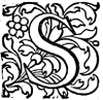
⁂ This ballad will rise in its importance with the reader, when he finds that it is even believed to have occasioned a law in our statute book, viz. "Against slanderous reports or tales, to cause discord betwixt king and people." (Westm. Primer, c. 34, anno 3 Edw. I.) That it had this effect is the opinion of an eminent [Pg 10]writer [the Hon. Daines Barrington], see Observations upon the Statutes, &c. 4to. 2nd edit. 1766, p. 71.
However, in the Harl. Collection may be found other satirical and defamatory rhymes of the same age, that might have their share in contributing to this first law against libels.
[1] [Robert of Gloucester wrote: "The king of Alemaigne was in a windmulle income."]
[2] [A German has taken upon himself the duty of an Englishman, but Dr. Pauli's life of the hero has not yet been translated out of the German language.]
[3] [Montfort is a small town between Paris and Chartres.]
[4] [See Miracula Simonis de Montfort. MS. Cotton. Vespas. A. vi., annexed to Mr. Halliwell's edition of William de Rishanger's Chronicle of the Barons' Wars (Camden Society), 1840.]
[5] [This tradition is possibly connected with the one to be found in the Beggar's Daughter of Bethnal Green, where the Blind Beggar is said to be Henry de Montfort, who was taken off the battlefield, blind but not dead.]
[6] [Germany.]
[7] [loyalty.]
[8] [peace.]
[9] [though.]
[10] [treacherous.]
[11] [deceive (should be trichen).]
[12] [lechery.]
[13] [He has not of Wallingford one furlong. The MS. reads oferlyng, and Percy and Warton explain that word to mean superior, in opposition to underling, but it has not been met with elsewhere. Mr. Wright's reading of "one furlong" is much more in accordance with the context.]
[14] [have.]
[15] [evil to drink.]
[16] [in spite of.]
[17] [thought to do.]
[18] [he seized the mill.]
[19] [their.]
[20] [steel.]
[21] [a military engine for throwing great stones.]
[22] [pride.]
[23] [great boast.]
[24] [brought.]
[25] [moors.]
[26] [bore them away hence.]
[27] [had.]
[28] [house.]
[29] [engine.]
[30] [sworn by his head.]
[31] [The Hugh Bigod here mentioned, was the cousin of Hugh Bigod, who took part with the barons, and was slain at Lewes.]
[32] [although.]
[33] [tax or revenue.]
[34] [Ver. 40. Percy prints grante here (i.e. grant their), but the MS. reads qte here (i.e. quite or pay here).]
[35] [with his foot push on. Percy prints this sot pot, but it is undoubtedly fot in the MS.]
[36] [whether you like it or loathe it.]
[37] Ver. 44. This stanza was omitted in the former editions.
[38] [ride spurless on thy grey horse.]
[39] [male shrew.]
[40] [forsookest thy uncle's teaching. De Montfort was Prince Edward's uncle.]
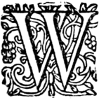
We have here an early attempt at elegy. Edward I. died July 7, 1307, in the 35th year of his reign, and 69th of his age. This poem appears to have been composed soon after his death. According to the modes of thinking peculiar to those times, the writer dwells more upon his devotion than his skill in government, and pays less attention to the martial and political abilities of this great monarch, in which he had no equal, than to some little weaknesses of superstition, which he had in common with all his contemporaries. The king had in the decline of life vowed an expedition to the Holy Land, but finding his end approach, he dedicated the sum of £32,000 to the maintenance of a large body of knights (140 say historians, eighty says our poet), who were to carry his heart with them into Palestine. This dying command of the king was never performed. Our poet, with the honest prejudices of an Englishman, attributes this failure to the advice of the king of France, whose daughter Isabel, the young monarch, who succeeded, immediately married. But the truth is, Edward and his destructive favourite, Piers Gaveston, spent the money upon their pleasures. To do the greater honour to the memory of his heroe, our poet puts his eloge in the mouth of the Pope, with the same poetic licence as a more modern bard would have introduced Britannia or the Genius of Europe pouring forth his praises.
This antique elegy is extracted from the same MS. volume as the preceding article; is found with the same peculiarities of writing and orthography; and tho' written at near the distance of half a century contains little or no variation of idiom: whereas the next following poem by Chaucer, which was probably written not more than fifty or sixty years after this, exhibits almost a new[Pg 11] language. This seems to countenance the opinion of some antiquaries, that this great poet made considerable innovations in his mother tongue, and introduced many terms, and new modes of speech from other languages.
[When Henry III. died, highly laudatory songs were sung in honour of the new king, but when Edward I. died the people were too grieved at their loss to sing the praise of his successor. The present song is printed by Mr. Thomas Wright in his Political Songs of England (Camden Society, 1839, p. 246), where he also prints a French version, and points out that the one is clearly translated from the other, adding that the French song was probably the original. In verse 27, Percy printed hue (i.e. she) with a capital H, under the impression that it was "the name of the person who was to preside over the business."]

⁂ Here follow in the original three lines more, which, as seemingly redundant, we chuse to throw to the bottom of the page, viz.:
[41] [are of true heart.]
[42] [for a while hearken ye.]
[43] [grief.]
[44] [wrought.]
[45] [methinketh.]
[46] [lie still.]
[47] [ought.]
[48] [lieth.]
[49] [through.]
[50] [his name spread abroad.]
[51] [in war wary and wise.]
[52] [hands wring.]
[53] [as.]
[54] [I charge you by your oath.]
[55] [I die, I may not live more.]
[56] [next to be chosen.]
[57] [rightly.]
[58] [devise.]
[59] [she be sent (see Glossary).]
[60] [cross.]
[61] [I would if.]
[62] [hadst.]
[63] Ver. 33. sunne, MS.
[64] [try.]
[65] [hinder.]
[66] Ver. 35. kyng Edward, MS.
[67] [govern and teach.]
[68] [heavenly.]
[69] [took.]
[70] Ver. 43. ys is probably a contraction of in hys or yn his.
[71] [verily.]
[72] [grieved.]
[73] [spake.]
[74] [grief.]
[75] [knew.]
[76] [less.]
[77] [great grief might be seen there.]
[78] Ver. 55, 59. Me, i.e. Men, so in Robert of Gloucester, passim.
[79] [Peter's.]
[80] [there they began.]
[81] [give.]
[82] [cross made of wood.]
[83] [lost.]
[84] [high.]
[85] [are brought.]
[86] [very long we may call. Percy printed this incorrectly, Well longe.]
[87] [entirely.]
[88] [to govern and order.]
[89] [need.]
[90] [though.]
[91] [cast.]
[92] [called.]
[93] [each.]
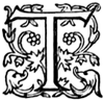
This little sonnet, which hath escaped all the editors of Chaucer's works, is now printed for the first time from an ancient MS. in the Pepysian Library, that contains many other poems of its venerable author. The versification is of that species, which the French call rondeau, very naturally Englished by our honest countrymen round O. Tho' so [Pg 15]early adopted by them, our ancestors had not the honour of inventing it: Chaucer picked it up, along with other better things, among the neighbouring nations. A fondness for laborious trifles hath always prevailed in the dark ages of literature. The Greek poets have had their wings and axes: the great father of English poesy may therefore be pardoned one poor solitary rondeau.—Geofrey Chaucer died Oct. 25, 1400.
[These verses are printed in Morris's Aldine Edition of Chaucer (vol. vi. pp. 304-5), but there is no conclusive evidence that they are really by Chaucer. Mr. Furnivall writes (Trial Forewords, Chaucer Society, 1871, p. 32):—"With the Pity I should like much to class the Roundel ... as one of the poet's genuine works, though it is not assigned to him (so far as I know), by any MS. of authority. It exactly suits the Compleynte of Pite; there is nothing in it (so far as I can see), to make it not Chaucer's, and it is of the same form as his Roundel in the Parliament of Foules." Mr. Hales suggests to me that the poem may have been written by one of Chaucer's followers, and refers to verse 260 of the Knight's Tale:
as having probably given the hint to the writer of this rondeau.]
I. 1.

2.
3.
II. 1.
2.
3.
III. 1.
2.
3.
[94] [complain.]
[95] [holdeth.]
[96] [I tell you truth.]
[97] [bean, a term of contempt.]
[98] [I do not care.]
[99] This, MS.
Or, the Wooeing, Winning, and Wedding of Tibbe, the Reev's Daughter there.

It does honour to the good sense of this nation, that while all Europe was captivated with the bewitching charms of chivalry and romance, two of our writers in the rudest times could see thro' the false glare that surrounded them, and discover whatever was absurd in them both. Chaucer wrote his Rhyme of Sir Thopas in ridicule of the latter; and in the following poem we have a humorous burlesque of the former. Without pretending to decide, whether the institution of chivalry was upon the whole useful or pernicious in the rude ages, a question that has lately employed many good writers,[100] it evidently encouraged a vindictive spirit, and gave such force to the custom of duelling, that there is little hope of its being abolished. This, together with the fatal consequences which often attended the diversion of the turnament, was sufficient to render it obnoxious to the graver part of mankind. Accordingly the Church early denounced its censures against it, and the State was often prevailed on to attempt its suppression. But fashion and opinion are superior to authority: and the proclamations against tilting were as little regarded in those times, as the laws against duelling are in these. This did not escape the discernment of our poet, who easily perceived that inveterate opinions must be attacked by other weapons, besides proclamations and censures: he accordingly made use of the keen one of ridicule. With this view he has here introduced, with admirable humour, a parcel of clowns, imitating all the solemnities of the tourney. Here we have the regular challenge—the appointed day—the lady for the prize—the formal preparations—the display of armour—the scucheons and devices—the oaths taken on entering the lists—the various [Pg 18]accidents of the encounter—the victor leading off the prize—and the magnificent feasting—with all the other solemn fopperies that usually attended the pompous turnament. And how acutely the sharpness of the author's humour must have been felt in those days, we may learn from what we can perceive of its keenness now, when time has so much blunted the edge of his ridicule.
The Turnament of Tottenham was first printed from an ancient MS. in 1631, 4to., by the Rev. William Bedwell, rector of Tottenham, who was one of the translators of the Bible. He tells us, it was written by Gilbert Pilkington, thought to have been some time parson of the same parish, and author of another piece, intitled, Passio Domini Jesu Christi. Bedwell, who was eminently skilled in the Oriental and other languages, appears to have been but little conversant with the ancient writers in his own, and he so little entered into the spirit of the poem he was publishing, that he contends for its being a serious narrative of a real event, and thinks it must have been written before the time of Edward III. because turnaments were prohibited in that reign. "I do verily beleeve," says he, "that this turnament was acted before this proclamation of K. Edward. For how durst any to attempt to do that, although in sport, which was so straightly forbidden, both by the civill and ecclesiasticall power? For although they fought not with lances, yet, as our authour sayth, 'It was no childrens game.' And what would have become of him, thinke you, which should have slayne another in this manner of jeasting? Would he not, trow you, have been hang'd for it in earnest? yea, and have bene buried like a dogge?" It is, however, well known that turnaments were in use down to the reign of Elizabeth.
In the first editions of this work, Bedwell's copy was reprinted here, with some few conjectural emendations; but as Bedwell seemed to have reduced the orthography at least, if not the phraseology, to the standard of his own time, it was with great pleasure that the Editor was informed of an ancient MS. copy preserved in the Museum (Harl. MSS. 5396), which appeared to have been transcribed in the reign of K. Hen. VI. about 1456. This obliging information the Editor owed to the friendship of Tho. Tyrwhitt, Esq., and he has chiefly followed that more authentic transcript, improved however by some readings from Bedwell's book.
[A writer in the Gentleman's Magazine (July, 1794, p. 613), calls attention to the fact that this ballad is "a burlesque upon the feudal custom of marrying an heiress to the knight who should vanquish all his opponents at a solemn assembly holden for the purpose."
Bedwell's MS. is now in the Cambridge public library (Ff. 5, 48), and Mr. Thomas Wright, who has printed it in a miniature[Pg 19] volume, believes it to have been written as early as the reign of Edward II.
Bedwell was chaplain to Sir Henry Wotton in his embassy to Venice, where he is said to have assisted the celebrated Father Paul in the composition of his History of the Council of Trent. The following is a copy of the inscription on Bedwell's monument in the chancel of Tottenham church:—"Here lyes interred in this chancel Mr. William Bedwell, sometime vicar of this church and one of King James's translators of the Bible, and for the Easterne tongues as learned a man as most lived in these moderne times. Aged 70. Dyed May the 5th, 1632."]

[100] See (Mr. Hurd's) Letters on Chivalry, 8vo. 1762, Memoires de la Chevalerie, par M. de la Curne de Sainte-Palaye, 1759, 2 tom. 12mo. &c.
[101] [talk.]
[102] [fierce fighting.]
[103] [wonder.]
[104] [doughty.]
[105] [stout.]
[106] [dire or sad.]
[107] [sport.]
[108] [Islington.]
[109] [labourers.]
[110] Ver. 20. It is not very clear in the MS. whether it should be conts, or conters.
[111] [bailiff.]
[112] [daughter.]
[113] [know would I.]
[114] [to wed her for his mate.]
[115] [idle fellows.]
[116] [promised.]
[117] [it be to-morrow.]
[118] [accursed.]
[119] [she.]
[120] [shall have possession of her with joy.]
[121] [beareth.]
[122] [prize.]
[123] [blow.]
[124] Ver. 48. Dozty, MS.
[125] V. 49. coppeld. We still use the phrase "a copple-crowned hen."
[126] [expense.]
[127] [bid or offer.]
[128] [went.]
[129] [made ready their clothing.]
[130] V. 57. gayed, PC.
[131] [them.]
[132] [heads.]
[133] [polls.]
[134] [bowls.]
[135] [cudgels.]
[136] [burst.]
[137] [each one.]
[138] V. 66 is wanting in MS. and supplied from PC.
[139] [ready.]
[140] [they began to go forth.]
[141] [shown.]
[142] [much strength.]
[143] [best defend his body.]
[144] V. 72. He borrowed him, PC.
[145] [gathering.]
[146] [riding to the inclosure.]
[147] [sackfull of feathers.]
[148] Ver. 76. The MS. had once sedys, i.e. seeds, which appears to have been altered to fedyrs, or feathers. Bedwell's copy has Senvy, i.e. Mustard-seed.
[149] V. 77. and led hur to cap, MS.
[150] [nonce or occasion.]
[151] [Chaucer uses the expression "rowel boon" in his Tale of Sir Thopas, which is explained as round bone.]
[152] V. 83. Bedwell's PC. has "Ruel-Bones."
[153] V. 84. safer stones, MS.
[154] [token.]
[155] [wrought.]
[156] V. 85. wrotyn, i.e. wrought. PC. reads, written.
[157] V. 86. No catel (perhaps chatel) they had spared, MS.
[158] [crepitus ventris.]
[159] V. 89. Then ... faucon, MS.
[160] [deprive.]
[161] Ver. 101. grant, MS.
[162] [discomfit.]
[163] [fear.]
[164] [riddle or sieve.]
[165] [sprinkled over with firebrands.]
[166] [pieces.]
[167] [each.]
[168] [though I have the gout.]
[169] V. 109. yf he have, MS.
[170] V. 110. the MS. literally has thr. sand, here.
[171] [in each place where they.]
[172] [unless Tib will call me.]
[173] [ere I be thrice made to]
[174] [even once.]
[175] [engage.]
[176] [dough trough.]
[177] [a baker's long-handled shovel.]
[178] [fleece of wool.]
[179] [so.]
[180] V. 128. merth, MS.
[181] [roe.]
[182] [horse.]
[183] [go.]
[184] [work more wisely.]
[185] Ver. 137. fwyselier, MS.
[186] V. 146. flailes and harnisse, PC.
[187] [dressed.]
[188] [hide.]
[189] [a small wooden hammer occasionally fixed to the plough.]
[190] Ver. 151. The chiefe, PC.
[191] [moonlight.]
[192] [child's.]
[193] V. 154. yt ys, MS.
[194] [man.]
[195] [fellow.]
[196] [wonderfully.]
[197] [splintered.]
[198] V. 163. The boyes were, MS.
[199] [many men.]
[200] [skulls.]
[201] [dressed.]
[202] [striking fast of the staffs of the flails.]
[203] [over-fought.]
[204] [on horseback.]
[205] V. 170. creped then about in the croft, MS.
[206] [stoop.]
[207] [hurt.]
[208] [laid hold of.]
[209] Ver. 179. razt, MS.
[210] [them.]
[211] V. 185. stand, MS.
[212] [lose.]
[213] [knew it were my sending.]
[214] V. 189. sand, MS.
[215] V. 190. the PC. reads, ilk throng.
[216] [make off.]
[217] [drew.]
[218] Ver. 199. Thys, MS.
[219] [elder sticks used for candles.]
[220] [rushes.]
[221] [harrows.]
[222] V. 204. hom for to fetch, MS.
[223] [half door of a cottage.]
[224] [crutch.]
[225] V. 208. about everych side, MS.
[226] V. 209. the gre, is wanting in MS.
[227] V. 210. mothe, MS.
[228] V. 212. and thay ifere assent, MS.
[229] V. 214. had wed, MS.
[230] [singing men and women.]
[231] V. 215. The cheefemen, PC.
[232] [lame in the hip.]
[233] V. 218. trippand on, MS.
[234] In the former impressions this concluding stanza was only given from Bedwell's printed edition, but it is here copied from the old MS. wherein it has been since found separated from the rest of the poem, by several pages of a money account, and other heterogeneous matter.
[235] [a lean chicken.]
[236] [a confusion.]
[237] Six-men's song, i.e. a song for six voices. So Shakespeare uses three-man song-men, in his Winter's Tale, act iii. sc. 3, to denote men that could sing catches composed for three voices. Of this sort are Weelkes's madrigals mentioned below, book ii. song 9. So again Shakespeare has three-men beetle; i.e. a beetle or rammer worked by three men, 2 Hen. IV. act i. sc. 3.
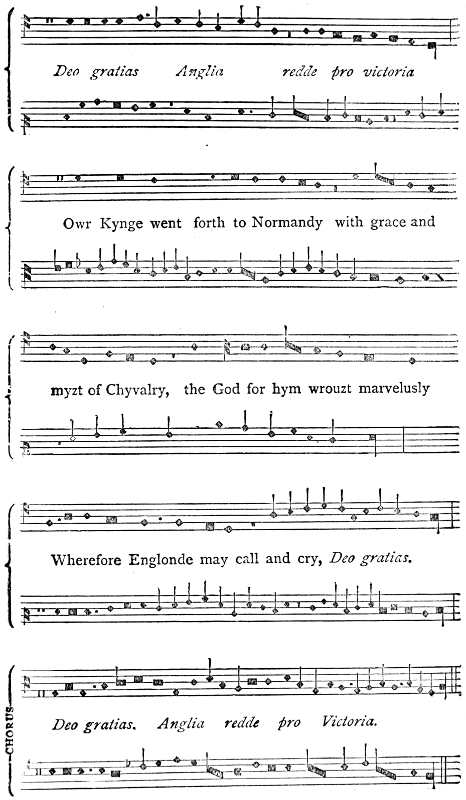
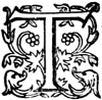
That our plain and martial ancestors could wield their swords much better than their pens, will appear from the following homely rhymes, which were drawn up by some poet laureat of those days to celebrate the immortal victory gained at Agincourt, Oct. 25, 1415. This song or hymn is given meerly as a curiosity, and is printed from a MS. copy in the Pepys collection, vol. i. folio. It is there accompanied with the musical notes, which are copied on the opposite page.
[When the news of this great victory arrived in England, the people "were literally mad with joy and triumph," and although Henry V. on his entrance into London after the battle, commanded that no "ditties should be made and sung by minstrels or others" in praise of Agincourt, "for that he would whollie have the praise and thankes altogether given to God," several songs have come down to us on this soul-inspiring theme. Besides the present ballad there are,
1. Agincourte Battell, beginning—
in the Percy Folio MS. (see Hales and Furnivall's edition, vol. ii. p. 166).
2. Agincourt, or the English Bowman's Glory, a spirited ballad quoted in Heywood's King Edward IV., the first stanza of which is as follows—
3. King Henry V., his Conquest of France, commencing—
4. The Cambro-Briton's Ballad of Agincourt, by Michael Drayton.
Besides these ballads there is a poem attributed to Lydgate, and Drayton's Battaile of Agincourt. For further information on the subject the reader should see Sir Nicholas Harris Nicolas's History of the Battle, and Hales and Furnivall's edition of the Percy Folio MS. (vol. ii. pp. 158, 595).
Dr. Rimbault describes the music attached to the present ballad "as the first English regular composition of which we have any remains."]
Deo gratias Anglia redde pro victoria!

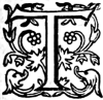
The sentimental beauties of this ancient ballad have always recommended it to readers of taste, notwithstanding the rust of antiquity which obscures the style and expression. Indeed if it had no other merit than the having afforded the groundwork to Prior's Henry and Emma, this ought to preserve it from oblivion. That we are able to give it in so correct a manner, is owing to the great care and exactness of the accurate editor of the Prolusions, 8vo. 1760; who has formed the text from two copies found in two different editions of Arnolde's Chronicle, a book supposed to be first printed about 1521. From the copy in the Prolusions the following is printed, with a few additional improvements gathered from another edition of Arnolde's book[240] preserved in the public library at Cambridge. All the various readings of this copy will be found here, either [Pg 34]received into the text, or noted in the margin. The references to the Prolusions will shew where they occur. In our ancient folio MS.[241] described in the preface, is a very corrupt and defective copy of this ballad, which yet afforded a great improvement in one passage. See v. 310.
It has been a much easier task to settle the text of this poem, than to ascertain its date. The ballad of the Nutbrowne Mayd was first revived in The Muses Mercury for June, 1707, 4to. being prefaced with a little Essay on the old English Poets and Poetry; in which this poem is concluded to be "near 300 years old," upon reasons which, though they appear inconclusive to us now, were sufficient to determine Prior, who there first met with it. However, this opinion had the approbation of the learned Wanley, an excellent judge of ancient books. For that whatever related to the reprinting of this old piece was referred to Wanley, appears from two letters of Prior's preserved in the British Museum (Harl. MSS. No. 3777). The editor of the Prolusions thinks it cannot be older than the year 1500, because, in Sir Thomas More's tale of The Serjeant, &c., which was written about that time, there appears a sameness of rhythmus and orthography, and a very near affinity of words and phrases with those of this ballad. But this reasoning is not conclusive, for if Sir Thomas More made this ballad his model, as is very likely, that will account for the sameness of measure, and in some respect for that of words and phrases, even tho' this had been written long before; and as for the orthography, it is well known that the old printers reduced that of most books to the standard of their own times. Indeed it is hardly probable that an antiquary like Arnolde would have inserted it among his historical collections, if it had been then a modern piece; at least he would have been apt to have named its author. But to shew how little can be inferred from a resemblance of rhythmus or style, the Editor of these volumes has in his ancient folio MS. a poem on the victory of Flodden-field, written in the same numbers, with the same alliterations, and in orthography, phraseology, and style nearly resembling the Visions of Pierce Plowman, which are yet known to have been composed above 160 years before that battle. As this poem is a great curiosity, we shall give a few of the introductory lines:
With regard to the date of the following ballad, we have taken a middle course, neither placed it so high as Wanley and Prior, nor quite so low as the editor of the Prolusions; we should have followed the latter in dividing every other line into two, but that the whole would then have taken up more room than could be allowed it in this volume.
[The edition of Richard Arnold's Chronicle (1521) mentioned above, is the second; and the first, which is undated, was printed at Antwerp in 1502. This edition is described in Brydges' Censurä Literaria (vol. vi. p. 114), where the Nut-Brown Maid is printed. A copy from the Balliol MS. 354, of about the same date, is printed in Percy's folio manuscript, ed. Hales and Furnivall, vol iii. p. 174. Warton will not allow that the poem was written before the beginning of the sixteenth century, but as Percy says, it is highly improbable that an antiquary would insert a modern piece in his miscellany of curiosities.
Percy has inserted the following note in his folio MS.: "From the concluding words of this last stanza—
it should seem that the author was a woman."
Mr. Skeat remarks that the part of the fourth stanza before the woman speaks, and the first two verses, are still more conclusive on this point. On the other side it is noticeable that the author speaks as a man at line 353:
but this may only be a blind.
Few readers will agree with Percy's estimate of Prior's poem, and Henry and Emma is now only remembered because of its connection with the Nut-Brown Maid.
Warton justly points out how the simplicity of the original is decorated, dilated, and consequently spoilt by Prior, who crowds his verses with zephyrs, Chloe, Mars, the Cyprian deity, &c. Such lay figures as these are quite out of keeping with the realities of this most exquisite poem.
[Pg 36]One instance of Prior's inability to appreciate the beauties of his original will be sufficient. The tender allusion at v. 232-3:
followed by the reflection:
is entirely omitted by the later poet, who changes
into
The Nut-Brown Maid has always been highly popular (a proof of the good taste of the people), and in consequence it figures in Captain Cox's collection described by Laneham. Another proof of its popularity is the existence of various parodies, one of which is of very early date.
It was a common practice in the sixteenth century to turn ordinary ballads into religious songs. The New Nutbrowne Maid, printed by John Skot about 1520, reprinted by George Isted in 1820 for the Roxburghe Club, and again reprinted by Dr. Rimbault for the Percy Society (vol. iv.), 1842, is an instance of this practice. It is a close parody of the original, and purports to be "upon the passion of Cryste." The he and she are changed to Maria the mayde and Jesus.
Another version is given in the Percy folio MS. (ed. Hales and Furnivall, vol. ii. p. 334), which is entitled A Jigge.
The incidents are vulgarized, "but," Mr. Hales observes, "the beauty of the original is too great to be altogether destroyed, however rude the hands that handle it. Something of the charm of the Nut Brown Maid lingers around this Jig."]
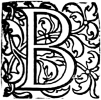
She.[250]
He.
She.
He.
She.
He.
She.
He.
She.
He.
She.
He.
She.
He.
She.
He.
She.
He.
She.
He.
She.
He.
She.
He.
She.
He.
Author.
[240] This (which my friend Mr. Farmer supposes to be the first edition) is in folio; the folios are numbered at the bottom of the leaf, the song begins at folio 75. The poem has since been collated with a very fine copy that was in the collection of the late James West, Esq.; the readings extracted thence are denoted thus, "Mr. W."
[241] [Hales and Furnivall's edition, vol. iii. p. 174.]
[242] [Folio Manuscript, ed. Hales and Furnivall, vol. i. p. 212.]
[243] [at intervals, sometimes.]
[244] My friend Mr. Farmer proposes to read the first lines thus as a Latinism:
[245] [Ver. 2. Woman, Prolusions and Mr. West's copy.]
[246] [not a bit.]
[247] [their.]
[248] [V. 11. her, i.e. their.]
[249] [pain and fear. In the Balliol MS. 354, the reading is in-fere (or in company with her lover).]
[250] [Percy printed the "She" at the beginning of this stanza.]
[251] [done.]
[252] [advice I know.]
[253] Ver. 63. The somers, Prol.
[254] [darkened.]
[255] [separate.]
[256] [whither.]
[257] [afflict.]
[258] [abate.]
[259] [earnestly.]
[260] [remain.]
[261] Ver. 91. Shall it never, Prol. and Mr. W.
[262] V. 94. Althought, Mr. W.
[263] [advise.]
[264] [those.]
[265] Ver. 117. To shewe all, Prol. and Mr. W.
[266] [run.]
[267] [rather then.]
[268] V. 133. I say nat, Prol. and Mr. W.
[269] Ver. 138. and store, Camb. copy.
[270] [rescue.]
[271] V. 150. succours, Prol. and Mr. W.
[272] V. 162. and night, Camb. copy.
[273] V. 164. to helpe ye with my myght, Prol. and Mr. W.
[274] Ver. 172. frost and rayne, Mr. W.
[275] V. 174. Ye must, Prol.
[276] V. 190. shortley gone, Prol. and Mr. W.
[277] Ver. 196. Neyther bere, Prol. and Mr. W.
[278] V. 201. Lo myn, Mr. W.
[279] V. 207. May ye nat fayle, Prol. Ib. May nat fayle, Mr. W.
[280] [health.]
[281] [hair up by your ear.]
[282] V. 219. above your ere, Prol.
[283] V. 220. above the kne, Prol. and Mr. W.
[284] Ver. 223. the same, Prol. and Mr. W.
[285] [shorten my hair.]
[286] [follow.]
[287] Ver. 251. For I must to the grene wode go, Prol. and Mr. W.
[288] V. 253. yet is, Camb. copy. Perhaps for yt is.
[289] [ere.]
[290] [par Dieu.]
[291] i.e. for this cause; tho' I were to die for having loved you.
[292] V. 262. dy with him, Editor's MS.
[293] [went.]
[294] [advice.]
[295] Ver. 278. outbrayd, Prol. and Mr. W.
[296] V. 282. ye be as, Prol. and Mr. W.
[297] V. 283. Ye were unkynde to leve me behynde, Prol. and Mr. W.
[298] [provided.]
[299] Ver. 310. So the Editor's MS. All the printed copies read, Yet wold I be that one.
[300] V. 315. of all, Prol. and Mr. W.
[301] V. 325. gladder, Prol. and Mr. W.
[302] [in haste.]
[303] Ver. 340. grete lynyage, Prol. and Mr. W.
[304] V. 347. Then have, Prol.
[305] V. 348. And no banyshed, Prol. and Mr. W.
[306] [let.]
[307] V. 352. This line wanting in Prol. and Mr. W.
[308] V. 355. proved—loved, Prol. and Mr. W. Ib. as loveth, Camb.
[309] V. 357. Forsoth, Prol. and Mr. W.
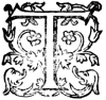
The amiable light in which the character of Anthony Widville, the gallant Earl Rivers, has been placed by the elegant author of the Catal. of Noble Writers [Horace Walpole], interests us in whatever fell from his pen. It is presumed, therefore, that the insertion of this little sonnet will be pardoned, tho' it should not be found to have much poetical merit. It is the only original poem known of that nobleman's; his more voluminous works being only translations. And if we consider that it was written during his cruel confinement in Pomfret castle a short time before his execution in 1483, it gives us a fine picture of the composure and steadiness with which this stout earl beheld his approaching fate.
This ballad we owe to Rouse, a contemporary historian, who seems to have copied it from the earl's own handwriting. "In tempore," says this writer, "incarcerationis apud Pontem-fractum edidit unum balet in anglicis, ut mihi monstratum est, quod subsequitur sub his verbis: Sum what musyng, &c." Rossi, Hist. 8vo. 2 ed. p. 213. In Rouse the second stanza, &c. is imperfect, but the defects are here supplied from a more perfect copy printed in Ancient Songs, from the time of King Henry III. to the Revolution, p. 87 [by Joseph Ritson].
This little piece, which perhaps ought rather to have been printed in stanzas of eight short lines, is written in imitation of a poem of Chaucer's, that will be found in Urry's ed. 1721, p. 555, beginning thus:
[This gallant and learned nobleman (brother of Edward IV.'s queen), who was murdered in the forty-first year of his age, figures as a character in Shakspere's Richard III., and as a ghost appears to warn the tyrant on the eve of the battle of Bosworth:
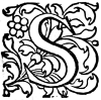
[310] [See Aldine edition of Chaucer's Poetical Works, ed. Morris, vol. vi. p. 305. We ought, perhaps, to read "attributed to Chaucer."]
[311] [turn aside.]
[312] Ver. 15. That fortune, Rossi, Hist.
[313] [it is near.]
[314] [abashed.]
[315] V. 19. went, i.e. weened.
[316] [she.]
[317] [wont or custom.]
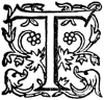
The reader will think that infant poetry grew apace between the times of Rivers and Vaux, tho' nearly contemporaries; if the following song is the composition of that Sir Nicholas (afterwards Lord) Vaux, who was the shining ornament of the court of Henry VII., and died in the year 1523 [1524, see below].
And yet to this lord it is attributed by Puttenham in his Art of Eng. Poesie, 1589, 4to., a writer commonly well informed. Take the passage at large: "In this figure [Counterfait Action] the Lord Nicholas Vaux, a noble gentleman and much delighted in vulgar making, and a man otherwise of no great learning, but having herein a marvelous facilitie, made a dittie representing the Battayle and Assault of Cupide, so excellently well, as for the gallant and propre application of his fiction in every part, I cannot choose but set downe the greatest part of his ditty, for in truth it cannot be amended. When Cupid Scaled," &c. p. 200. For a farther account of Nicholas, Lord Vaux, see Mr. Walpole's Noble Authors, vol. i.
Since this song was first printed off, reasons have occurred which incline me to believe that Lord Vaux, the poet, was not the Lord Nicholas Vaux who died in 1523, but rather a successor of his in the title. For, in the first place, it is remarkable that all the old writers mention Lord Vaux, the poet, as contemporary, or rather posterior, to Sir Thomas Wyat and the E. of Surrey, neither of which made any figure till long after the death of the first Lord Nicholas Vaux. Thus Puttenham, in his Art of English Poesie, 1589, in p. 48, having named Skelton, adds: "In the latter end of the same kings raigne [Henry VIII.] sprong up a new company of courtly Makers [Poets], of whom Sir Thomas Wyat th' elder, and Henry Earl of Surrey were the two chieftaines, who having travailed into Italie, and there tasted the sweet and stately measures and stile of the Italian poesie ... greatly polished our rude and homely manner of vulgar poesie.... In the same time, or not long after, was the Lord Nicholas Vaux, a man of much facilitie in vulgar makings."[318] Webbe, in his Discourse of English [Pg 53]Poetrie, 1586, ranges them in the following order: "The E. of Surrey, the Lord Vaux, Norton, Bristow." And Gascoigne, in the place quoted in the first volume of this work [B. ii. No. 2.] mentions Lord Vaux after Surrey. Again, the stile and measure of Lord Vaux's pieces seem too refined and polished for the age of Henry VII., and rather resemble the smoothness and harmony of Surrey and Wyat, than the rude metre of Skelton and Hawes. But what puts the matter out of all doubt, in the British Museum is a copy of his poem, I lothe that I did love [vid. vol. i. ubi supra], with this title, "A dyttye or sonet made by the Lord Vaus, in the time of the noble Quene Marye, representing the image of Death." Harl. MSS. No. 1703, sec. 25.
It is evident then that Lord Vaux, the poet, was not he that flourished in the reign of Henry VII., but either his son or grandson; and yet, according to Dugdale's Baronage, the former was named Thomas and the latter William: but this difficulty is not great, for none of the old writers mention the Christian name of the poetic Lord Vaux,[319] except Puttenham; and it is more likely that he might be mistaken in that lord's name, than in the time in which he lived, who was so nearly his contemporary.
Thomas, Lord Vaux, of Harrowden, in Northamptonshire, was summoned to parliament in 1531. When he died does not appear, but he probably lived till the latter end of Queen Mary's reign, since his son William was not summoned to parliament till the last year of that reign, in 1558. This lord died in 1595. See Dugdale, vol. ii. p. 304. Upon the whole I am inclined to believe that Lord Thomas was the poet.
The following copy is printed from the first edition of Surrey's Poems, 1557, 4to. See another song of Lord Vaux's in the preceding volume, B. ii. No. 2.
[Percy is correct in his supposition that the poet was Thomas, second Lord Vaux, and not his father Nicholas, who died May 14th, 1524, only seventeen days after he was advanced to the peerage.]

[318] i.e. Compositions in English.
[319] In the Paradise of Dainty Devises, 1596, he is called simply "Lord Vaux the elder."
[320] [besprinkled.]
[321] [rampart.]
[322] [expense.]
[323] [sound.]
[324] Ver. 30. her, ed. 1557, so ed. 1585.
[325] [shield.]
[326] [harquebuss, or old-fashioned musket.]
[327] [simple.]
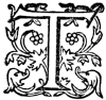
This old fabulous legend is given from the Editor's folio MS. with conjectural emendations, and the insertion of some additional stanzas to supply and compleat the story.
It has been suggested to the Editor that the author of this poem seems to have had in his eye the story of Gunhilda, who is sometimes called Eleanor, and was married to the Emperor (here called King) Henry.
Percy's MS. note in his folio is as follows: "Without some corrections this will not do for my Reliques." Readers will be able to judge for themselves as to the relative beauties of the two, now that the original is printed at the end of Percy's amended copy. To make the interpolations more apparent, Percy's added verses are placed between brackets, and it will be seen that these contain much of the phraseology and many of the stock prettinesses of the polite ballad-monger; some of the most vivid bits of the old ballad being passed over. Percy keeps tolerably to the story, except that he makes the second messenger one of the queen's damsels instead of a man. Sir Walter Scott supposes Sir Aldingar to be founded upon the kindred ballad of Sir Hugh le Blond, but, as Professor Child says, without any reason. The story occurs in most of the literatures of Europe.

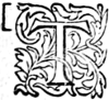
[The following is the original version from the folio MS reprinted from Hales and Furnivall's ed. vol. i. p. 166:
ffins.]
[328] [burnt.]
[329] [leper.]
[330] He probably insinuates that the king should heal him by his power of touching for the king's evil.
[331] [truth.]
[332] [loathsome.]
[333] [complexion.]
[334] [burst.]
[335] [dreams.]
[336] [griffin.]
[337] [neckerchief.]
[338] [petticoat.]
[339] [tooth.]
[340] Ver. 77. see below, v. 137.
[341] [if.]
[342] [immediately.]
[343] [vow or oath.]
[344] [evil.]
[345] [help.]
[346] [defend.]
[347] [supposed.]
[348] [to give the sacrament and to confess.]
A Scottish Song.

Tradition informs us that the author of this song was King James V. of Scotland. This prince (whose character for wit and libertinism bears a great resemblance to that of his gay successor, Charles II.) was noted for strolling about his dominions in disguise,[349] and for his frequent gallantries with country girls. Two adventures of this kind he hath celebrated with his own pen, viz. in this ballad of The Gaberlunyie Man; and in another intitled The Jolly Beggar, beginning thus:
It seems to be the latter of these ballads (which was too licentious to be admitted into this collection) that is meant in the Catalogue of Royal and Noble Authors,[350] where the ingenious writer remarks, that "there is something very ludicrous in the young woman's distress when she thought her first favour had been thrown away upon a beggar."
Bishop Tanner has attributed to James V. the celebrated ballad of Christ's Kirk on the Green, which is ascribed to King James I. in Bannatyne's MS. written in 1568: and, notwithstanding that [Pg 70]authority, the editor of this book is of opinion that Bishop Tanner was right.
King James V. died Dec. 13th, 1542, aged 33.
[James V. was called the King of the Commons, from his popular manners and vagrant habit, and many stories are told of his adventures when in disguise. One of these is worth relating here. On a certain occasion he heard himself abused by a country lad as a tyrant and a man odious in every respect, until, unable to restrain himself, he threw off his disguise, and told his accuser that he was the king. "Are you really the king?" said the lad, retaining his self-possession; "weel, ye'll maybe hae heard o' my father: he gaed daft three days regularly every year, and in a' that time spoke naething but lies and nonsense: now I'm exactly the same way, and this is one of my three days." There is no authority for attributing the present song to James V., except ancient and universal tradition. The word gaberlunyie is compounded of gaber, a wallet, and lunyie, the loins: hence a travelling tinker or beggar carrying a wallet by his side, was called a "gaberlunyie man." Scott has sketched a vivid portrait of one of these privileged beggars in his Antiquary, Edie Ochiltree, to wit. The Jolly Beggar is printed in Herd's Scottish Songs, ii. 164, and in Ritson's Scottish Songs, i. 168. Competent authorities are not willing to take the credit of the authorship of Christ's Kirk on the Green from James I. and give it to James V.]

[349] Sc. of a tinker, beggar, &c. Thus he used to visit a smith's daughter at Niddry, near Edinburgh.
[350] Vol. ii. p. 203.
[351] [sly old man.]
[352] [simple or poor.]
[353] [beyond the fire.]
[354] [merrily.]
[355] [exclamation of admiration or surprise.]
[356] [merry.]
[357] [fond.]
[358] [mother know.]
[359] [these sly two.]
[360] [so close.]
[361] [clad me handsomely.]
[362] Ver. 29. The carline, other copies.
[363] [chest.]
[364] [stolen.]
[365] [alone by herself.]
[366] [churns to churn.]
[367] [go to the outer apartment.]
[368] [in.]
[369] [troublesome.]
[370] [mad.]
[371] [slice.]
[372] [proof.]
[373] [ill-favouredly.]
[374] [mouth.]
[375] [chalk and ruddle.]
[376] [instruments used for spinning in Scotland.]

It is ever the fate of a disgraced minister to be forsaken by his friends, and insulted by his enemies, always reckoning among the latter the giddy inconstant multitude. We have here a spurn at fallen greatness from one of the angry partisans of declining popery, who could never forgive the downfall of their Diana and loss of their craft. The ballad seems to have been composed between the time of Cromwell's commitment to the Tower, June 10th, 1540, and that of his being beheaded, July 28 following. A short interval! but Henry's passion for Catharine Howard would admit of no delay. Notwithstanding our libeller, Cromwell had many excellent qualities; his great fault was too much obsequiousness to the arbitrary will of his master; but let it be considered that this master had raised him from obscurity, and that the high-born nobility had shewn him the way in every kind of mean and servile compliance. The original copy, printed at London in 1540, is intitled, [Pg 74]A newe ballade made of Thomas Crumwel, called "Trolle on away." To it is prefixed this distich by way of burthen:
The following piece gave rise to a poetic controversy, which was carried on thro' a succession of seven or eight ballads, written for and against Lord Cromwell. These are all preserved in the archives of the Antiquarian Society, in a large folio collection of proclamations, &c., made in the reigns of King Henry VIII., King Edward VI., Queen Mary, Queen Elizabeth, King James I., &c.
[Thomas Cromwell, called Malleus Monachorum, came of a good old Lincolnshire family. He was born about the year 1490 at Putney, where his father carried on the business of an iron-founder, which his enemies reduced to that of a blacksmith. His father died early, and in consequence of the re-marriage of his mother, he became a wanderer.
The author of the poor play, entitled The Life and Death of Thomas Lord Cromwell, which has been absurdly attributed to Shakspere, makes "old Cromwell, a blacksmith, of Putney," live to see his son "made lord keeper."
There is a fragment of a ballad on Cromwell without any beginning in the Folio MS. (ed. Hales and Furnivall, vol. i. p. 127), which ends as follows:
Mr. Hales points out a coincidence not mentioned by Mr. Froude, viz. that the minister was beheaded and the king married to Catherine Howard on one and the same day. In 1525 Cromwell undertook for Wolsey the work of visiting and breaking up the small monasteries which the Pope had granted for the foundation of Wolsey's new colleges, thus commencing the work which gained him the enmity of the adherents of the old faith. He was the first to cause Bibles in the English language to be deposited in all the churches, and to him we owe the institution of parish registers.]
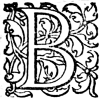
[377] Ver. 32. i.e. Cain, or Ishmael. See below, the note, book ii. No. III. stanza 3rd.
[378] V. 41. Cromwell's father is generally said to have been a blacksmith at Putney: but the author of this ballad would insinuate that either he himself or some of his ancestors were fullers by trade.
[379] [The burden of an old song.]
An Ancient English Pastoral.
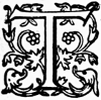
This beautiful poem, which is perhaps the first attempt at pastoral writing in our language, is preserved among the Songs and Sonnettes of the Earl of Surrey, &c., 4to. in that part of the collection which consists of pieces by uncertain auctours. These poems were first published in 1557, ten years after that accomplished nobleman fell a victim to the tyranny of Henry VIII.; but it is presumed most of them were composed before the death of Sir Thomas Wyatt in 1541. See Surrey's Poems, 4to. fol. 19, 49.
Tho' written perhaps near half a century before the Shepherd's Calendar,[380] this will be found far superior to any of those eclogues, in natural unaffected sentiments, in simplicity of style, in easy flow of versification, and all other beauties of pastoral poetry. Spenser ought to have profited more by so excellent a model.
[Warton describes this poem as "perhaps the first example in our language now remaining of the pure and unmixed pastoral, and in the erotic species for ease of numbers, elegance of rural allusion excelling everything of the kind in Spenser, who is erroneously ranked as our earliest English bucolic." He did not, however, take into account Robin and Makine, which follows Harpalus in this book, but was written more than half a century before it. Spenser-lovers also are not likely to agree with Percy's and Warton's summary judgments upon the Shepherd's Calendar.]

[380] First published in 1579.
[381] [together.]
[382] [regarded.]
[383] [cared more for field sports.]
[384] Ver. 33, &c. The corrections are from ed. 1574.
[385] [overwakeful.]
[386] [care.]
[387] [pierced through.]
[388] [mates.]
[389] [ready.]
[390] [captive.]
An Ancient Scottish Pastoral.
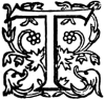
The palm of pastoral poesy is here contested by a contemporary writer with the author of the foregoing. The critics will judge of their respective merits; but must make some allowance for the preceding ballad, which is given simply as it stands in the old editions; whereas this, which follows, has been revised and amended throughout by Allan Ramsay, from whose Evergreen, vol. i. it is here chiefly printed. The curious reader may, however, compare it with the more original copy, printed among Ancient Scottish Poems, from the [Pg 82]MS. of George Bannatyne, 1568, Edinburgh, 1770, 12mo. Mr. Robert Henryson (to whom we are indebted for this poem) appears to so much advantage among the writers of eclogue, that we are sorry we can give little other account of him besides what is contained in the following eloge, written by W. Dunbar, a Scottish poet, who lived about the middle of the sixteenth century:
Indeed, some little further insight into the history of this Scottish bard is gained from the title prefixed to some of his poems preserved in the British Museum, viz. The morall Fabillis of Esop, compylit be Maister Robert Henrisoun, scolmaister of Dumfermling, 1571. Harl. MSS. 3865, § 1.
In Ramsay's Evergreen, vol. i. are preserved two other little Doric pieces by Henryson: the one intitled The Lyon and the Mouse, the other The garment of gude Ladyis. Some other of his poems may be seen in the Ancient Scottish Poems, printed from Bannatyne's MS. above referred to.
[This remarkable poem is peculiarly interesting as being the earliest specimen of pastoral poetry in the language. Campbell calls it "the first known pastoral, and one of the best in a dialect rich with the favours of the pastoral muse." Langhorne writes justly:
Percy errs in describing Henryson as a contemporary of Surrey, as the Scottish poet lived half a century before the English one. The dates of his birth and death are not known, but he flourished in the reign of James III. (1460-1488). "On the 10th of September, 1462, the venerable master Robert Henrysone, Licentiate in Arts and Bachelor in Degrees, was incorporated or admitted a member of the newly founded University of Glasgow." He was a notary public, and probably the master of the grammar school attached to the Abbey of Dunfermline, not as might be supposed a mere parish schoolmaster. According to the tradition of the last century, our poet was the representative of the family of Henryson or Henderson, of Fordell, in the county of Fife; but Mr. David Laing thinks that it is a gratuitous assumption to suppose that he or his predecessors ever possessed a single acre of the lands of Fordell.
Percy has used the version given in Ramsay's Evergreen, which is slightly altered in diction from the original in the Bannatyne MS.; for instance, the last stanza occurs in the latter as follows:
In the Evergreen version, the last verse is altered to "Amang the rushy gair," either because the words "holtis hair" occur in verse two of the stanza, or that the Editor saw an impropriety in the close vicinity of the similar words holt and heuch. The two words "holtis hair" are explained as hoary hills or hoary woods, but Finlay (Scottish Historical and Romantic Ballads, 1808, vol. ii. p. 193) holds that "hair" really means high, and derives it from Isl. har == altus. He says that a high rock in some of the northern counties of Scotland, where the dialect is strongly tinctured with Danish, is called "hair craig," and that the same word lingers on in the Hare-stone of the Borough Moor, Edinburgh, which obtained its name in the following manner: The laird of Pennycuik held certain lands by a strange tenure. He was obliged to mount a large stone or rock, and salute the king with three blasts of a horn whenever he passed that way. This rock or eminence was called the "Hare-stone," and still exists near Morningside Church. Hoary, however, is to be understood as grey and not as white with snow, so that the hare-stone is probably the grey stone. The word holt may also mean a heath, and Cædmon uses the phrase "har hæð" = hoar or grey heath.
The date (1571) attached to Henryson's version of Æsop's Fables is that of transcription. It is not known when the Fables were first printed, but they were reprinted by Robert Lekpreuik for Henry Charteris in 1570. They are supposed to have been written between 1470 and 1480.
Henryson wrote several other short poems, as well as the Testament of Cresseid, written as a continuation or supplement to Chaucer's Troilus and Cresseide, all of which have been collected for the first time into an elegant volume by David Laing, who has added notes and a memoir of the poet (Edinburgh, 1865).
This Testament has a particular interest for us, because Shakspere referred to it when he wrote "Cressida was a beggar" (Twelfth Night, act iii. sc. 1). The lines in Henryson's poem which illustrate this passage, are as follows:

[391] [keeping a flock of sheep.]
[392] [when merry.]
[393] [unto.]
[394] [take pity.]
[395] [openly and secretly.]
[396] [these twelvemonths.]
[397] [unless thou share my secret woe.]
[398] [they extend themselves in a row.]
[399] [marred.]
[400] [mood.]
[401] [loved.]
[402] [learn.]
[403] [gentle.]
[404] [fair of countenance.]
[405] Ver. 19. Bannatyne's MS. reads as above, heynd, not keynd, as in the Edinb. ed. 1770.
[406] [do thee hurt.]
[407] V. 21. So that no danger, Bannatyne's MS.
[408] [whatever sorrow you may endure in secret.]
[409] [be eager to please.]
[410] [uneasy.]
[411] [glad.]
[412] [go healthful in the uplands.]
[413] [heed.]
[414] [do.]
[415] [advise.]
[416] [since God sends good for evil.]
[417] [for mourning remedy.]
[418] [in secret with thee, unless I share thy favour.]
[419] [But ill will may I have if I stay.]
[420] [bereavest.]
[421] [sorrow.]
[422] [sigh.]
[423] [she.]
[424] [he hastened over the field.]
[425] [confounded.]
[426] [and took good watch of her.]
[427] [dividing.]
[428] [enlarged.]
[429] [by forest, copse, or field.]
[430] Ver. 99. Bannatyne's MS. has woid, not woud, as in ed. 1770.
[431] [tell-tales.]
[432] [health or happiness.]
[433] [true.]
[434] [live without hindrance.]
[435] Ver. 117. Bannatyne's MS. reads as above feill, not faill, as in ed. 1770.
[437] [laughed.]
[438] [sighed sore.]
[439] [wretchedness.]
[440] [height or hill.]
[441] [rushy strip of land.]
Dialogue Between a Pilgrim and Herdsman.
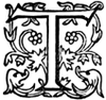
The scene of this beautiful old ballad is laid near Walsingham, in Norfolk, where was anciently an image of the Virgin Mary, famous over all Europe for the numerous pilgrimages made to it, and the great riches it possessed. Erasmus has given a very exact and humorous description of the superstitions practised there in his time. See his account of the Virgo parathalassia, in his colloquy, intitled, Peregrinatio religionis ergo. He tells us, the rich offerings in silver, gold, and precious stones, that were there shewn him, were incredible, there being scarce a person of any note in England, but what some time or other paid a visit, or sent a present to our lady [Pg 89]of Walsingham.[442] At the dissolution of the monasteries in 1538, this splendid image, with another from Ipswich, was carried to Chelsea, and there burnt in the presence of commissioners; who, we trust, did not burn the jewels and the finery.
This poem is printed from a copy in the Editor's folio MS. which had greatly suffered by the hand of time; but vestiges of several of the lines remaining, some conjectural supplements have been attempted, which, for greater exactness, are in this one ballad distinguished by italicks.[443]
[The shrine of the Virgin at Walsingham was the favourite English resort of pilgrims for nearly four hundred years, and the people of Norfolk were in great distress when their image was taken away from them, and the stream of votaries was suddenly stopped. In a copy of the Reliques in the library of the British Museum, there is a MS. note by William Cole to the following effect: "I was lately informed that the identical image of our lady of Walsingham being mured up in an old wall, and there discovered on pulling it down, was presented by the Earl of Leicester (Coke) to a relative of his of the Roman Catholic religion."
The shrine was connected with a Priory of Augustinian Canons, which was founded during the episcopate of William Turbus, Bishop of Norwich (1146-1174). When Henry III. made his pilgrimage to the shrine in the year 1241, it had long been famous, and was probably more frequented even than the tomb of St. Thomas a Becket at Canterbury. Foreigners of all nations came hither on pilgrimage, and in number and quality the devotees appear to have equalled those who toiled to the Lady of Loretto in Italy. Several of our kings visited the shrine after Henry III. had set the example. Edward I. was there in 1280 and in 1296, Edward II. in 1315, and Edward IV. and his queen in 1469. Henry VII. offered his prayers in "our Lady's Church" at Christmas time 1486-7, and in the following summer, after the battle of Stoke, "he sent his banner to be offered to our Lady of Walsingham, where before he made his vows." Spelman gives on hearsay evidence the report that Henry VIII., in the second year of his reign, walked barefoot to Walsingham from a neighbouring village, and then presented a valuable necklace to the image. [Pg 90]Bartholomew, Lord Burghersh, K.G., by his will made in 1369, ordered a statue of himself on horseback to be made in silver, and offered to our Lady of Walsingham; and Henry VII., in his lifetime, gave a kneeling figure of himself. There are numerous references to Walsingham in the Paston Letters, and in 1443 we find Margaret Paston writing to her husband to tell him that her mother had vowed another image of wax of his own weight, to "our Lady of Walsingham," and that she herself had vowed to go on pilgrimage there for him. (Ed. Fenn, iii. 22.)
The total income of the place (including the offerings) was reported to be £650 in the twenty-sixth year of Henry VIII.'s reign, and Roger Ascham, when visiting Cologne in 1550, makes this remark: "The Three Kings be not so rich, I believe, as was the Lady of Walsingham." Now the treasures at Cologne are said to have been worth six millions of francs (£240,000).
The road to Walsingham was a well-frequented one, and a cross was set up in every town it passed through. An old track running by Newmarket, Brandon, and Castle Acre, which was used by the pilgrims, was known as the "Palmer's Way" or "Walsingham Green Way."
The Milky Way ("the Watling-street of the heavens," as Chaucer has it) has been associated with pilgrimages in several countries. In Norfolk, the long streaming path of light was supposed to point the pilgrim on his road to Walsingham, and was in consequence called the "Walsingham Way." In Italy, in France, and in the north of Europe it has been called "St. Jago's Way," "Jacobsstrasse," &c., as pointing the way to Compostella, and one of its Turkish names is "The Hadji's Way," as indicating the road to Mecca.[444]
Among the Rawlinson MSS. in the Bodleian Library is A Lament for Walsingham, in the handwriting of Philip, Earl of Arundel, the third stanza of which is as follows:
The whole poem is printed in the Folio MS. ed. Hales and Furnivall, vol. iii. p. 470.
The late Mr. John Gough Nichols published in 1849 a very interesting volume, containing a translation of the Colloquy of Erasmus, with valuable notes in illustration of it, under the following title: "Pilgrimages to Saint Mary of Walsingham and Saint Thomas of Canterbury, by Desiderius Erasmus, newly translated ... and illustrated by J. G. Nichols. Westminster. 1849." sm. 8vo. This work has lately been reprinted.
An excellent description of Walsingham Priory, with an account of the excavations made on its site in 1853, will be found in Henry Harrod's Gleanings among the Castles and Convents of Norfolk, 8vo. Norwich, 1857, pp. 155-197.]
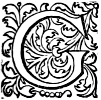
⁂ To shew what constant tribute was paid to Our Lady of Walsingham, I shall give a few extracts from the "Houshold-Book of Henry Algernon Percy, 5th Earl of Northumberland." Printed 1770, 8vo.
Sect. xliii. p. 337, &c.
Item, My Lorde usith yerly to send afor Michaelmas for his Lordschip's Offerynge to our Lady of Walsyngeham.—iiij d.
Item, My Lorde usith ande accustumyth to sende yerely for the upholdynge of the Light of Wax which his Lordschip fyndith birnynge yerly befor our Lady of Walsyngham, contenynge xj lb. of Wax in it after vij d. ob. for the fyndynge of every lb. redy wrought by a covenaunt maid with the Channon by great, for the hole yere, for the fyndinge of the said Lyght byrnning,—vi s. viiij d.
Item, My Lord useth and accustomith to syende yerely to the Channon that kepith the Light before our Lady of Walsyngham, for his reward for the hole yere, for kepynge of the said Light, lightynge of it at all service tymes dayly thorowt the yere,—xij d.
Item, My Lord usith and accustomyth yerely to send to the Prest that kepith the Light, lyghtynge of it at all service tymes daily thorowt the yere,—iij s. iiij d.
[442] See at the end of this ballad an account of the annual offerings of the Earls of Northumberland.
[443] [In the Folio MS. is the following note by Percy:—"Since I first transcribed this song for the press part of the leaf has been worne away. It was once exactly as I have represented it in my book." Ed. Hales and Furnivall, vol. iii. p. 526.]
[444] [R. J. King's Sketches and Studies, 1874, p. 262.]
[445] [Mr. Furnivall suggests a prey.]
[446] Three of the following stanzas have been finely paraphrased by Dr. Goldsmith, in his charming ballad of Edwin and Emma; the reader of taste will have a pleasure in comparing them with the original.
[Goldsmith did not follow the last two verses, but made his ending much more sentimental than that of the old ballad.]

Was a story of great fame among our ancestors. The author of the Art of English poesie, 1589, 4to, seems to speak of it as a real fact.—Describing that vicious mode of speech, which the Greeks called Acyron, i.e. "When we use a dark and obscure word, utterly repugnant to that we should express;" he adds, "Such manner of uncouth speech did the Tanner of Tamworth use to king Edward the fourth; which Tanner, having a great while mistaken him, and used very broad talke with him, at length perceiving by his traine that it was the king, was afraide he should be punished for it, [and] said thus, with a certain rude repentance,
for [I feare me] I shall be hanged; whereat the king laughed a good,[447] not only to see the Tanner's vaine feare, but also to heare [Pg 95]his illshapen terme: and gave him for recompence of his good sport, the inheritance of Plumpton-parke. I am afraid," concludes this sagacious writer, "the poets of our times that speake more finely and correctedly, will come too short of such a reward," p. 214.—The phrase, here referred to, is not found in this ballad at present,[448] but occurs with some variation in another old poem, intitled John the Reeve, described in the following volume (see the Preface to the King and the Miller),[449] viz.
The following text is selected (with such other corrections as occurred) from two copies in black-letter. The one in the Bodleyan library, intitled, "A merrie, pleasant, and delectable historie betweene K. Edward the Fourth, and a Tanner of Tamworth, &c. printed at London, by John Danter, 1596." This copy, ancient as it now is, appears to have been modernized and altered at the time it was published; and many vestiges of the more ancient readings were recovered from another copy, (though more recently printed,) in one sheet folio, without date, in the Pepys collection.
But these are both very inferior in point of antiquity to the old ballad of The King and the Barker, reprinted with other "Pieces of Ancient Popular Poetry from Authentic Manuscripts and old Printed Copies, &c." Lond. 1791, 8vo. As that very antique Poem had never occurred to the Editor of the Reliques, till he saw it in the above collection, he now refers the curious reader to it, as an imperfect and incorrect copy of the old original ballad.
[This ballad was a great favourite with our ancestors and is probably of considerable antiquity.
The earliest entry of it upon the Registers of the Stationers' Company is to William Griffith in 1564, but no such edition is known to bibliographers. It is possible, however, that Puttenham may have found the line quoted above—
in that edition.
It belongs to the large class of tales in which the sovereign is [Pg 96]made to converse on terms of good fellowship with a humble subject.
The interesting ballad of John the Reeve referred to by Percy is printed for the first time in Hales and Furnivall's edition of the Folio Manuscript (vol. ii. p. 550.)
The Tanner of Tamworth is introduced into the first part of Heywood's Edward IV. The ballad Under the greenwood tree, among the Ashmole MSS. at Oxford, Robin Hood and the Curtal Friar, and Robin Hood and the Monk, all begin with the same words as this ballad—
The present version is an eclectic copy, polished and reversified by Percy.]

⁂
[447] [for good deal.]
[448] Nor in that of the Barker mentioned below.
[449] [Vol. iii. Book 2, No. 20.]
[450] [ready.]
[451] In the reign of Edward IV. Dame Cecill, lady of Torboke, in her will dated March 7, A.D. 1466; among many other bequests has this, "Also I will that my sonne Thomas of Torboke have 13s. 4d. to buy him an horse." Vid. Harleian Catalog. 2176. 27.—Now if 13s. 4d. would purchase a steed fit for a person of quality, a tanner's horse might reasonably be valued at four or five shillings.
[452] [know.]
[453] [thank you.]
[454] [prove.]
[455] i.e. hast no other wealth, but what thou carriest about thee.
[456] i.e. a dealer in bark.
[457] [avert it.]
[458] [profit.]
[459] [so may I thrive.]
[460] [moment.]
[461] [broken.]
[462] This stanza is restored from a quotation of this ballad in Selden's Titles of Honour, who produces it as a good authority to prove, that one mode of creating Esquires at that time, was by the imposition of a Collar. His words are, "Nor is that old pamphlet of the Tanner of Tamworth and King Edward the Fourth so contemptible, but that wee may thence note also an observable passage, wherein the use of making Esquires, by giving Collars, is expressed." (Sub Tit. Esquire; & vide in Spelmanni Glossar. Armiger.) This form of creating Esquires actually exists at this day among the Serjeants at Arms, who are invested with a Collar (which they wear on Collar Days) by the King himself.
This information I owe to Samuel Pegge, Esq. to whom the publick is indebted for that curious work the Curialia, 4to.
[463] [cow hide shall mend thy shoes.]
Dialogue between a Pilgrim and Traveller.
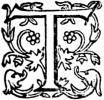
The scene of this song is the same as in Num. XIV. The pilgrimage to Walsingham suggested the plan of many popular pieces. In the Pepys collection, vol. i. p. 226, is a kind of Interlude in the old ballad style, of which the first stanza alone is worth reprinting.
The pilgrimages undertaken on pretence of religion, were often productive of affairs of gallantry, and led the votaries to no other shrine than that of Venus.[464]
The following ballad was once very popular; it is quoted in Fletcher's Knt. of the burning pestle, act ii. sc. ult. and in another old play, called, Hans Beer-pot, his invisible Comedy, &c. 4to. 1618; act i.—The copy below was communicated to the Editor by the late Mr. Shenstone as corrected by him from an ancient copy, and supplied with a concluding stanza.
We have placed this, and Gentle Herdsman, &c. thus early in the volume, upon a presumption that they must have been written, [Pg 104]if not before the dissolution of the monasteries, yet while the remembrance of them was fresh in the minds of the people.
[Although Percy does not mention his folio MS. this song is there, and a copy from it is now printed at the end of Percy's version. With the exception of the last three lines there are little but verbal differences, but these are numerous. The ending is strikingly inferior to that of the MS. and does very little credit to Shenstone's poetical taste. A copy of the song in the Bodleian library (MS. Rawl. 85 fol. 124) is signed W. R., and Dr. Bliss in consequence claimed it for Sir Walter Raleigh in his edition of Wood's Athenæ. It is inserted in the Oxford edition of Raleigh's Works, vol. viii. p. 733, with the title—False Love and True Love. Dr. Hannah also includes it in his edition of the Courtly Poets, but believes it highly improbable that Raleigh wrote the song.
Mr. Chappell points out that the first line of the ballad quoted above is introduced in Nashe's Have with you to Saffron Walden, 1596. In The Weakest goes to the Wall, 1600, we read
The tune of Walsingham was highly popular, and numerous songs have been set to it.]

⁂

[The following version is reprinted from the Folio MS. (ed. Hales and Furnivall, vol. iii. p. 471.)
ffinis.]
[464] Even in the time of Langland, pilgrimages to Walsingham were not unfavourable to the rites of Venus. Thus in his Visions of Pierce Plowman, fo. 1.
[465] i.e. their.
[466] sc. pale.
[467] sc. angels.
A Scottish Fragment.
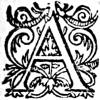
As this fine morsel of heroic poetry hath generally past for ancient, it is here thrown to the end of our earliest pieces; that such as doubt of its age, may the better compare it with other pieces of genuine antiquity. For after all, there is more than reason to suspect, that it owes most of its beauties (if not its whole existence) to the pen of a lady, within the present century. The following particulars may be depended on. Mrs. Wardlaw, whose maiden name was Halket (aunt to the late Sir Peter Halket, of Pitferran, in Scotland, who was killed in America, along with general Bradock, in 1755), pretended she had found this poem, written on shreds of paper, employed for what is called the bottoms of clues. A suspicion arose that it was her own composition. Some able judges asserted it to be modern. The lady did in a manner acknowledge it to be so. Being desired to shew an additional stanza, as a proof of this, she produced the 2 last beginning with "There's nae light," &c. which were not in the copy that was first printed. The late Lord President Forbes, and Sir Gilbert Elliot of Minto (late Lord Justice Clerk for Scotland) who had believed it ancient, contributed to the expence of publishing the first edition, in folio, 1719.—This account was transmitted from Scotland by Sir David Dalrymple, the late Lord Hailes, who yet was of opinion, that part of the ballad may be ancient; but retouched and much enlarged by the lady abovementioned. Indeed he had been informed, that the late William Thomson, the Scottish musician, who published the Orpheus Caledonius, 1733, 2 vols. 8vo. declared he had heard[Pg 108] fragments of it repeated in his infancy, before Mrs. Wardlaw's copy was heard of.
The poem is here printed from the original edition, as it was prepared for the press with the additional improvements.
In an elegant publication, intitled, Scottish Tragic Ballads, printed by and for J. Nichols, 1781, 8vo. may be seen a continuation of the Ballad of Hardyknute, by the addition of a Second Part, which hath since been acknowledged to be his own composition, by the ingenious Editor [John Pinkerton]—To whom the late Sir D. Dalrymple communicated (subsequent to the account drawn up above) extracts of a letter from Sir John Bruce, of Kinross, to Lord Binning, which plainly proves the pretended discoverer of the fragment of Hardyknute to have been Sir John Bruce himself. His words are, "To perform my promise, I send you a true copy of the Manuscript I found some weeks ago in a vault at Dumferline. It is written on vellum in a fair Gothic character, but so much defaced by time, as you'll find that the tenth part is not legible." He then gives the whole fragment as it was first published in 1719, save one or two stanzas, marking several passages as having perished by being illegible in the old MS. Hence it appears, that Sir John was the author of Hardyknute, but afterwards used Mrs. Wardlaw to be the midwife of his poetry, and suppressed the story of the vault; as is well observed by the Editor of the Tragic Ballads, and of Maitland's Scot. Poets, vol. i. p. cxxvii.
To this gentleman we are indebted for the use of the copy, whence the second edition was afterwards printed, as the same was prepared for the press by John Clerk, M.D. of Edinburgh, an intimate companion of Lord President Forbes.
The title of the first edition was, "Hardyknute, a Fragment. Edinburgh, printed for James Watson, &c. 1719," folio, 12 pages.
Stanzas not in the first edition are, Nos. 17, 18, 20, 21, 22, 23, 34, 35, 36, 37, 41, 42.
In the present impression the orthography of Dr. Clerk's copy has been preserved, and his readings carefully followed, except in a few instances, wherein the common edition appeared preferable: viz. He had in ver. 20. but.—v. 56. of harm.—v. 64. every.—v. 67. lo down.—v. 83. That omitted.—v. 89. And omitted.—v. 143. With argument but vainly strave Lang.—v. 148. say'd.—v. 155. incampit on the plain.—v. 156. Norse squadrons.—v. 158. regand revers.—v. 170. his strides he bent.—v. 171. minstrals playand Pibrochs fine.—v. 172. stately went.—v. 182. mon.—v. 196. sharp and fatal.—v. 219. which.—v. 241. stood wyld.—Stanza 39 preceded stanza 38.—v. 305. There.—v. 313. blew westling.—v. 336. had originally been, He fear'd a' cou'd be fear'd.
The Editor was also informed, on the authority of Dr. David Clerk, M.D. of Edinburgh (son of the aforesaid Dr. John Clerk),[Pg 109] that between the present stanzas 36 and 37, the two following had been intended, but were on maturer consideration omitted, and do not now appear among the MS. additions:
[Elizabeth Halket, second daughter of Sir Charles Halket of Pitfirrane, Fife, and wife of Sir Henry Wardlaw of Pitrivie, Fife and Balmulie near Dunfermline, who was born in the year 1677, married in 1696, and died in 1727, is now known to have been the authoress of Hardyknute, although it was many years before the question of the authorship was finally settled.
Mr. David Laing once possessed a copy of this ballad printed in a duodecimo of eight pages without date, which is supposed to be the original edition. Besides various differences, some important and others minute, it does not contain stanzas 27, 28 and 40, which are printed in the folio of 1719. It was reprinted several times before Percy included it in his book, and its antiquity does not seem to have been doubted, for the editor of the edition of 1740 speaks of it as a specimen of the true sublime, and believes that "it can only be the work of an author highly smitten with the fury of a poetical genius." Allan Ramsay's Evergreen, 1724, vol. ii. contains this ballad with the twelve additional stanzas noted above by Percy.
When Percy first printed the ballad suspicions of its authenticity had been expressed, which soon led to the discovery of the writer, but after having stated who was the real author, he threw doubts upon his statement on account of Pinkerton's truthless report. Pinkerton was never to be depended upon, and he had previously affirmed that the common people of Lanarkshire "repeat scraps of both parts," although the second was his own composition. Sir John Hope Bruce[Pg 110] had nothing to do with the composition of the ballad, and it is even doubtful whether his supposed letter to Lord Binning ever had any existence. If it had, it was merely a mystification. On the second of December, 1785, Lord Hailes wrote to Pinkerton as follows, "You mistook if you suppose that I reckoned Sir John Bruce to be the author of Hardyknute. It is his sister-in-law, Lady Wardlaw, who is said to have been the author." Yet Pinkerton made Percy believe that Bruce was the author. Great difference of opinion has been expressed as to the merit of the ballad by various critics. Mathias was fascinated with it, and printed it privately with an encomiastic criticism. Scott wrote on the fly-leaf of his copy of Ramsay's Evergreen, "Hardyknute was the first poem I ever learnt—the last that I shall forget," and in his Minstrelsy of the Border he terms it "a most spirited and beautiful imitation of the ancient ballad." Thomas Warton was deceived by it, and describes it as genuine in the first edition of his Observations on Spenser. In the second edition he assigns the ballad to its true author, but adds, "I am apt to think that the first stanza is old and gave the hint for writing the rest." On the other side Dr. Johnson considered it to have "no great merit," and Aytoun esteemed it a very poor performance. It has not been popular with the ordinary devourers of ballads, and Mr. James Maidment never had the good luck to pick up a stall copy—he writes, "The flying stationers, the best judges of what suited their customers, not considering it an eligible republication." The ballad is supposed to refer to the battle of Largs, fought on the second of October, 1263, between the invading force led by Haco, King of Norway, and the Scottish army commanded in person by Alexander III., but it would, in fact, suit any conflict between Scots and Northmen. The effect of this battle was the loss to Scandinavia of the Hebrides and the Isle of Man, which dependencies were relinquished to Alexander III. by terms of a treaty concluded in 1266, with Magnus, the successor of Haco. The victory was largely due to the Lord High Steward of Scotland, who is supposed to be represented by Hardyknute. Mr. Gilfillan notes that "Fairly Castle, the residence of Hardyknute, stands three miles south of the battle field. It is a single square tower, by the side of a wild stream tumbling over a rock into a deep ravine."]
I.
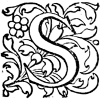
II.
III.
IV.
V.
VI.
VII.
VIII.
IX.
X.
XI.
XII.
XIII.
XIV.
XV.
XVI.
XVII.
XVIII.
XIX.
XX.
XXI.
XXII.
XXIII.
XXIV.
XXV.
XXVI.
XXVII.
XXVIII.
XXIX.
XXX.
XXXI.
XXXII.
XXXIII.
XXXIV.
XXXV.
XXXVI.
XXXVII.
XXXVIII.
XXXIX.
XL.
XLI.
XLII.
[468] [wall or rampart of the castle.]
[469] [halls.]
[470] [match or equal.]
[471] [Margaret was the name of the queen of Alexander III. Her mother was Eleanor, Queen of England.]
[472] [without.]
[473] [slender.]
[474] [shone like gold.]
[475] [so shrill.]
[476] [yester even.]
[477] [true.]
[478] [broad.]
[479] [armour.]
[480] [twirled twist.]
[481] [full calm the shining day becomes.]
[482] [retinue.]
[483] [gone far over the country.]
[484] [tried.]
[485] [the horse army.]
[486] [companions.]
[487] [spoilers or robbers.]
[488] [cross.]
[489] [then.]
[490] [sword.]
[491] [proper.]
[492] [pillar of war.]
[493] [hit.]
[494] [seldom.]
[495] [to measure or try the battle.]
[496] [unlucky.]
[497] [quitted.]
[498] [aimed at.]
[499] [upper garment.]
[500] [promised.]
[501] [made.]
[502] [bend low.]
[503] [hit.]
[504] [in derision.]
[505] [sure token he was doomed to death.]
[506] [at once.]
[507] [mollify.]
[508] [faded.]
[509] [suffer.]
[510] [dark.]
[511] [drew near.]
[512] [warden.]
THE END OF THE FIRST BOOK.

RELIQUES OF ANCIENT POETRY, ETC.
SERIES THE SECOND.


In the former Book we brought down this second Series of poems, as low as about the middle of the sixteenth century. We now find the Muses deeply engaged in religious controversy. The sudden revolution, wrought in the opinions of mankind by the Reformation, is one of the most striking events in the history of the human mind. It could not but engross the attention of every individual in that age, and therefore no other writings would have any chance to be read, but such as related to this grand topic. The alterations made in the established religion by Henry VIII., the sudden changes it underwent in the three succeeding reigns within so short a space as eleven or twelve years, and the violent struggles between expiring Popery, and growing Protestantism, could not but interest all mankind. Accordingly every pen was engaged in the dispute. The followers of the Old and New Profession (as they were called) had their respective Ballad-makers; and every day produced some popular sonnet for or against the Reformation. The following ballad, and that intitled Little John Nobody, may serve for specimens of the writings of each party. Both were written in the reign of Edward VI.; and are not the worst that were composed upon the occasion. Controversial divinity is no friend to poetic flights. Yet this ballad of Luther and the Pope is not altogether devoid of spirit; it is of the dramatic kind, and the characters are tolerably well sustained; especially that of Luther, which is made to speak in a manner not unbecoming the spirit and courage of that vigorous Reformer. It is printed from the original black-letter copy (in the Pepys collection, vol. i. folio,) to which is prefixed a large wooden cut, designed and executed by some eminent master.
We are not to wonder that the ballad-writers of that age should be inspired with the zeal of controversy, when the very stage teemed with polemic divinity. I have now before me two very ancient quarto black-letter plays: the one published in the time of Henry VIII., intitled, Every Man; the other called Lusty Juventus, printed in the reign of Edward VI. In the former of these, occasion is taken to inculcate great reverence for old mother church and her superstitions:[513] in the other, the poet (one R. Wever) with great success attacks both. So that the Stage in those days literally was, what wise men have always wished it, a supplement to the pulpit:—This was so much the case, that in the play of Lusty Juventus, chapter and verse are every where quoted as formally as in a sermon; take an instance:
From this play we learn that most of the young people were New Gospellers, or friends to the Reformation; and that the old were tenacious of the doctrines imbibed in their youth: for thus the Devil is introduced lamenting the downfal of superstition:
And in another place Hypocrisy urges,
Of the plays abovementioned, to the first is subjoined the following Printer's Colophon, ¶ Thus endeth this moral playe of Every Man, ¶ Imprynted at London in Powles chyrche yarde by me John Skot. In Mr. Garrick's collection is an imperfect copy of the same play, printed by Richarde Pynson.
The other is intitled, An enterlude called Lusty Juventus: and is thus distinguished at the end: Finis. quod R. Wever. Imprinted at London in Paules churche yeard, by Abraham Vele at the signe of the Lambe. Of this too Mr. Garrick has an imperfect copy of a different edition.
Of these two plays the reader may find some further particulars in the former volume, Appendix II., see The Essay on the Origin of the English Stage; and the curious reader will find the plays themselves printed at large in Hawkins's Origin of the English Drama, 3 vols. Oxford, 1773, 12mo.
The Husbandman.

Doctor Martin Luther.
The Pope.
The Cardinal.
[513] Take a specimen from his high encomiums on the priesthood.
See Hawkins's Orig. of Eng. Drama, vol. i. p. 61.
[514] i.e. denied us the cup, see below, ver. 94.
[515] [friars.]
[516] [stratagem.]
[517] i.e. make thee knock under the table.
[518] i.e. his rule.
A Scottish Song.
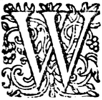
While in England verse was made the vehicle of controversy, and popery was attacked in it by logical argument, or stinging satire; we may be sure the zeal of the Scottish Reformers would not suffer their pens to be idle, but many a pasquil was discharged at the Romish priests, and their enormous encroachments on property. Of this kind perhaps is the following, (preserved in Maitland's MS. Collection of Scottish poems in the Pepysian library:)
Thus far all was fair: but the furious hatred of popery led them to employ their rhymes in a still more licentious manner. It is a received tradition in Scotland, that at the time of the Reformation, ridiculous and obscene songs were composed to be sung by the rabble to the tunes of the most favourite hymns in the Latin service. Green sleeves and pudding pies (designed to ridicule the popish clergy) is said to have been one of these metamorphosed hymns: Maggy Lauder was another: John Anderson my jo was a third. The original music of all these burlesque sonnets was very fine. To give a specimen of their manner, we have inserted one of the least offensive. The reader will pardon the meanness of the composition for the sake of the anecdote, which strongly marks the spirit of the times.
In the present Edition this song is much improved by some new readings communicated by a friend; who thinks by the "Seven Bairns," in st. 2d. are meant the Seven Sacraments; five of which were the spurious offspring of Mother Church: as the first stanza contains a satirical allusion to the luxury of the popish clergy.
The adaptation of solemn church music to these ludicrous pieces[Pg 134] and the jumble of ideas thereby occasioned, will account for the following fact.—From the Records of the General Assembly in Scotland, called, The Book of the Universal Kirk, p. 90, 7th July, 1568, it appears, that Thomas Bassendyne printer in Edinburgh, printed "a psalme buik, in the end whereof was found printit ane baudy sang, called, Welcome Fortunes."[519]
[In the first edition of the Reliques the number of the bairns is fixed at five instead of seven, and the rhyme to five is thrive instead of threven. The last line is
The present copy has thus been altered to support the untenable position that the seven bairns were meant to represent the seven sacraments.
According to tradition John Anderson was formerly the town crier of Kelso, and the song is not of any great antiquity, for it is first found in the Skene MS., the date of which Dauney (Ancient Scottish Melodies, p. 219) fixes at the beginning of the seventeenth century, but which includes, according to Mr. Chappell, an English country dance that first appeared in 1698 (Popular Music of the Olden Time, vol. ii. p. 770).
Burns wrote his song—
to the old tune, for Johnson's Musical Museum.]
Woman.

Man.

We have here a witty libel on the Reformation under king Edward VI. written about the year 1550, and preserved in the Pepys collection, British Museum, and Strype's Mem. of Cranmer. The author artfully declines entering into the merits of the cause, and wholly reflects on the lives and actions of many of the Reformed. It is so easy to find flaws and imperfections in the conduct of men, even the best of them, and still easier to make general exclamations about the profligacy of the present times, that no great point is gained by arguments of that sort, unless the author could have proved that the principles of the Reformed Religion had a natural tendency to produce a corruption of manners: whereas he indirectly owns, that their reverend father [archbishop Cranmer] had used the most proper means to stem the torrent, by giving the people access to the Scriptures, by teaching them to pray with understanding, and by publishing homilies, and other religious tracts. It must however be acknowledged, that our libeller had at that time sufficient room for just satire. For under the banners of the Reformed had enlisted themselves, many concealed papists, who had private ends to gratify; many that were of no religion; many greedy courtiers, who thirsted after the possessions of the church; and many dissolute persons, who wanted to be exempt from all ecclesiastical censures. And as these men were loudest of all others in their cries for Reformation, so in effect, none obstructed the regular progress of it so much, or by their vicious lives brought [Pg 136]vexation and shame more on the truly venerable and pious Reformers.
The reader will remark the fondness of our satirist for alliteration: in this he was guilty of no affectation or singularity; his versification is that of Pierce Plowman's Visions, in which a recurrence of similar letters is essential: to this he has only superadded rhyme, which in his time began to be the general practice. See an Essay on this very peculiar kind of metre, in the appendix to this Volume.
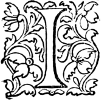
[521] Perhaps "he left talk."
[522] feyned, MSS. and PC.
[523] [asked that man.]
[524] [cows at a hurdle.]
[525] [worthless fellow.]
[526] [play.]
[527] [Ver. 3. Cain's kind.]. So in Pierce the Plowman's Creed, the proud friars are said to be
[528] [humour.]
[529] [harassed.]
[530] [cruel.]
[531] [pursue revengefully.]
[532] [adultery.]
[533] [censure.]
[534] [strong man.]
[535] then, MSS. and PC.
[536] Hercules, MSS. and PC.
[537] [shunned.]
Writ with Charcoal on a Shutter,

Are preserved by Hentzner, in that part of his Travels which has been reprinted in so elegant a manner at Strawberry-hill. In Hentzner's book they were wretchedly corrupted, but are here given as amended by his ingenious editor. The old orthography, and one or two ancient readings of Hentzner's copy, are here restored.

A.D. MDLV.
Elizabethe, Prisonner.
[538] Ver. 4. "Could beare," is an ancient idiom, equivalent to "did bear" or "hath borne." See below the Beggar of Bednal Green, Book 2, No. x. v. 57. "Could say."
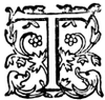
The original of this ballad is found in the Editor's folio MS., the breaches and defects in which rendered the insertion of supplemental stanzas necessary. These, it is hoped, the reader will pardon, as indeed the completion of the story was suggested by a modern ballad on a similar subject.
From the Scottish phrases here and there discernible in this poem, it should seem to have been originally composed beyond the Tweed.
The Heir of Linne appears not to have been a Lord of Parliament, but a Laird, whose title went along with his estate.
[In the folio MS. Percy wrote the following note: "This old copy (tho' a very indifferent fragment) I thought deserving of some attention. I have therefore bestowed an entire revisal of the subject for my Reliques, &c." In this revisal, the Bishop swelled out the 125 lines of the original into the 216 of his own version. It has, therefore, been necessary to print a copy of the original at the end of the present ballad. The modern ballad referred to above is the Drunkard's Legacy, printed in J. H. Dixon's Ballads of the Peasantry, but it is only comparatively modern, as it dates back to a period long before Percy's time. The portion which Percy interpolated and took from this ballad, forms the end of the first part and beginning of the second part of the following version.
The incident by which the hidden treasure is discovered occurs in one of the stories of Cinthio's Heccatomithi (Dec. ix. Nov. 8), but the arguments of the two tales are in other respects different.[Pg 141] The Scotch claim this ballad as their own. Some suppose the hero to have been an Ayrshire laird, and others that he was from Galloway. Motherwell gives the following verses as the commencement of the traditionary version extant in Scotland:
Part the First.

Part the Second.

†‡† In the present edition of this ballad several ancient readings are restored from the folio MS.

The following original version of the Heir of Linne is reprinted from Hales and Furnivall's edition of the folio MS. vol. i. p. 174:
ffins]
[539] [attend.]
[540] [property.]
[541] i.e. earnest-money; from the French Denier à Dieu. At this day, when application is made to the Dean and Chapter of Carlisle to accept an exchange of the tenant under one of their leases, a piece of silver is presented by the new tenant, which is still called a "Gods-penny."
[542] [forest.]
[543] Ver. 63, 4, 5, &c. Sic MS.
[544] [forest.]
[545] [loathsome.]
[546] [abashed.]
[547] [letter.]
[548] in-fere, i.e. together.
[549] i.e. unless I amend.
[550] i.e. advice, counsel.
[551] [lingered.]
[552] Ver. 60. an old northern phrase.
[553] Perhaps the hole in the door or window, by which it was speered, i.e. sparred, fastened, or shut. In Bale's second part of the Acts of Eng. Votaries, we have this phrase (f. 38), "The dore therof oft tymes opened and speared agayne."
[554] [worthless fellow.]
[555] [furious.]
[556] Ver. 34, 102. cast, is the reading of the MS.
[557] [unless.]
On Her having a Scar in Her Forehead.
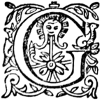
George Gascoigne was a celebrated poet in the early part of Queen Elizabeth's reign, and appears to great advantage among the miscellaneous writers of that age. He was author of three or four plays, and of many smaller poems; one of the most remarkable of which is a satire in blank verse, called the Steele-glass, 1576, 4to.
Gascoigne was born in Essex, educated in both universities, whence he removed to Gray's-inn; but, disliking the study of the law, became first a dangler at court, and afterwards a soldier in the wars of the Low Countries. He had no great success in any[Pg 153] of these pursuits, as appears from a poem of his, intitled "Gascoigne's Wodmanship, written to lord Gray of Wilton." Many of his epistles dedicatory are dated in 1575, 1576, from "his poore house in Walthamstoe:" where he died a middle-aged man in 1578, according to Anth. Wood: or rather in 1577, if he is the person meant in an old tract, intitled, "A remembrance of the well employed Life and godly End of Geo. Gascoigne, Esq.; who deceased at Stamford in Lincolnshire, Oct. 7, 1577, by Geo. Whetstone, Gent. an eye-witness of his godly and charitable end in this world," 4to. no date. [From a MS. of Oldys.]
Mr. Thomas Warton thinks "Gascoigne has much exceeded all the poets of his age, in smoothness and harmony of versification."[558] But the truth is, scarce any of the earlier poets of Q. Elizabeth's time are found deficient in harmony and smoothness, tho' those qualities appear so rare in the writings of their successors. In the Paradise of Dainty Devises,[559] (the Dodsley's Miscellany of those times) will hardly be found one rough, or inharmonious line:[560] whereas the numbers of Jonson, Donne, and most of their contemporaries, frequently offend the ear like the filing of a saw. Perhaps this is in some measure to be accounted for from the growing pedantry of that age, and from the writers affecting to run their lines into one another, after the manner of the Latin and Greek poets.
The following poem (which the elegant writer above quoted hath recommended to notice, as possessed of a delicacy rarely to be seen in that early state of our poetry) properly consists of Alexandrines of twelve and fourteen syllables, and is printed from two quarto black-letter collections of Gascoigne's pieces; the first intitled, "A hundreth sundrie flowres, bounde up in one small posie, &c. London, imprinted for Richarde Smith:" without date, but from a letter of H. W. (p. 202), compared with the printer's epist. to the reader, it appears to have been published in 1572, or 3. The other is intitled, "The Posies of George Gascoigne, Esq.; corrected, perfected, and augmented by the author; 1575.—Printed at Lond. for Richard Smith, &c." No year, but the epist. dedicat. is dated 1576.
In the title-page of this last (by way of printer's,[561] or bookseller's device) is an ornamental wooden cut, tolerably well [Pg 154]executed, wherein Time is represented drawing the figure of Truth out of a pit or cavern, with this legend, Occulta veritas tempore patet [R. S.] This is mentioned because it is not improbable but the accidental sight of this or some other title-page containing the same device, suggested to Rubens that well-known design of a similar kind, which he has introduced into the Luxemburg gallery,[562] and which has been so justly censured for the unnatural manner of its execution.
The lady here celebrated was Catharine, daughter of Edmond second Lord Chandos, wife of William Lord Sands. See Collins's Peerage, vol. ii. p. 133, ed. 1779.
[George Gascoigne, soldier and poet, had many enemies, and when objection was made to the Privy Council against his return as a burgess for Midhurst, they termed him "a common rymer, ruffian, atheist," &c. Mr. W. C. Hazlitt printed a complete collection of his poems in the Roxburghe Library, 2 vols. London, 1869-70.]
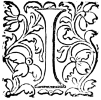
[558] Observations on the Faerie Queen, vol. ii. p. 168.
[559] Printed in 1576, 1577, 1578, 1580, 1585, 1596, 1600, and perhaps oftener, in 4to. black-letter.
[560] The same is true of most of the poems in the Mirrour of Magistrates, 1563, 4to. and also of Surrey's Poems, 1557.
[561] Henrie Binneman.
[562] Le Tems découvre la Vérité.
[563] Ver. 62. In cradel of hir kind: i.e. in the cradle of her family. See Warton's Observations, vol. ii. p. 137.
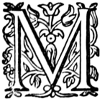
Most of the circumstances in this popular story of king Henry II. and the beautiful Rosamond have been taken for fact by our English historians; who, unable to account for the unnatural conduct of queen Eleanor in stimulating her sons to rebellion, have attributed it to jealousy, [Pg 157]and supposed that Henry's amour with Rosamond was the object of that passion.
Our old English annalists seem, most of them, to have followed Higden the monk of Chester, whose account, with some enlargements, is thus given by Stow:—"Rosamond the fayre daughter of Walter lord Clifford, concubine to Henry II. (poisoned by queen Elianor, as some thought) dyed at Woodstocke [A.D. 1177] where king Henry had made for her a house of wonderfull working; so that no man or woman might come to her, but he that was instructed by the king, or such as were right secret with him touching the matter. This house after some was named Labyrinthus, or Dedalus worke, which was wrought like unto a knot in a garden, called a maze;[564] but it was commonly said, that lastly the queene came to her by a clue of thridde, or silke, and so dealt with her, that she lived not long after: but when she was dead, she was buried at Godstow in an house of nunnes, beside Oxford, with these verses upon her tombe:—
"In English thus:—
Stowe's Annals, ed. 1631, p. 154.
How the queen gained admittance into Rosamond's bower is differently related. Hollinshed speaks of it, as "the common report of the people, that the queene ... founde hir out by a silken thread, which the king had drawne after him out of hir chamber with his foot, and dealt with hir in such sharpe and cruell wise, that she lived not long after." Vol. iii. p. 115. On the other hand, in Speede's Hist. we are told that the jealous queen found her out "by a clew of silke, fallen from Rosamund's lappe, as shee sate to take ayre, and suddenly fleeing from the sight of the searcher, the end of her silke fastened to her foot, and [Pg 158]the clew still unwinding, remained behinde: which the queene followed, till she had found what she sought, and upon Rosamund so vented her spleene, as the lady lived not long after." 3rd edit. p. 509. Our ballad-maker with more ingenuity, and probably as much truth, tells us the clue was gained by surprise, from the knight who was left to guard her bower.
It is observable, that none of the old writers attribute Rosamond's death to poison (Stow, above, mentions it merely as a slight conjecture); they only give us to understand, that the queen treated her harshly; with furious menaces, we may suppose, and sharp expostulations, which had such effect on her spirits, that she did not long survive it. Indeed on her tomb-stone, as we learn from a person of credit,[565] among other fine sculptures, was engraven the figure of a cup. This, which perhaps at first was an accidental ornament (perhaps only the chalice) might in after times suggest the notion that she was poisoned; at least this construction was put upon it, when the stone came to be demolished after the nunnery was dissolved. The account is, that "the tomb-stone of Rosamund Clifford was taken up at Godstow, and broken in pieces, and that upon it were interchangeable weavings drawn out and decked with roses red and green, and the picture of the cup, out of which she drank the poison given her by the queen, carved in stone."
Rosamond's father having been a great benefactor to the nunnery of Godstow, where she had also resided herself in the innocent part of her life, her body was conveyed there, and buried in the middle of the choir; in which place it remained till the year 1191, when Hugh bishop of Lincoln caused it to be removed. The fact is recorded by Hoveden, a contemporary writer, whose words are thus translated by Stow: "Hugh bishop of Lincolne came to the abbey of nunnes, called Godstow, ... and when he had entred the church to pray, he saw a tombe in the middle of the quire, covered with a pall of silke, and set about with lights of waxe: and demanding whose tomb it was, he was answered, that it was the tombe of Rosamond, that was some time lemman to Henry II.... who for the love of her had done much good to that church. Then quoth the bishop, take out of this place the harlot, and bury her without the church, lest christian religion should grow in contempt, and to the end that, through example of her, other women being made afraid may beware, and keepe themselves from unlawfull and advouterous company with men."—Annals, p. 159.
History further informs us, that king John repaired Godstow nunnery, and endowed it with yearly revenues, "that these holy virgins might releeve with their prayers, the soules of his father king Henrie, and of lady Rosamund there interred."[566] ... In what situation her remains were found at the dissolution of the nunnery, we learn from Leland: "Rosamundes tumbe at Godstowe nunnery was taken up [of] late; it is a stone with this inscription, Tumba Rosamundæ. Her bones were closid in lede, and withyn that bones were closyd yn lether. When it was opened a very swete smell came owt of it."[567] See Hearne's discourse above quoted, written in 1718; at which time he tells us, were still seen by the pool at Woodstock the foundations of a very large building, which were believed to be the remains of Rosamond's labyrinth.
To conclude this (perhaps too prolix) account, Henry had two sons by Rosamond, from a computation of whose age, a modern historian has endeavoured to invalidate the received story. These were William Longue-espé (or Long-sword), earl of Salisbury, and Geoffrey, bishop of Lincolne.[568] Geoffrey was the younger of Rosamond's sons, and yet is said to have been twenty years old at the time of his election to that see in 1173. Hence this writer concludes, that king Henry fell in love with Rosamond in 1149, when in king Stephen's reign he came over to be knighted by the king of Scots; he also thinks it probable that Henry's commerce with this lady "broke off upon his marriage with Eleanor (in 1152) and that the young lady, by a natural effect of grief and resentment at the defection of her lover, entered on that occasion into the nunnery of Godstowe, where she died probably before the rebellion of Henry's sons in 1173." (Carte's Hist. vol. i. p. 652.) But let it be observed, that Henry was but sixteen years old when he came over to be knighted; that he staid but eight months in this island, and was almost all the time with the king of Scots; that he did not return back to England till 1153, the year after his marriage with Eleanor; and that no writer drops the least hint of Rosamond's having ever been abroad with her lover, nor indeed is it probable that a boy of sixteen should venture to carry over a mistress to his mother's court. If all these circumstances are considered, Mr. Carte's account will be found more incoherent [Pg 160]and improbable than that of the old ballad; which is also countenanced by most of our old historians.
Indeed the true date of Geoffrey's birth, and consequently of Henry's commerce with Rosamond, seems to be best ascertained from an ancient manuscript in the Cotton library: wherein it is thus registered of Geoffrey Plantagenet: "Natus est 5° Hen. II. [1159.] Factus est miles 25° Hen. II. [1179.] Elect. in Episcop. Lincoln. 28° Hen. II. [1182.]" Vid. Chron. de Kirkstall (Domitian XII.) Drake's Hist. of York, p. 422.
The ballad of Fair Rosamond appears to have been first published in "Strange Histories, or Songs and Sonnets, of Kinges, Princes, Dukes, Lords, Ladyes, Knights, and Gentlemen, &c. By Thomas Delone. Lond. 1607." 12mo.
It is here printed (with conjectural emendations), from four ancient copies in black-letter; two of them in the Pepys library.
[It is also printed in the Crown Garland of Golden Roses, and Garland of Goodwill. Reprinted by the Percy Society.
In the Collection of Old Ballads, 1723, vol. i. p. 1, is another ballad on the same subject, with the title, The Unfortunate Concubine, or Rosamond's Overthrow.
The story is also treated in Warner's Albion's England (ch. 41).]

*
[564] Consisting of vaults under ground, arched and walled with brick and stone, according to Drayton. See note on his Epistle of Rosamond.
[565] Tho. Allen of Gloc. Hall, Oxon. who died in 1632, aged 90. See Hearne's rambling discourse concerning Rosamond, at the end of Gul. Neubrig. Hist. vol. iii. p. 739.
[566] Vid. reign of Henry II. in Speed's Hist. writ by Dr. Barcham, Dean of Bocking.
[567] This would have passed for miraculous, if it had happened in the tomb of any clerical person, and a proof of his being a saint.
[568] Afterwards Archbishop of York, temp. Rich. I.
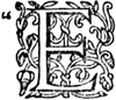
"Eleanor, the daughter and heiress of William duke of Guienne, and count of Poictou, had been married sixteen years to Louis VII. king of France, and had attended him in a croisade, which that monarch commanded against the infidels; but having lost the affections of her husband, and even fallen under some suspicions of gallantry with a handsome Saracen, Louis, more delicate than politic, procured a[Pg 167] divorce from her, and restored her those rich provinces, which by her marriage she had annexed to the crown of France. The young count of Anjou, afterwards Henry II. king of England, tho' at that time but in his nineteenth year, neither discouraged by the disparity of age, nor by the reports of Eleanor's gallantry, made such successful courtship to that princess, that he married her six weeks after her divorce, and got possession of all her dominions as a dowery. A marriage thus founded upon interest was not likely to be very happy: it happened accordingly, Eleanor, who had disgusted her first husband by her gallantries, was no less offensive to her second by her jealousy: thus carrying to extremity, in the different parts of her life, every circumstance of female weakness. She had several sons by Henry, whom she spirited up to rebel against him; and endeavouring to escape to them disguised in man's apparel in 1173, she was discovered and thrown into a confinement, which seems to have continued till the death of her husband in 1189. She however survived him many years: dying in 1204, in the sixth year of the reign of her youngest son, John." See Hume's Hist. 4to. vol. i. pp. 260, 307. Speed, Stow, &c.
It is needless to observe, that the following ballad (given, with some corrections, from an old printed copy) is altogether fabulous; whatever gallantries Eleanor encouraged in the time of her first husband, none are imputed to her in that of her second.
[The idea of the unlucky shrift exhibited in the following ballad is taken from some old story-teller. It occurs among the tales of Boccaccio, Bandello, Barbazan, La Fontaine, and several other writers.
A copy of this ballad, differing very considerably from the present version, is to be found in Kinloch's Ancient Scottish Ballads. The first stanza is as follows:—
The last stanza but four reads:—
And the end as follows:—
Another version, recovered from recitation, and more like Percy's than Kinloch's, is printed by Motherwell in his Minstrelsy, under the title of "Earl Marshall."]

[569] Ver. 63, 67. She means that the eldest of these two was by the earl marshall, the youngest by the king.
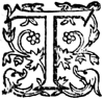
This poem, subscribed M. T. (perhaps invertedly for T. Marshall[570]) is preserved in The Paradise of Daintie Devises. The two first stanzas may be found accompanied with musical notes in "An howres recreation in musicke, &c. by Richard Alison, Lond. 1606, 4to." usually bound up with three or four sets of "Madrigals set to music by Tho. Weelkes, Lond. 1597, 1600, 1608, 4to." One of these madrigals is so compleat an example of the bathos, that I cannot forbear presenting it to the reader:—
Mr. Weelkes seems to have been of opinion, with many of his brethren of later times, that nonsense was best adapted to display the powers of musical composure.
[Percy's conjecture that the author is Marshall is not a happy one. Sir Egerton Brydges, in his edition of the Paradise, 1810 (British Bibliographer, vol. iii.), attributes it to M. Thorn, whose name is signed to another poem, numbered 52:—
written in much the same spirit. The heading to the Sturdy Rock is:—
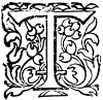
[570] Vid. Athen. Oxon. pp. 152, 316.
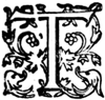
This popular old ballad was written in the reign of Elizabeth, as appears not only from ver. 23, where the arms of England are called the "Queenes armes;" but from its tune's being quoted in other old pieces, written in her time. See the ballad on Mary Ambree in this volume. The late Mr. Guthrie assured the editor that he had formerly seen another old song on the same subject, composed in a different measure from this; which was truly beautiful, if we may judge from the only stanza he remembered. In this it was said of the old beggar, that "down his neck
The following ballad is chiefly given from the Editor's folio MS. compared with two ancient printed copies: the concluding stanzas, which contain the old beggar's discovery of himself, are not however given from any of these, being very different from those of the vulgar ballad. Nor yet does the Editor offer them as genuine, but as a modern attempt to remove the absurdities and inconsistencies, which so remarkably prevailed in this part of the song, as it stood before: whereas by the alteration of a few lines, the story is rendered much more affecting, and is reconciled to probability and true history. For this informs us, that at the decisive battle of Evesham (fought Aug. 4, 1265), when Simon de Montfort, the great Earl of Leicester, was slain at the head of the barons, his eldest son Henry fell by his side, and in consequence of that defeat, his whole family sunk for ever, the king bestowing their great honours and possessions on his second son, Edmund earl of Lancaster.
[This charming old ballad has enjoyed a long life of popularity, and according to Mr. Chappell it is still kept in print in Seven Dials, and sung about the country. As it is to be found in most collections, it has not been thought necessary to take note of the[Pg 174] various trifling alterations which Percy made, but the six stanzas which he ejected in favour of the eight between brackets are printed at the end. A few of the alterations are improvements, but most of them are the reverse; thus, in place of the received reading of verse 28,
Percy prints
Mr. John Pickford (Notes and Queries, 4th Series, vol. ix. p. 64) once possessed an old mezzotint engraving of the Blind Beggar of a large folio size, on the margin of which were inscribed the lines referred to above. In Robert Greene's Pandosto (1588), from which Shakspere drew the plot of his Winter's Tale, there is the same simile as is used in these verses. Egistus says:—"Thou seest my white hayres are blossomes for the grave."
Pepys in his Diary (25th June, 1663), speaks of going to dinner with Sir William and Lady Batten and Sir J. Minnes to Sir William Ryder's at Bethnall Green, and adds: "This very house was built by the blind beggar of Bednall Green, so much talked of and sang in ballads, but they say it was only some outhouse of it." The mansion was built by John Kirby, a citizen of London, in the reign of Queen Elizabeth, and afterwards became the residence of Sir Hugh Platt, author of The Jewell House of Art and Nature, 1594; The Garden of Eden, &c. Ryder died there in 1669.]
Part the First.

Part the Second.
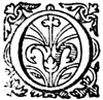
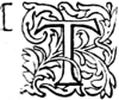
[The following stanzas (ll. 217-240 of the whole ballad), were rejected by Percy in favour of the verses above which are between brackets, and were written by Robert Dodsley, the bookseller and author:—
†‡† The word fit for part, often occurs in our ancient ballads and metrical romances: which being divided into several parts for the convenience of singing them at public entertainments, were in the intervals of the feast sung by fits, or intermissions. So Puttenham in his Art of English Poesie, 1589, says: "the Epithalamie was divided by breaches into three partes to serve for three several fits, or times to be sung." P. 41.
From the same writer we learn some curious particulars relative to the state of ballad-singing in that age, that will throw light on the present subject: speaking of the quick returns of one manner of tune in the short measures used by common rhymers; these, he says, "glut the eare, unless it be in small and popular musickes, sung by these Cantabanqui, upon benches and barrels heads, where they have none other audience then boys or countrey fellowes, that passe by them in the streete; or else by blind harpers, or such like taverne minstrels, that give a fit of mirth for a groat, ... their matter being for the most part stories of old time, as the tale of Sir Topas, the reportes of Bevis of Southampton, Guy of Warwicke, Adam Bell and Clymme of the Clough, and such other old romances or historical rimes, made purposely for recreation of the common people at Christmasse dinners and brideales, and in tavernes and alehouses, and such other places of base resorte." P. 69.
This species of entertainment, which seems to have been handed down from the ancient bards, was in the time of Puttenham [Pg 185]falling into neglect; but that it was not, even then, wholly excluded from more genteel assemblies, he gives us room to infer from another passage: "We ourselves," says this courtly[577] writer, "have written for pleasure a little brief romance, or historical ditty in the English tong of the Isle of Great Britaine in short and long meetres, and by breaches or divisions (i.e. fits), to be more commodiously sung to the harpe in places of assembly, where the company shal be desirous to heare of old adventures, and valiaunces of noble knights in times past, as are those of King Arthur and his Knights of the Round Table, Sir Bevys of Southampton, Guy of Warwicke, and others like." P. 33.
In more ancient times no grand scene of festivity was compleat without one of these reciters to entertain the company with feats of arms, and tales of knighthood, or, as one of these old minstrels says, in the beginning of an ancient romance on Guy and Colbronde, in the Editor's folio MS. p. 349 [ed. Hales and Furnivall, vol. ii., p. 527]:
If we consider that a groat in the age of Elizabeth was more than equivalent to a shilling now, we shall find that the old harpers were even then, when their art was on the decline, upon a far more reputable footing than the ballad-singers of our time. The reciting of one such ballad as this of the Beggar of Bednal Green, in two parts, was rewarded with half-a-crown of our money. And that they made a very respectable appearance, we may learn from the dress of the old beggar, in the preceding ballad, p. 178, where he comes into company in the habit and character of one of these minstrels, being not known to be the bride's father till after her speech, ver. 63. The exordium of his song, and his claiming a groat for his reward, v. 76, are peculiarly characteristic of that profession. Most of the old ballads begin in a pompous manner, in order to captivate the attention of the audience, and induce them to purchase a recital of the song: and they seldom conclude the first part without large promises of still [Pg 186]greater entertainment in the second. This was a necessary piece of art to incline the hearers to be at the expense of a second groat's-worth. Many of the old romances extend to eight or nine fits, which would afford a considerable profit to the reciter.
To return to the word fit; it seems at one time to have peculiarly signified the pause, or breathing-time, between the several parts (answering to Passus in the Visions of Pierce Plowman): thus in the ancient ballad of Chevy-Chase (vol. i. p. 27), the first part ends with this line:
i.e. here I come to the first pause or intermission. (See also vol. i. p. 44.) By degrees it came to signify the whole part or division preceding the pause. (See vol. i. pp. 162, 169.) This sense it had obtained so early as the time of Chaucer; who thus concludes the first part of his rhyme of Sir Thopas (writ in ridicule of the old ballad romances):—
The word fit indeed appears originally to have signified a poetic strain, verse, or poem; for in these senses it is used by the Anglo-Saxon writers. Thus K. Ælfred in his Boethius, having given a version of lib. 3, metr. 5, adds, Ða ꞅe pιꞅꝺom þa þaꞅ ꝼιꞇꞇe aꞅunȝen hæꝼꝺe, p. 65, i.e. "When wisdom had sung these (Fitts) verses." And in the proem to the same book, Fon on ꝼιꞇꞇe, "Put into (fitt) verse." So in Cedmon, p. 45. Feonꝺ on ꝼιꞇꞇe, seems to mean "composed a song," or "poem." The reader will trace this old Saxon phrase, in the application of the word fond, in the foregoing passage of Chaucer.
Spencer has used the word fit to denote "a strain of music;" see his poem, intitled, Collin Clout's come home again, where he says:—
It is also used in the old ballad of K. Estmere, vol. i. book 1, No. 6, v. 243.
From being applied to music, this word was easily transferred to dancing; thus in the old play of Lusty Juventus (described in preliminary note to book 2, No. 1 in this volume), Juventus says:
And from being used as a part or division in a ballad, poem, &c. it is applied by Bale to a section or chapter in a book (though I believe in a sense of ridicule or sarcasm), for thus he intitles two chapters of his English Votaryes, part 2nd, viz. fol. 49, "The fyrst fytt of Anselme with Kynge Wyllyam Rufus;" fol. 50, "An other Fytt of Anselme with kynge Wyllyam Rufus."
[571] In the Editor's folio MS. it is £500.
[572] See an essay on the word fit at the end of the second part.
[573] So the folio MS.
[574] The battle of Evesham was fought on August 4, 1265.
[575] [This stanza is not in the ordinary versions.]
[576] [Bessie of Bednall, Percy folio MS., ed. Hales and Furnivall, vol. ii. p. 279.]
[577] He was one of Q. Elizabeth's gent. pensioners, at a time when the whole band consisted of men of distinguished birth and fortune. Vid. Ath. Ox.
[578] Perhaps "blythe."
By the Earl of Oxford.
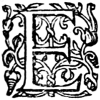
Edward Vere, Earl of Oxford, was in high fame for his poetical talents in the reign of Elizabeth; perhaps it is no injury to his reputation that few of his compositions are preserved for the inspection of impartial posterity. To gratify curiosity, we have inserted a sonnet of his, which is quoted with great encomiums for its "excellencie and wit," in Puttenham's Arte of Eng. Poesie,[579] and found intire in the Garland of Good-will. A few more of his sonnets (distinguished by the initial letters E. O.), may be seen in the Paradise of Daintie Devises. One of these is intitled The Complaint of a Lover, wearing blacke and tawnie. The only lines in it worth notice are these:—
We find in Hall's Chronicle, that when Q. Catharine of Arragon dyed, Jan. 8, 1536, "Queen Anne (Bullen) ware yellowe for the mourning." And when this unfortunate princess lost her head, May 19, the same year, "on the ascencion day following, the kyng for mourning ware whyte." Fol. 227, 228.
Edward, who was the seventeenth earl of Oxford, of the family [Pg 188]of Vere, succeeded his father in his title and honours in 1563, and died an aged man in 1604. See Mr. Walpole's Noble Authors. Athen. Oxon, &c.
[Walpole was in error when he stated that Lord Oxford died an aged man, for that nobleman was only about sixty at the time of his death. Sir Egerton Brydges points out in his edition of the Paradise of Dainty Devices (British Bibliographer, vol. iii.), that the earl could not have been born earlier than 1540 or 1541, because his elder half-sister Katherine, widow of Edward, Lord Windsor, died in January, 1599, aged 60. The chief events of his life are these. In 1585 he was the chief of those who embarked with the Earl of Leicester for the relief of the states of Holland and Zealand. In 1586 he sat as Lord Great Chamberlain of England on the trial of Mary, Queen of Scots. In 1588 he hired and fitted out ships at his own charge against the Spanish Armada. In 1589 he sat on the trial of Philip Howard, Earl of Arundel, and in 1601 on the trials of the Earls of Essex and Southampton. His private character was far from good, and his honour was tarnished by his dispute with Sir Philip Sidney. He used his first wife (a daughter of the great Burleigh) cruelly, in revenge for the statesman's treatment of his great friend, Thomas, Duke of Norfolk. In his early youth he travelled in Italy, and returned from that country a finished coxcomb, bringing home with him Italian dresses, perfumes, and embroidered gloves. He presented a pair of the latter to Queen Elizabeth, who was so pleased with them that she was drawn with them on her hands. The earl was buried at Hackney, on the 6th of July, 1604.
Percy might have spared rather more praise for this pretty little poem.]
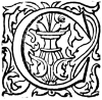
[579] Lond. 1589, p. 172.
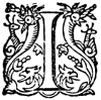
I cannot give a better relation of the fact which is the subject of the following ballad, than in an extract from the late Mr. Guthrie's Peerage,[580] which was begun upon a very elegant plan, but never finished. Vol. i. 4to. p. 22.
"The transaction which did the greatest honour to the earl of Surrey[581] and his family at this time (A.D. 1511), was their behaviour in the case of Barton, a Scotch sea-officer. This gentleman's father having suffered by sea from the Portuguese, he had obtained letters of marque for his two sons to make reprisals upon the subjects of Portugal. It is extremely probable, that the court of Scotland granted these letters with no very honest intention. The council board of England, at which the earl of Surrey held the chief place, was daily pestered with complaints from the sailors and merchants, that Barton, who was called Sir Andrew Barton, under pretence of searching for Portuguese goods, interrupted the English navigation. Henry's situation at that time rendered him backward from breaking with Scotland, so that their complaints were but coldly received. The earl of Surrey, however, could not smother his indignation, but gallantly declared at the council board, that while he had an estate that could furnish out a ship, or a son that was capable of commanding one, the narrow seas should not be infested.
"Sir Andrew Barton, who commanded the two Scotch ships, had the reputation of being one of the ablest sea officers of his time. By his depredations, he had amassed great wealth, and his ships were very richly laden. Henry, notwithstanding his situation, could not refuse the generous offer made by the earl of Surrey. Two ships were immediately fitted out, and put to sea with letters of marque, under his two sons, Sir Thomas[582] and Sir Edward Howard. After encountering a great deal of foul weather, [Pg 191]Sir Thomas came up with the 'Lion,' which was commanded by Sir Andrew Barton in person; and Sir Edward came up with the 'Union,' Barton's other ship (called by Hall, the 'Bark of Scotland.') The engagement which ensued was extremely obstinate on both sides; but at last the fortune of the Howards prevailed. Sir Andrew was killed fighting bravely, and encouraging his men with his whistle, to hold out to the last; and the two Scotch ships with their crews, were carried into the river Thames. (Aug. 2, 1511.)
"This exploit had the more merit, as the two English commanders were in a manner volunteers in the service, by their father's order. But it seems to have laid the foundation of Sir Edward's fortune; for, on the 7th of April, 1512, the king constituted him (according to Dugdale) admiral of England, Wales, &c.
"King James 'insisted' upon satisfaction for the death of Barton, and capture of his ship: tho' Henry had generously dismissed the crews, and even agreed that the parties accused might appear in his courts of admiralty by their attornies, to vindicate themselves." This affair was in a great measure the cause of the battle of Flodden, in which James IV. lost his life.
In the following ballad will be found perhaps some few deviations from the truth of history; to atone for which it has probably recorded many lesser facts, which history hath not condescended to relate. I take many of the little circumstances of the story to be real, because I find one of the most unlikely to be not very remote from the truth. In pt. 2, v. 156, it is said, that England had before "but two ships of war." Now the "Great Harry" had been built only seven years before, viz. in 1504: which "was properly speaking the first ship in the English navy. Before this period, when the prince wanted a fleet, he had no other expedient but hiring ships from the merchants."—Hume.
This ballad, which appears to have been written in the reign of Elizabeth, has received great improvements from the Editor's folio MS. wherein was an ancient copy, which, though very incorrect, seemed in many respects superior to the common ballad; the latter being evidently modernized and abridged from it. The following text is, however, in some places amended and improved by the latter (chiefly from a black-letter copy in the Pepys collection), as also by conjecture.
[There is little to be added to the above preface, but those who wish to read the Scottish version will find John Lesley's (Bishop of Ross) account of the affair (Historie of Scotland, 1436-1561), quoted in Mr. Furnivall's full preface to the ballad in the folio MS. (vol. iii. p. 399). Percy fully explains how he made up his copy.[Pg 192] There is, in fact, hardly a line that has not been altered, and the notes at the foot of the page give the reader no idea of the changes that have been made. To have noted all the differences would have loaded the page unnecessarily, and therefore in consideration of the interest of the ballad, a reprint of the folio copy has been added, although there are several printed copies. It is difficult to understand what could have induced Percy to reject the pretty lines:
for the incongruous opening of Flora with her flowers, and Neptune with his showers. The greatest alterations are in vv. 33-40, 129-136; part 2, vv. 1-8, 17-64, 89-94, 113-120, 145-176.]
The First Part.

The Second Part.
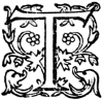
⁂
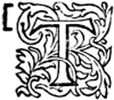
[The following version is reprinted from Hales and Furnivall's edition of the folio MS., vol. iii. p. 403:—
ffinis.]
[580] [Copied literally from Lord Herbert's (of Cherbury) History of Henry VIII., p. 116.]
[581] Thomas Howard, afterwards created Duke of Norfolk.
[582] Called by old historians lord Howard, afterwards created earl of Surrey in his father's lifetime. He was father of the poetical earl of Surrey.
[583] From the pr. copy.
[584] Ver. 15, 83. robber, MS.
[585] Ver. 29. lord Charles Howard, MS.
[586] An old Eng. word for breadth.
[587] Pr. copy.
[588] Mr. Lambe, in his notes to the poem on the Battle of Flodden Field, contends that this expert bowman's name was not Horseley, but Hustler, of a family long seated near Stockton, in Cleveland, Yorkshire. Vid. p. 5.
[589] Ver. 70. Journey, MS.
[590] Ver. 91. The MS. has here Archborde, but in pt. ii. ver. 5 Hachebord: [= ship or side of the ship.]
[591] [richly fitted out.]
[592] It should seem from hence, that before our marine artillery was brought to its present perfection, some naval commanders had recourse to instruments or machines, similar in use, though perhaps unlike in construction, to the heavy dolphins made of lead or iron used by the ancient Greeks; which they suspended from beams or yards fastened to the masts, and which they precipitately let fall on the enemies ships, in order to sink them, by beating holes through the bottoms of their undecked triremes, or otherwise damaging them. These are mentioned by Thucydides, lib. vii. p. 256, ed. 1564, folio, and are more fully explained in Schefferi de Militiâ Navali, lib. ii. cap. v. p. 136, ed. 1653, 4to.
N.B. It everywhere in the MS. seems to be written "beanes."
[593] Ver. 5. "hached with gold," MS.
[594] [flags.]
[595] i.e. did not salute.
[596] Ver. 35. i.e. discharged chain-shot.
[597] Ver. 67. 84 pounds, MS.
[598] [climbed.]
[599] V. 75. bearinge, sc. that carries well, &c.
[600] [shoulder.]
[601] [For a reference to whistles used by naval commanders, see Statute of apparel, 24 Hen. VIII. c. 13 (Anstis's Order of the Garter, vol. ii. p. 121.)]
[602] Ver. 175, 6.... Erle of Nottingham, And soe was never, &c., MS.
A Scottish Song.
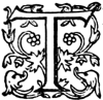
The subject of this pathetic ballad the Editor once thought might possibly relate to the Earl of Bothwell, and his desertion of his wife Lady Jean Gordon, to make room for his marriage with the Queen of Scots.
But this opinion he now believes to be groundless; indeed Earl Bothwell's age, who was upwards of 60 at the time of that marriage, renders it unlikely that he should be the object of so warm a passion as this elegy supposes. He has been since informed, that it entirely refers to a private story: A young lady of the name of Bothwell, or rather Boswell, having been, together with her child, deserted by her husband or lover, composed these affecting lines herself; which here are given from a copy in the Editor's folio MS. corrected by another in Allan Ramsay's Miscellany.
[The young lady alluded to above has since been set aside for the Hon. Anne Bothwell, daughter of Adam Bothwell, Bishop of Orkney. Mr. James Maidment, in his elegant edition of Scottish Ballads and Songs (vol. ii. 1868), writes: "The late Charles Kirkpatrick Sharpe, Esquire, whose knowledge of antiquated scandal was extraordinary, found in a MS. history of the family of Bothwell by Father Hay, that Adam Bothwell, Bishop of Orkney, had a daughter named 'Anne, who fell with child to a son of the Earl of Marre.'" Anne was the sister of the first Lord Holyroodhouse (created in 1607), and her seducer was Alexander, third son of John, seventh Earl of Mar, a cousin of her own, considered one of the handsomest men of his day. This is all very well for conjecture, but it is nothing more. The ballad does not appear to have been associated with a Bothwell, or in fact with any named person, until more than a century after it was written. In the Folio MS. it is simply called Balowe, and Percy therefore might well have hesitated before he gave it the heading he has, and before he Scotticised all the English words. The four earliest versions are in the following books: 1. Richard Brome's Comedy of the Northern Lass, or the Nest of Fools, printed in 1632, but acted somewhat earlier; 2. Percy Folio; 3. Pinkerton's MS. (1625-49), in the possession of David Laing; 4. John Gamble's MS., 1649;[Pg 212] 5. Elizabeth Rogers' MS., 1658. Mr. Chappell drew up the following very valuable note for the edition of the Percy Folio (vol. iii. p. 518), which puts the matter very clearly:—
"Baloo is a sixteenth-century ballad, not a seventeenth. It is alluded to by several of our early dramatists, and the tune is to be found in an early Elizabethan MS. known as William Ballet's Lute Book, as well as in Morley's Consort Lessons, printed in 1599. The words and tune are together in John Gamble's Music Book, a MS. in the possession of Dr. Rimbault, (date 1649,) and in Elizabeth Rogers's Virginal Book, in the library of the British Museum (Addit. MS. 10,337). The last is dated 1658, but the copy may have been taken some few years after. Baloo was so popular a subject that it was printed as a street ballad, with additional stanzas, just as 'My lodging it is on the cold ground' and other popular songs were lengthened for the same purpose. It has been reprinted in that form by Evans, in his Old Ballads, Historical and Narrative, edit. 1810, vol. i. p. 259. The title is 'The New Balow; or A Wenches Lamentation for the loss of her Sweetheart: he having left her a babe to play with, being the fruits of her folly.' The particular honour of having been the 'wench' in question was first claimed for 'Lady Anne Bothwell' in Part iii. of Comic and Serious Scots Poems, published by Watson in Edinburgh in 1711. Since that date Scotch antiquaries have been very busy in searching into the scandalous history of the Bothwell family, to find out which of the Lady Annes might have been halla-balooing.
"May we not release the whole race from this imputation? The sole authority for the charge is Watson's Collection! the same book that ascribes to the unfortunate Montrose the song of 'My dear and only love, take heed,' and tacks it as a second part to his 'My dear and only love, I pray.' Shade of Montrose! how must you be ashamed of your over-zealous advocate! Let us examine whether the spirit of 'Lady Anne Bothwel' has more reason to be grateful. Among the stanzas ascribed to her by Watson are the two following, which are not to be found in any English copy:—
"In the second we find the inducement supposed to have been offered by Lady Anne's lover:
"Comment is unnecessary. Can any one believe that such lines were written by or for any lady of rank? Yet they were copied as Lady Anne's by Allan Ramsay, and polished in his usual style. They have been polished and repolished by subsequent editors, but to little avail, for they remain great blots upon a good English ballad. There is not a Scotch word, nor even one peculiar to the North of England, in the whole of Watson's version."
This attempt to dispute the Scottish origin of the ballad is strongly resented by the editor of the Ballad Minstrelsy of Scotland, Glasgow, 1871. At all events the fact remains that the title "Lady Anne Bothwell's Balow" cannot be traced farther back than Watson's Collection, published in 1711.]
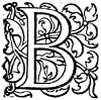
[603] [hush.]
[604] [moaning.]
[605] When sugar was first imported into Europe, it was a very great dainty; and therefore the epithet sugred is used by all our old writers metaphorically to express extreme and delicate sweetness. (See above, No. XI. v. 10.) Sugar at present is cheap and common; and therefore suggests now a coarse and vulgar idea.
[606] [cursing.]
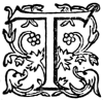
The catastrophe of Henry Stewart, lord Darnley, the unfortunate husband of Mary Q. of Scots, is the subject of this ballad. It is here related in that partial, imperfect manner in which such an event would naturally strike the subjects of another kingdom, of which he was a native. Henry appears to have been a vain, capricious, worthless young man, of weak understanding, and dissolute morals. But the beauty of his person, and the inexperience of his youth, would dispose mankind to treat him with an indulgence, which the cruelty of his murder would afterwards convert into the most tender pity and regret: and then imagination would not fail to adorn his memory with all those virtues he ought to have possessed. This will account for the extravagant elogium bestowed upon him in the first stanza, &c.
Henry lord Darnley was eldest son of the earl of Lennox, by the lady Margaret Douglas, niece of Henry VIII. and daughter of Margaret queen of Scotland by the earl of Angus, whom that princess married after the death of James IV.—Darnley, who had been born and educated in England, was but in his 21st year, when he was murdered, Feb. 9, 1567-8. This crime was perpetrated by the E. of Bothwell, not out of respect to the memory of Riccio, but in order to pave the way for his own marriage with the queen.
This ballad (printed, with a few corrections, from the Editor's folio MS.) seems to have been written soon after Mary's escape into England in 1568, see v. 65.—It will be remembered at v. 5, that this princess was Q. dowager of France, having been first married to Francis II. who died Dec. 4, 1560.
[In the above note Percy takes the ordinary unfavourable view of Darnley's character, which is not entirely borne out by contemporary evidence. Darnley was unfortunate both in having all Mary's friends as his enemies and in having no supporters among her opponents because he was a Roman Catholic. It is not fair to dispose of such a ballad as the present with the inference that the writer could know nothing of Darnley's character. It does not stand alone, and it appears from the broadsides that circulated through the country after his murder that the people had a real liking for him although he had been amongst them only a couple of years. Robert Lekprevik, the most celebrated Edinburgh printer of his time, printed in 1567, The Testament and Tragedie of umquhile King Henrie Stewart of gude memorie, a powerful poem, which discovers clearly the popular feeling against Mary. Mr. Froude also found one of these ballads among the Scottish State Papers, in which curses are heaped upon Mary, who is called Dalila, Clytemnestra and Semiramis for her murder of "ane bonny boy." One of the verses is as follows:—
If the circumstances of the English ballad are related in a partial and imperfect manner, what shall we say of the much more severe tone of those written in Scotland. Mr. Maidment[607] has gathered together a few facts that show how much may be said in favour of the unfortunate prince. It appears from Colville's Historie and Life of King James the sext, that Secretary Maitland inflamed Darnley's mind with the insinuation that Rizzio was too intimate with the queen. The criminal familiarity of her majesty with Rizzio appears to have been generally suspected, so that Darnley's conduct was that of a jealous husband who was fascinated with his wife. Colville gives the following portrait of him:—"He was a cumlie Prince, of a fayre and large stature of bodie, pleasant in countenance and affable to all men and devote, weill excercesit in martiall pastymis uponn horsback as ony prince of that age, bot was sa facile as he could concele no secreit although it myght tend to his awin weill."[608]
He was certainly accomplished and had been carefully educated. [Pg 217]He wrote a little tale called Utopia Nova when he was between eight and nine years of age, which he presented to his cousin, Mary Tudor. The queen in return presented him with a gold chain, which he acknowledged in a letter remarkable for the extreme beauty of its caligraphy. He also completed a translation into English of Valerius Maximus. Mr. Froude severely condemns the character of Darnley in the following terms: "He was at once meddlesome and incapable, weak and cowardly, yet insolent and unmanageable," and adds that Randolph described him as "a conceited, arrogant, intolerant fool." Nevertheless "the death of the husband of the Queen of Scots belongs to that rare class of incidents which, like the murder of Cæsar, have touched the interests of the entire educated world. Perhaps there is no single recorded act, arising merely out of private or personal passions, of which the public consequences have been so considerable."[609]
Darnley was the second son of the Earl and Countess of Lennox, and not, as stated above, by Percy, the eldest. Their first-born died on the 28th of November, 1545, nine months after his birth.
The following ballad is entitled Earle Bodwell in the Folio MS. (ed. Hales and Furnivall, vol. ii. p. 260). In the first three editions of the Reliques there were more alterations from the MS. than in the fourth, for in the latter Percy restored several of the old readings. The retained alterations are judicious, and no more than the Editor might well feel himself justified in making.]
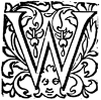
[607] James Maidment's Scottish Ballads and Songs, 1868, vol. ii. p. 12.
[608] Quoted in Maidment's Ballads, 1868, vol. ii. p. 8.
[609] [Froude's History of England (Elizabeth), vol. iii. pp. 1-2.]
[610] [Ver. 1. woe worth thee, woe worth thee, MS.]
[611] [V. 2. by a sleight.]
[612] [V. 3. for the worthyest.]
[613] [V. 8. wold marry him.]
[614] [Ver. 9. it is a pleasant.]
[615] V. 15. sic MS.
[616] [V. 16. chamberlaine unto.]
[617] [V. 17. ffor if the king.]
[618] [V. 18. have sitt him.]
[619] [V. 21. wonderous wroth.]
[620] [V. 24. all att once.]
[621] [V. 25. when this queen see the chamberlaine.]
[622] [V. 26. her cheeks.]
[623] [V. 27. vow for a 12 month.]
[624] [V. 29. Lords of Scottland waxed.]
[625] [V. 32. the king himselfe he shall dye.]
[626] [V. 33. they strowed his chamber over with gun-powder.]
[627] [V. 35. that night.]
[628] [V. 36. the worthye.]
[629] [ready.]
[630] [Ver. 37. the worthy king made.]
[631] [V. 38. that was his desire.]
[632] [leapt.]
[633] [V. 41. and a glasse window broke.]
[634] [V. 42. he had 30 foote for to ffall.]
[635] [V. 45. sayd Lord Bodwell.]
[636] [V. 46. answer me, now I doe call.]
[637] [V. 48. some pitty show for his sweet sake.]
[638] [V. 49, 50. these two lines are not in the MS., but are here introduced to equalize the stanzas.]
[639] [V. 54. Ile show to thee.]
[640] [V. 55. As thou had on the.]
[641] [doomedst.]
[642] Pronounced after the northern manner dee.
[643] [V. 57. this king.]
[644] [V. 58. through castles and towers that were hye.]
[645] [V. 60. and there hanged him in a peare tree.]
[646] [Ver. 61. Scottland he heard tell.]
[647] [V. 62. that the worthye king he was slaine.]
[648] [V. 64. he hath banished the queene.]
[649] [V. 66. and Scottland to aside hath laine.]
[650] [V. 67. good grace.]
[651] [V. 68. now in England, MS.]
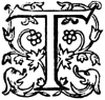
The following lines, if they display no rich vein of poetry, are yet so strongly characteristic of their great and spirited authoress, that the insertion of them will be pardoned. They are preserved in Puttenham's Arte of English Poesie; a book in which are many sly addresses to the queen's foible of shining as a poetess. The extraordinary manner in which these verses are introduced shews what kind of homage was exacted from the courtly writers of that age, viz.
"I find," says this antiquated critic, "none example in English metre, so well maintaining this figure [Exargasia, or the Gorgeous, Lat. Expolitio] as that dittie of her majesties owne making, passing sweete and harmonicall; which figure beyng as his very originall name purporteth the most bewtifull and gorgious of all others, it asketh in reason to be reserved for a last complement, and desciphred by a ladies penne herselfe beyng the most bewtifull, or rather bewtìe of queenes.[652] And this was the occasion: our soveraigne lady perceiving how the Scottish queenes residence within this realme at so great libertie and ease (as were skarce meete for so great and dangerous a prysoner) bred secret factions among her people, and made many of the nobilitie incline to favour her partie: some of them desirous of innovation in the state: others aspiring [Pg 221]to greater fortunes by her libertie and life. The queene our soveraigne ladie to declare that she was nothing ignorant of those secret practizes, though she had long with great wisdome and pacience dissembled it, writeth this dittie most sweete and sententious, not hiding from all such aspiring minds the daunger of their ambition and disloyaltie: which afterward fell out most truly by th' exemplary chastisement of sundry persons, who in fauour of the said Sc. Q. declining from her Maiestie, sought to interrupt the quiet of the Realme by many euill and vndutiful practizes." (p. 207.)
This sonnet was probably written in 1584, not long before Hen. Percy 8th E. of Northumberland was imprisoned on suspicion of plotting with F. Throckmorton, Tho. Lord Paget, and the Guises, for invading England, and liberating the Q. of Scots, &c. (See Collins's Peerage, 1779, ii. 405.) The original is written in long lines or alexandrines, each of which is here, on account of the narrowness of the page, subdivided into two: but her majesty's orthography, or at least that of her copyist, is exactly followed.
In the first edition of Harrington's Nugæ Antiquæ, 1st vol. 1769, 12mo. p. 58, is a copy of this poem, with great variations, the best of which are noted below. It is there accompanied with a very curious letter, in which this sonnet is said to be "of her Highness own enditing ... My Lady Willoughby did covertly get it on her Majesties tablet, and had much hazard in so doing; for the Queen did find out the thief, and chid for spreading evil bruit of her writing such toyes, when other matters did so occupy her employment at this time; and was fearful of being thought too lightly of for so doing." ***

†‡† I cannot help subjoining to the above sonnet another distich of Elizabeth's preserved by Puttenham (p. 197) "which (says he) our soveraigne lady wrote in defiance of fortune."
The slightest effusion of such a mind deserves attention.
[652] She was at this time near three-score.
[653] Ver. 1. dread, Harrington's ed.
[654] V. 6. subjects, Har.
[655] V. 7. should, Har.
[656] V. 8. wove, Har.
[657] Ver. 9. joys, Har.
[658] V. 11. raigne, Puttenham.
[659] Scil. the Queen of Scots.
[660] V. 22. That discorde aye, Har.
[661] V. 23. formor, Put.
[662] V. 27. realme brookes no seditious Sects, Har.
[663] V. 32. "such like" is supplied from Harrington's ed., in which are other variations, that seem meer mistakes of the transcriber or printer.
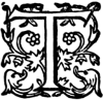
This ballad is a proof of the little intercourse that subsisted between the Scots and English, before the accession of James I. to the crown of England. The tale which is here so circumstantially related does not appear to have had the least foundation in history, but was probably built upon some confused hearsay report of the tumults in Scotland during the minority of that prince, and of the conspiracies formed by different factions to get possession of his person. It should seem from ver. 97 to have been written during the regency, or at least before the death, of the earl of Morton, who was condemned and executed June 2, 1581; when James was in his 15th year.
The original copy (preserved in the archives of the Antiquarian Society, London) is intitled, A new Ballad, declaring the great treason conspired against the young king of Scots, and how one Andrew Browne an Englishman, which was the king's chamberlaine, prevented the same. To the tune of Milfield, or els to Green-sleeves. At the end is subjoined the name of the author "W. Elderton. Imprinted at London for Yarathe James, dwelling in Newgate Market, over against Ch. Church," in black-letter, folio.
This Elderton, who had been originally an attorney in the sheriffs' courts of London, and afterwards (if we may believe Oldys) a comedian, was a facetious fuddling companion, whose tippling and rhymes rendered him famous among his contemporaries. He was author of many popular songs and ballads: and probably other pieces in these volumes, besides the following, are of his composing. He is believed to have fallen a victim to his bottle before the year 1592. His epitaph has been recorded by Camden, and translated by Oldys:—
See Stow's Lond. [Guild Hall].—Biog. Brit. [Drayton, by Oldys[Pg 224] Note B.] Ath. Ox.—Camden's Remains.—The Exale-tation of Ale, among Beaumont's Poems, 8vo. 1653.
[This ballad was licensed to Y. James on the 30th of May, 1581. Percy does not mention in the above note the fact that the ballad is included in the Folio MS., where it is entitled Bishoppe and Browne (ed. Hales and Furnivall, vol. ii. p. 265). It only consists of ten stanzas in place of fifteen, and two of them are incomplete. There is a sort of second part, probably also by Elderton, called King James and Brown, in the MS. (vol. i. p. 135), the villain of which is the same Douglas who is warned in the 98th verse of the present ballad to "take heede you do not offend the king."]
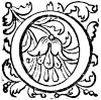
[664] Ver. 67. His father was Henry Lord Darnley. His grandfather the old Earl of Lenox, regent of Scotland, and father of Lord Darnley, was murdered at Stirling, Sept. 5, 1571.
[665] [banquet.]
[666] Q. Elizabeth.
A Scottish Song.

In December, 1591, Francis Stewart, Earl of Bothwell, had made an attempt to seize on the person of his sovereign James VI., but being disappointed, had retired towards the north. The king unadvisedly gave a commission to George Gordon Earl of Huntley, to pursue Bothwell and his followers with fire and sword. Huntley, under cover of executing that commission, took occasion to revenge a private quarrel he had against James Stewart Earl of Murray, a relation of Bothwell's. In the night of Feb. 7, 1592, he beset Murray's house, burnt it to the ground, and slew Murray himself; a young nobleman of the most promising virtues, and the very darling of the people. See Robertson's Hist.
The present Lord Murray hath now in his possession a picture of his ancestor naked and covered with wounds, which had been carried about, according to the custom of that age, in order to inflame the populace to revenge his death. If this picture did not flatter, he well deserved the name of the bonny Earl, for he is there represented as a tall and comely personage. It is a tradition in the family, that Gordon of Bucky gave him a wound in the face: Murray half expiring, said, "You hae spilt a better face than your awin." Upon this, Bucky pointing his dagger at Huntley's breast, swore, "You shall be as deep as I;" and forced him to pierce the poor defenceless body.
K. James, who took no care to punish the murtherers, is said by some to have privately countenanced and abetted them, being stimulated by jealousy for some indiscreet praises which his Queen had too lavishly bestowed on this unfortunate youth. See the preface to the next ballad. See also Mr. Walpole's Catalogue of Royal Auth. vol. i. p. 42.
[James Stewart, son of Sir James Stewart of Doune, acquired the earldom of Murray by his marriage with Elizabeth, eldest daughter and heiress of the Regent Murray. The earl was only twenty-one years of age at the time of his murder, which was perpetrated at Dinnibrissel, the seat of his mother, where he was on a visit. Doune Castle in Menteith is now in ruins, but it is[Pg 229] still the property of the family, and gives the title of Viscount to the eldest son of the Earl of Murray. The Earl of Huntley, instead of being punished for his crime, was created a marquis, and King James made the young earl of Murray marry the eldest daughter of his father's murderer.
There is another version of this ballad given in Finlay's Scottish Ballads (ii. 21), which commences—
The author of this seems to have supposed that Murray married a sister of Huntley.]

[667] Castle downe here has been thought to mean the Castle of Downe, a seat belonging to the family of Murray.
A Scottish Ballad.
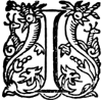
It has been suggested to the Editor, that this ballad covertly alludes to the indiscreet partiality, which Q. Anne of Denmark is said to have shewn for the bonny Earl of Murray; and which is supposed to have influenced the fate of that unhappy nobleman. Let the reader judge for himself.
The following account of the murder is given by a contemporary writer, and a person of credit, Sir James Balfour, knight, Lyon King of Arms, whose MS. of the Annals of Scotland is in the Advocates library at Edinburgh.
"The seventh of Febry, this yeire, 1592, the Earle of Murray was cruelly murthered by the Earle of Huntley at his house in Dunibrissel in Fyffe-shyre, and with him Dumbar, shriffe of Murray. It [was] given out and publickly talked, that the Earle of Huntley was only the instrument of perpetrating this facte, to satisfie the King's jealousie of Murray, quhum the Queine more rashely than wyslie, some few dayes before had commendit in the King's heiringe, with too many epithets of a proper and gallant man. The reasons of these surmises proceidit from proclamatione of the Kings, the 18 of Marche following; inhibiting the younge Earle of Murray to persue the Earle of Huntley, for his father's slaughter, in respect he being wardit [imprisoned] in the castell of Blacknesse for the same murther, was willing to abide his tryall, averring that he had done nothing bot by the King's [Pg 231]majesties commissione; and was neither airt nor part of the murther."[668]
The following ballad is here given from a copy printed not long since at Glasgow, in one sheet 8vo. The world was indebted for its publication to the lady Jean Hume, sister to the Earl of Hume, who died at Gibraltar [in 1761].
[Buchan, who printed a longer version of this ballad in thirty-nine stanzas, believed young Waters to have been David Graham of Fintray, who was found guilty of being concerned in a Popish plot, and beheaded on the 16th of February, 1592. Chambers supposed that the fate of some one of the Scottish nobles executed by James I. after his return from captivity in England is alluded to. The various conflicting conjectures are none of them very probable, and there is nothing in the ballad that would conclusively connect it with authentic Scottish history. Percy's suggestion is peculiarly unfortunate, as young Waters was publicly executed at Stirling. Mr. Maidment points out (Scottish Ballads and Songs, vol. i. p. 62) that the first edition appeared under the following title, Young Waters, an Ancient Scotish Poem, never before printed. Glasgow: printed and sold by Robert and Andrew Foulis, MDCCLV. sm. 4to. pp. 8; and he suggests that Lord Hailes was the editor of it.]
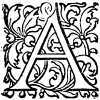
[668] [Vol. i. Edin. 1824.]
[669] [caparisoned with golden accoutrements.]
[670] Heiding-hill; i.e. heading [beheading] hill. The place of execution was anciently an artificial hillock.

In the year 1584, the Spaniards, under the command of Alexander Farnese, prince of Parma, began to gain great advantages in Flanders and Brabant, by recovering many strong holds and cities from the Hollanders, as Ghent, (called then by the English Gaunt,) Antwerp, Mechlin, &c. See Stow's Annals, p. 711. Some attempt made with the assistance of English volunteers to retrieve the former of those places probably gave occasion to this ballad. I can find no mention of our heroine in history, but the following rhymes rendered her famous among our poets. Ben Jonson often mentions her, [Pg 234]and calls any remarkable virago by her name. See his Epicœne, first acted in 1609, act iv. sc. 2. His Tale of a Tub, act i. sc. 2. And his masque intitled the Fortunate Isles, 1626, where he quotes the very words of the ballad,
She is also mentioned in Fletcher's Scornful Lady, act v. sub finem.
----"My large gentlewoman, my Mary Ambree, had I but seen into you, you should have had another bed-fellow."——
It is likewise evident, that she is the virago intended by Butler in Hudibras (p. i. c. iii. v. 365), by her being coupled with Joan d'Arc, the celebrated Pucelle d'Orleans.
This ballad is printed from a black letter copy in the Pepys Collection, improved from the Editor's folio MS. and by conjecture. The full title is, The valorous acts performed at Gaunt by the brave bonnie lass Mary Ambree, who in revenge of her lovers death did play her part most gallantly. The tune is, The blind beggar, &c.
[The copy from the MS., which is printed at the end, will be found to differ considerably from the following version.]

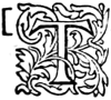
[The following version is reprinted from Hales and Furnivall's edition of the folio MS. vol. i. p. 516.
[671] So MS. Serjeant Major in PC.
[672] A peculiar kind of armour, composed of small rings of iron, and worn under the cloaths. It is mentioned by Spencer, who speaks of the Irish Gallowglass or Foot-soldier as "armed in a long Shirt of Mayl." (View of the State of Ireland.)
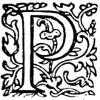
Peregrine Bertie, lord Willoughby of Eresby, had, in the year 1586, distinguished himself at the siege of Zutphen, in the Low Countries. He was the year after made general of the English forces in the United Provinces, in room of the earl of Leicester, who was recalled. This gave him an opportunity of signalizing his courage and military skill in several actions against the Spaniards. One of these, greatly exaggerated by popular report, is probably the subject of this old ballad, which, on account of its flattering encomiums on English valour, hath always been a favourite with the people.
"My lord Willoughbie (says a contemporary writer) was one of the queenes best swordsmen: ... he was a great master of the art military ... I have heard it spoken, that had he not slighted the court, but applied himself to the queene, he might have enjoyed a plentifull portion of her grace; and it was his saying, and it did him no good, that he was none of the Reptilia; intimating, that he could not creepe on the ground, and that the court was not his element; for indeed, as he was a great souldier, so he was of suitable magnanimitie, and could not brooke the obsequiousnesse and assiduitie of the courte." (Naunton.)
Lord Willoughbie died in 1601.—Both Norris and Turner were famous among the military men of that age.
The subject of this ballad (which is printed from an old black-letter copy, with some conjectural emendations,) may possibly receive illustration from what Chapman says in the Dedicat. to his version of Homer's Frogs and Mice, concerning the brave and memorable Retreat of Sir John Norris, with only 1000 men, thro' the whole Spanish army, under the duke of Parma, for three miles together.
[Lord Willoughby was the son of Katherine, daughter of Lord Willoughby of Eresby and widow of Charles Brandon, Duke of Suffolk, and of her second husband, Richard Bertie. They were protestants and were forced to fly from persecution in 1553, taking refuge first in the Low Countries and afterwards in Poland. They called their son in consequence Peregrine, a name that has ever since remained in the family. Mr. Hales has drawn my attention to the fact that Spenser, when in Ireland, named one of his sons Peregrine for a similar reason. A ballad was written entitled The Duchess of Suffolk's Calamity, which contains these lines:
Mr. Chappell informs us that the tune of the following ballad occurs in Lady Neville's Virginal Book (MS. 1591), and in Robinson's School of Music (1603), where it is called "Lord Willobie's Welcome Home."]
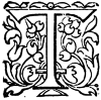
[673] [a large pistol or blunderbuss.]
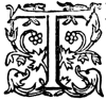
This little moral sonnet hath such a pointed application to the heroes of the foregoing and following ballads, that I cannot help placing it here, tho' the date of its composition is of a much later period. It is extracted from Cupid and Death, a masque by J. S. (James Shirley) presented Mar. 26, 1653. London printed 1653, 4to.
[Dr. Rimbault informs us that this masque was represented at the Military Ground in Leicester Fields, with music by Matthew Locke and Dr. Christopher Gibbons. (Musical Illustrations, p. 22.)]

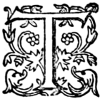
The subject of this ballad is the taking of the city of Cadiz, (called by our sailors corruptly Cales) on June 21, 1596, in a descent made on the coast of Spain, under the command of the Lord Howard admiral, and the earl of Essex general.
The valour of Essex was not more distinguished on this occasion than his generosity: the town was carried sword in hand, but he stopt the slaughter as soon as possible, and treated his prisoners with the greatest humanity, and even affability and kindness. The English made a rich plunder in the city, but missed of a much richer, by the resolution which the Duke of Medina, the Spanish admiral, took, of setting fire to the ships, in order to prevent their falling into the hands of the enemy [see v. 27]. It was computed, that the loss which the Spaniards sustained from this enterprize, amounted to twenty millions of ducats. See Hume's Hist.
The Earl of Essex knighted on this occasion not fewer than sixty persons, which gave rise to the following sarcasm:
The ballad is printed, with some corrections, from the Editor's folio MS. and seems to have been composed by some person, who was concerned in the expedition. Most of the circumstances related in it will be found supported by history.
[Philip II. was meditating the dispatch of a second armada, but before he could set his schemes in motion his strongest fortress was razed to the ground. Macaulay calls this "the most brilliant military exploit that was achieved on the continent by English arms during the long interval which elapsed between the battle of Agincourt and that of Blenheim." No wonder then that the English sang with enthusiasm of the glories of their success. Raleigh and Sir Francis Vere were among the leaders under Essex.
It will be seen by the foot notes that Percy follows his MS. original pretty faithfully. Child prints a version from Deloney's Garland of Goodwill as reprinted by the Percy Society (vol. xxx. p. 113). The earliest notice of the tune (the new Tantara) to which this ballad was to be sung is in the year 1590.]

[674] [Ver. 6. tantara, ra-ra, MS.]
[675] [V. 22. the before running not in MS.]
[676] [Ver. 35. brought them away, MS.]
[677] [V. 38. marched toward the town.]
[678] [V. 44. all not in MS.]
[679] [V. 45. no the in MS.]
[680] [V. 47. thought in vaine twas to fight.]
[681] [V. 48. and not in MS.]
[682] [V. 50. with our English.]
[683] [Ver. 54. baking in the oven.]
[684] [V. 55. meate att the fire rosting & ffolkes ffled away.]
[685] [V. 57. shop wee did see.]
[686] [V. 60. each one.]
[687] [V. 64. prisoners of good account were tooke.]
[688] [V. 65. they found.]
[689] [V. 67. delayed time.]
[690] [V. 70. a ffire were made.]
[691] [V. 72. away wee came.]
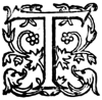
This beautiful old ballad most probably took its rise from one of these descents made on the Spanish coasts in the time of queen Elizabeth; and in all likelihood from that which is celebrated in the foregoing ballad.
It was a tradition in the West of England, that the person admired by the Spanish lady was a gentleman of the Popham family [Sir John Popham], and that her picture, with the pearl necklace mentioned in the ballad, was not many years ago preserved at Littlecot, near Hungerford, Wilts, the seat of that respectable family.
Another tradition hath pointed out Sir Richard Levison, of Trentham, in Staffordshire, as the subject of this ballad; who married Margaret daughter of Charles Earl of Nottingham; and was eminently distinguished as a naval officer and commander in all the expeditions against the Spaniards in the latter end of Q. Elizabeth's reign, particularly in that to Cadiz in 1596, when he was aged 27. He died in 1605, and has a monument, with his effigy in brass, in Wolverhampton church.
It is printed from an ancient black-letter copy, corrected in part by the Editor's folio MS.
[Sir John Popham and Sir Richard Levison are not the only candidates for the honour of being associated with the Spanish Lady, for strong claims have also been brought forward in favour of Sir Urias Legh of Adlington, Cheshire, and of Sir John Bolle of Thorpe Hall, Lincolnshire. A descendant of the latter worthy wrote a letter in his favour, which appeared in the Times of May 1, 1846, and from which the following particulars are extracted:—"In Illingworth's Topographical Account of Scampton, with Anecdotes of the family of Bolles, it is stated, 'the portrait of Sir John, drawn in 1596, at the age of thirty-six years, having on him the gold chain given him by the Spanish Lady, &c., is still in the possession of Captain Birch.' That portrait is now in the possession of Captain Birch's successor, Thomas Bosvile, Esq., of Ravensfield Park, Yorkshire." The writer of the letter signs himself Charles Lee, and dates from Coldrey, Hants. He adds another extract from Illingworth's Scampton, which is as follows: "On Sir John Bolle's departure from Cadiz, the Spanish Lady sent as presents to his wife, a profusion of jewels, and other[Pg 250] valuables, amongst which was her portrait, drawn in green, plate, money, and other treasure. Some articles are still in the possession of the family, though her picture was unfortunately and by accident, disposed of about half a century since. This portrait being drawn in green, gave occasion to her being called in the neighbourhood of Thorpe Hall, the Green Lady, where to this day there is a traditionary superstition among the vulgar that Thorpe Hall was haunted by the Green Lady, who used nightly to take her seat in a particular tree near the mansion."
Mr. Chappell points out that this ballad is quoted in Cupid's Whirligig, 1616, and parodied in Rowley's A Match at Midnight, 1633. It is also quoted in Mrs. Behn's Comedy, The Rovers, or the banished Cavaliers, and in Richard Brome's Northern Lasse.
Shenstone was not satisfied with the beautiful simplicity of this charming ballad, and attempted in his Moral Tale of Love and Honour to place it before his readers "in less grovelling accents than the simple guise of ancient record." The mode he adopted was to spin it out by the frequent introduction of Ah me and 'tis true, and addresses to the "generous maid," Elvira, Iberia, &c. Wordsworth acted far differently, when he founded his exquisite Armenian Lady's Love upon this ballad:
The copy in the folio MS. (ed. Hales and Furnivall, vol. iii. p. 393) begins with verse 33, the early part having been torn out.]

[692] [Ver. 54. whersoere thou go.]
[693] So the MS., 10,000l. PC.
[694] V. 65. Well in worth [I will], MS.
[695] [V. 66. find my heart.]
[696] [V. 68. that breakes.]
[697] [Ver. 75. many dayes of joy god send you.]
[698] [V. 76. Ile make.]
[699] [V. 77. upon my knees I pardon crave for this offence.]
[700] [V. 78. which love and true affectyon did ffirst commence.]
[701] [V. 80. a chaine.]
[702] [V. 83. take with thee.]
[703] [V. 84. these are ... and not for me.]
[704] So the folio MS. Other editions read his laws.
[705] [V. 88. from other.]
[706] [V. 92. and ffarwell my.]
[707] [V. 95. be still.]

Is extracted from an ancient historical poem in XIII. Books, intitled, Albion's England, by William Warner: "An author (says a former editor,) only unhappy in the choice of his subject, and measure of his verse. His poem is an epitome of the British history, and written with great learning, sense, and spirit. In some places fine to an extraordinary degree, as I think will eminently appear in the ensuing episode (of Argentile and Curan). A tale full of beautiful incidents in the romantic taste, extremely affecting, rich in ornament, wonderfully various in style; and in short, one of the most beautiful pastorals I ever met with." (Muses Library, 1738, 8vo.) To his merit nothing can be objected unless perhaps an affected quaintness in some of his expressions, and an indelicacy in some of his pastoral images.
Warner is said, by A. Wood,[708] to have been a Warwickshire man, and to have been educated in Oxford, at Magdalene-hall: as also in the latter part of his life to have been retained in the service of Henry Cary Lord Hunsdon, to whom he dedicates his poem. However that may have been, new light is thrown upon his history, and the time and manner of his death are now ascertained, by the following extract from the parish register book of Amwell, in Hertfordshire; which was obligingly communicated to the Editor by Mr. Hoole, the very ingenious translator of Tasso, &c.
(1608—1609.) "Master William Warner, a man of good yeares and of honest reputation; by his profession an Atturnye of the Common Pleas; author of Albions England, diynge suddenly in the night in his bedde, without any former complaynt or sicknesse, on thursday night beeinge the 9th daye of March; was buried the satturday following, and lyeth in the church at the corner under the stone of Walter Ffader." Signed Tho. Hassall Vicarius.
Though now Warner is so seldom mentioned, his contemporaries ranked him on a level with Spenser, and called them the Homer and Virgil of their age.[709] But Warner rather resembled Ovid, whose Metamorphoses he seems to have taken for his model, having deduced a perpetual poem from the deluge down to the æra of [Pg 255]Elizabeth, full of lively digressions and entertaining episodes. And though he is sometimes harsh, affected, and obscure, he often displays a most charming and pathetic simplicity: as where he describes Eleanor's harsh treatment of Rosamond:
The edition of Albion's England here followed was printed in 4to. 1602; said in the title-page to have been "first penned and published by William Warner, and now revised and newly enlarged by the same author." The story of Argentile and Curan is I believe the poet's own invention; it is not mentioned in any of our chronicles. It was however so much admired, that not many years after he published it, came out a larger poem on the same subject in stanzas of six lines, intitled, The most pleasant and delightful historie of Curan a prince of Danske, and the fayre princesse Argentile, daughter and heyre to Adelbright, sometime king of Northumberland, &c. by William Webster, London, 1617, in 8 sheets 4to. An indifferent paraphrase of the following poem.—This episode of Warner's has also been altered into the common ballad, of the two young Princes on Salisbury Plain, which is chiefly composed of Warner's lines, with a few contractions and interpolations, but all greatly for the worse. See the collection of Hist. Ballads, 1727, 3 vols. 12mo.
[Percy had already in the first volume quoted from Warner's poem the story of the Patient Countess.]
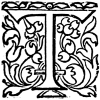
[708] Athen. Oxon.
[709] Ibid.
[710] [griping or miserly.]
[711] [Denmark.]
[712] [in confinement.]
[713] The construction is, "How that many an amorous toy, or foolery of love, 'scaped Curan;" i.e. escaped from him, being off his guard.
[714] [hinder.]
[715] [grounds.]
[716] Ver. 56. i.e. holy-day russets [or best clothes.]
[717] [buskins or half boots.]
[718] [used for anointing sores in sheep, &c.]
[719] [small beer.]
[720] [whey or buttermilk.]
[721] [slice.]
[722] [crab apples.]
[723] [victualling.]
[724] [crooked horned.]
[725] Ver. 68. Eating. PCC.
[726] [ram.]
[727] [public.]
[728] [nice or prudent.]
[729] V. 77. Her know I not her that. 1602.
[730] [blockhead.]
[731] Ver. 85. i.e. roasts a crab, or apple.
[732] V. 86. to tell, whilst round the bole doth trot. Ed. 1597.
[733] [female keeper of herds.]
[734] [middle sized.]
[735] [honey.]
[736] i.e. emblazon beauty's coat. Ed. 1597, 1602, 1612, read Coote.
[737] During the Saxon heptarchy, the kingdom of Northumberland (consisting of 6 northern counties, besides part of Scotland) was for a long time divided into two lesser sovereignties, viz. Deira (called here Diria) which contained the southern parts, and Bernicia, comprehending those which lay north.
[738] [This poem was subdivided into stanzas by Percy, and is so printed in previous editions of the Reliques.]

Only the three first stanzas of this song are ancient; these are extracted from a small quarto MS. in the Editor's possession, written in the time of Q. Elizabeth. As they seemed to want application, this has been attempted by a modern hand.

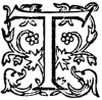
Though so many vulgar errors have prevailed concerning this celebrated courtezan, no character in history has been more perfectly handed down to us. We have her portrait drawn by two masterly pens; the one has delineated the features of her person, the other those of her character and story. Sir Thomas More drew from the life, and Drayton has copied an original picture of her. The reader will pardon the length of the quotations, as they serve to[Pg 266] correct many popular mistakes relating to her catastrophe. The first is from Sir Thomas More's History of Richard III. written in 1513, about thirty years after the death of Edw. IV.
"Now then by and by, as it wer for anger, not for covetise, the protector sent into the house of Shores wife (for her husband dwelled not with her) and spoiled her of al that ever she had, (above the value of 2 or 3 thousand marks) and sent her body to prison. And when he had a while laide unto her, for the maner sake, that she went about to bewitch him, and that she was of counsel with the lord chamberlein to destroy him: in conclusion when that no colour could fasten upon these matters, then he layd heinously to her charge the thing that herselfe could not deny, that al the world wist was true, and that natheles every man laughed at to here it then so sodainly so highly taken,—that she was naught of her body. And for thys cause (as a goodly continent prince, clene and fautless of himself, sent oute of heaven into this vicious world for the amendment of mens maners) he caused the bishop of London to put her to open pennance, going before the crosse in procession upon a sonday with a taper in her hand. In which she went in countenance and pace demure so womanly; and albeit she was out of al array save her kyrtle only, yet went she so fair and lovely, namelye, while the wondering of the people caste a comly rud in her chekes (of which she before had most misse) that her great shame wan her much praise among those that were more amorous of her body, then curious of her soule. And many good folke also, that hated her living, and glad wer to se sin corrected, yet pittied thei more her penance then rejoiced therin, when thei considred that the protector procured it more of a corrupt intent, then any virtuous affeccion.
"This woman was born in London, worshipfully frended, honestly brought up, and very wel maryed, saving somewhat too soone; her husbande an honest citizen, yonge, and goodly, and of good substance. But forasmuche as they were coupled ere she wer wel ripe, she not very fervently loved, for whom she never longed. Which was happely the thinge, that the more easily made her encline unto the king's appetite, when he required her. Howbeit the respect of his royaltie, the hope of gay apparel, ease, plesure, and other wanton welth, was able soone to perse a soft tender hearte. But when the king had abused her, anon her husband (as he was an honest man, and one that could his good, not presuming to touch a kinges concubine) left her up to him al together. When the king died, the lord chamberlen [Hastings] toke her:[739] which [Pg 267]in the kinges daies, albeit he was sore enamoured upon her, yet he forbare her, either for reverence, or for a certain friendly faithfulness.
"Proper she was, and faire: nothing in her body that you wold have changed, but if you would have wished her somewhat higher. Thus say thei that knew her in her youthe. Albeit some that now see her (for yet she liveth) deme her never to have bene wel visaged. Whose jugement seemeth me somewhat like, as though men should gesse the bewty of one longe before departed, by her scalpe taken out of the charnel-house; for now is she old, lene, withered, and dried up, nothing left but ryvilde skin, and hard bone. And yet being even such, whoso wel advise her visage, might gesse and devise which partes how filled, wold make it a fair face.
"Yet delited not men so much in her bewty, as in her pleasant behaviour. For a proper wit had she, and could both rede wel and write; mery in company, redy and quick of aunswer, neither mute nor ful of bable; sometime taunting without displeasure, and not without disport. The king would say, That he had three concubines, which in three divers properties diversly excelled. One the meriest, another the wiliest, the thirde the holiest harlot in his realme, as one whom no man could get out of the church lightly to any place, but it were to his bed. The other two wer somwhat greater personages, and natheles of their humilite content to be nameles, and to forbere the praise of those properties; but the meriest was the Shoris wife, in whom the king therfore toke [Pg 268]special pleasure. For many he had, but her he loved, whose favour, to sai the trouth (for sinne it wer to belie the devil) she never abused to any mans hurt, but to many a mans comfort and relief. Where the king toke displeasure, she would mitigate and appease his mind: where men were out of favour, she wold bring them in his grace: for many, that had highly offended, shee obtained pardon: of great forfeitures she gate men remission: and finally in many weighty sutes she stode many men in gret stede, either for none or very smal rewardes, and those rather gay than rich: either for that she was content with the dede selfe well done, or for that she delited to be sued unto, and to show what she was able to do wyth the king, or for that wanton women and welthy be not alway covetous.
"I doubt not some shal think this woman too sleight a thing to be written of, and set amonge the remembraunces of great matters: which thei shal specially think, that happely shal esteme her only by that thei now see her. But me semeth the chaunce so much the more worthy to be remembred, in how much she is now in the more beggerly condicion, unfrended and worne out of acquaintance, after good substance, after as grete favour with the prince, after as grete sute and seeking to with al those, that in those days had busynes to spede, as many other men were in their times, which be now famouse only by the infamy of their il dedes. Her doinges were not much lesse, albeit thei be muche lesse remembred because thei were not so evil. For men use, if they have an evil turne, to write it in marble; and whoso doth us a good tourne, we write it in duste.[740] Which is not worst proved by her; for at this daye shee beggeth of many at this daye living, that at this day had begged, if shee had not bene." See More's workes, folio, bl. let. 1557, pp. 56, 57.
Drayton has written a poetical epistle from this lady to her royal lover, and in his notes thereto he thus draws her portrait: "Her stature was meane, her haire of a dark yellow, her face round and full, her eye gray, delicate harmony being betwixt each part's proportion, and each proportion's colour, her body fat, white and smooth, her countenance cheerfull and like to her condition. The picture which I have seen of hers was such as she rose out of her bed in the [Pg 269]morning, having nothing on but a rich mantle cast under one arme over her shoulder, and sitting on a chaire, on which her naked arm did lie. What her father's name was, or where she was borne, is not certainly knowne: but Shore, a young man of right goodly person, wealth and behaviour, abandoned her bed after the king had made her his concubine. Richard III. causing her to do open penance in Paul's church-yard, commanded that no man should relieve her, which the tyrant did, not so much for his hatred to sinne, but that by making his brother's life odious, he might cover his horrible treasons the more cunningly." See England's Heroical Epistles, by Mich. Drayton, Esq; Lond. 1637, 12mo.
An original picture of Jane Shore almost naked is preserved in the Provost's Lodgings at Eton; and another picture of her is in the Provost's Lodge at King's College, Cambridge: to both which foundations she is supposed to have done friendly offices with Edward IV. A small quarto Mezzotinto print was taken from the former of these by J. Faber.
The history of Jane Shore receives new illustration from the following letter of K. Richard III. which is preserved in the Harl. MSS. Num. 433, Art. 2378, but of which the copy transmitted to the Editor has been reduced to modern orthography, &c. It is said to have been addressed to Russel bp. of Lincoln, lord chancellor, Anno 1484.
By the King.
"Right Reverend Father in God, &c. signifying unto you, that it is shewed unto us, that our Servant and Solicitor Thomas Lynom, marvellously blinded and abused with the late Wife of William Shore, now living in Ludgate by our commandment, hath made Contract of Matrimony with her, as it is said, and intendeth, to our full great marvel, to effect the same. WE, for many causes, would be sorry that he should be so disposed; pray you therefore to send for him, and in that ye goodly may, exhort, and stir him to the contrary: And if ye find him utterly set for to marry her, and none otherwise would be advertized, then, if it may stand with the laws of the church, we be content the time of marriage be deferred to our coming next to London; that upon sufficient Surety found of her good abearing, ye do so send for her Keeper, and discharge him of our said commandment, by Warrant of these, committing her to the rule, and guiding of her Father, or any other, by your direction, in the mean season. Given, &c.
"RIC. Rex."
It appears from two articles in the same MS. that K. Richard had granted to the said Thomas Linom the office of King's Solicitor (Art. 134.), and also the Manor of Colmeworth, com. Bedf. to him and his Heirs Male (Art. 596.)
The following ballad is printed (with some corrections) from an old black-letter copy in the Pepys collection. Its full title is, The woefull lamentation of Jane Shore, a goldsmith's wife in London, sometime king Edward IV. his concubine. To the tune of Live with me, &c. (See the first volume.) To every stanza is annexed the following burthen:
[The tale of Jane Shore's sufferings has found frequent narrators. The first known ballad upon her story was written by Thomas Churchyard (who died in 1604) and is included in the Mirror for Magistrates. The ballad here printed is attributed to Thomas Deloney, and was entered on the books of the Stationers' Company to William White, printer, on the 11th of June, 1603, but no copy of this edition is known to exist. Mr. Chappell remarks that no copy in any of the collections can be dated "earlier than Charles the Second's time, or at most than the Protectorate" (Roxburghe Ballads, vol. i. p. 479). It is printed in the Collection of Old Ballads, 1723 (vol. i. p. 145), and in the same collection is a burlesque song called King Edward and Jane Shore (vol. i. p. 153). The Roxburghe copy has a second part which Mr. Chappell says is "probably by another hand and of later date." Deloney has paid very little attention to facts, and many of his statements are groundless, for instance no one was hanged for succouring Jane (vv. 105-112), and instead of dying of hunger in a ditch (vv. 125-132), she survived her penance nearly fifty years. (She died in the 18th year of Henry VIII.'s reign.) Her husband is named Matthew Shore in verse 13, but we have the best authority for affirming that his true name was William. Richard III. followed Jane Shore with unrelenting hate, and not content with making her do penance, clapping her in prison and depriving her of all her property, which amounted to the value of 3000 marks, equal to about £20,000 of our present money, he prevented her from marrying a respectable man.
There is no date to the paper printed above, but as John Russell, D.D., Bishop of Lincoln, was Richard's Chancellor only from Nov. 1484 to July 1485, we can fix it pretty closely.
According to Mr. Nugent Bell, in his Huntingdon Peerage, the name of the father of Jane Shore was Thomas Wainstead. Granger says that the Duchess of Montagu had a lock of her hair which looked as if it had been powdered with gold dust. For further information, see Some Particulars of the Life of Jane Shore, by the Rev. Mark Noble, in Brayley's Graphic Illustrator, pp. 49-64.]
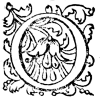
[739] After the death of Hastings, she was kept by the marquis of Dorset, son to Edward IV.'s queen. In Rymer's Fœdera is a proclamation of Richard's, dated at Leicester, Oct. 23, 1483, wherein a reward of 1000 marks in money, or 100 a year in land is offered for taking "Thomas late marquis of Dorset," who, "not having the fear of God, nor the salvation of his own soul, before his eyes, has damnably debauched and defiled many maids, widows, and wives, and lived in actual adultery with the wife of Shore." Buckingham was at that time in rebellion, but as Dorset was not with him, Richard could not accuse him of treason, and therefore made a handle of these pretended debaucheries to get him apprehended. Vide Rym. Fœd. tom. xij. pag. 204.
[The Rev. Mark Noble writes as follows of the charge made by Richard of Dorset's living in adultery with Jane Shore.—"It could not be before she was taken by Edward; it could not be during that king's life; it could not be afterwards, by Richard's own account, for by his proclamation she then was the mistress of Hastings to the night preceding his being put to death. It could not be after that catastrophe, for ever after then Richard kept her either in the Tower or in Ludgate a close prisoner."—Brayley's Graphic and Historical Illustrator, 1834, p. 55.]
[740] These words of Sir Thomas More probably suggested to Shakespeare that proverbial reflection in Hen. VIII. act iv. sc. 2.
Shakesp. in his play of Rich. III. follows More's Hist. of that reign, and therefore could not but see this passage.
[741] But it had this name long before; being so called from its being a common Sewer (vulgarly Shore) or drain. See Stow.
[Weever states that it was named from the Lord of the Manor. Sir John de Sordig was Ambassador from Edward III. to the Pope, to remonstrate with his Holiness on his claim to present foreigners to English livings.]
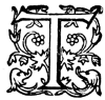
This little simple elegy is given, with some corrections, from two copies, one of which is in The golden garland of princely delights.
The burthen of the song, Ding Dong, &c. is at present appropriated to burlesque subjects, and therefore may excite only ludicrous ideas in a modern reader; but in the time of our poet it usually accompanied the most solemn and mournful strains. Of this kind is that fine aërial Dirge in Shakespear's Tempest:
I make no doubt but the poet intended to conclude the above air in a manner the most solemn and expressive of melancholy.
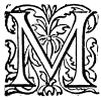
[742] It is a custom in many parts of England, to carry a flowery garland before the corpse of a woman who dies unmarried. [For further note on this custom, see The Bride's Burial, vol iii. Book II. No. 13.]
[743] See above, preface to No. XI. Book II.
[744] This alludes to the painted effigies of alabaster, anciently erected upon tombs and monuments.
THE END OF THE SECOND BOOK.

RELIQUES OF ANCIENT POETRY, ETC.
SERIES THE SECOND.


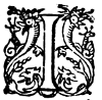
I shall begin this third book with an old allegoric Satire; a manner of moralizing, which, if it was not first introduced by the author of Pierce Plowman's Visions,[745] was at least chiefly brought into repute by that ancient Satirist. It is not so generally known that the kind of verse used in this ballad hath any affinity with the peculiar metre of that writer, for which reason I shall throw together some cursory remarks on that very singular species of versification, the nature of which has been so little understood.[746]
The following Song, intitled, The Complaint of Conscience, is printed from the Editor's folio Manuscript: Some corruptions in the old copy are here corrected; but with notice to the Reader, wherever it was judged necessary, by inclosing the corrections between inverted 'commas.'
[This poem entitled Conscience is printed in Hales and Furnivall's edition of the Percy folio MS. (vol. ii. p. 174), with a long preface by Mr. Furnivall, on the earnest side of Early English literature.
It will be seen from the foot-notes that Percy left many of his corrections unnoticed.]

[745] [The correct title is William's Vision of Piers Plowman. It is William (the author) who has the vision of Piers Plowman.]
[746] [This essay is printed as an Appendix.]
[747] Ver. 1. one, MS.
[748] [V. 3. espyed, MS.]
[749] [Between vv. 5, 6 the MS. has this line, "with turning and winding his bodye was toste."]
[750] [After v. 7, the MS. has the following lines:—
Percy omits three of these, and transfers the third line to v. 13.]
[751] V. 15. him, MS.
[752] V. 19. not in MS.
[753] [V. 20. for in place of yet, MS.]
[754] [Ver. 22. in all the court.]
[755] V. 23. he sate, MS.
[756] [V. 34. that was passed.]
[757] V. 35. an end, MS.
[758] [V. 36. Noe merchandize nor bargaines the merchants wold make.]
[759] [V. 42. now is.]
[760] V. 43. they be these, MS.
[761] V. 46. was deride, MS.
[762] [V. 47. Yet still abroad have I tried.]
[763] [Ver. 51. gates.]
[764] [St. Bartholomew's Hospital.]
[765] [V. 52. sinnes.]
[766] V. 53. packe me, MS.
[767] [V. 56. have esteemed.]
[768] V. 57. wonne, MS.
[769] [laughed.]
[770] [V. 64. the Lord God doth.]
[771] [V. 66. of an.]
[772] [V. 67. I thought better to cobble shoes than to doe worse.]
[773] [V. 68. all they cobblers.]
[774] [V. 69. and by statute thé wold prove me I was a rouge and forlorne.]
[775] [V. 70. And they whipt me out of towne to see where I was borne.]
[776] [Ver. 72. they Court.]
[777] [V. 73. some favor I.]
[778] [V. 76. did use my name in everye condicion.]
[779] [quibbles.]
[780] [V. 77. for lawyers get a.]
[781] [V. 79. good god.]
[782] [V. 83. soe then they.]
[783] [V. 85. then the merchants.]
[784] [V. 89. hands.]
[785] [V. 90. verry glad ... did ...]
[786] [V. 91. wold.]
[787] [V. 92. goe an.]
[788] [V. 95. and how ... had held, MS.]
[789] [Ver. 96. and in letting of their ffarmes I always used the same.]
[790] [V. 98. they have leases.]
[791] [V. 101. who sware ... so sore.]
[792] [V. 103. thé had.]
[793] [V. 104. doe repayre.]
[794] V. 109. ill, MS.
[795] V. 110. not in MS.
[796] [V. 111. their utter.]
[797] [V. 115. of pittie and of almes they doe teach.]
[798] [V. 117. doe preach.]
[799] [V. 118. hangs.]
[800] We ought in justice and truth to read 'can
[801] V. 119. almes-deeds, MS.
[802] [Ver. 122. I might happen to see.]
[803] [V. 123. to have him.]
[804] [V. 124. you must banish pride and then.]
[805] [V. 125. and then ... sells their lands.]
[806] V. 126. houses every where wold be kept, MS.
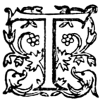
This excellent old ballad is preserved in the little ancient miscellany, intitled, The Garland of Goodwill.—Ignorance is here made to speak in the broad Somersetshire dialect. The scene we may suppose to be Glastonbury Abbey.
Truth.

Ignorance.
Truth.
Ignorance.
Truth.
Ignorance.
Truth.
Ignorance.
Truth.
Ignorance.
Truth.
Ignorance.
Truth.
Ignorance.
Truth.
Ignorance.
Truth.
Ignorance.
[807] [I will.]
[808] i.e. faithen: as in the Midland counties they say housen, closen, for houses, closes. A.
[809] [I.]
[810] [friar.]
[811] [I.]
[812] [I would.]
[813] Probably alluding to the illuminated Psalters, Missals, &c.
[814] [I am.]
[815] [the sacring bell was rung to give notice of the elevation of the host.]
[816] By name Eliz. Barton, executed Apr. 21, 1534. Stow, p. 570.
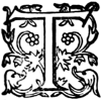
The story of the Wandering Jew is of considerable antiquity: it had obtained full credit in this part of the world before the year 1228, as we learn from Mat. Paris. For in that year, it seems, there came an Armenian archbishop into England, to visit the shrines and reliques preserved in our churches; who, being entertained at the monastery of St. Albans, was asked several questions relating to his country, &c. Among the rest a monk, who sat near him, inquired, "if he had ever seen or heard of the famous person named Joseph, that was so much talked of; who was present at our Lord's crucifixion and conversed with him, and who was still alive in confirmation of the Christian faith." The archbishop answered, That the fact was true. And afterwards one of his train, who was well known to a servant of the abbot's, interpreting his master's words, told them in French, "That his lord knew the person they spoke of very well: that he had dined at his table but a little while before he left the East: that he had been Pontius Pilate's porter, by name Cartaphilus; who, when they were dragging Jesus out of the door of the Judgment-hall, struck him with his fist on the back, saying, 'Go faster, Jesus, go faster: why dost thou linger?' Upon which Jesus looked at him with a frown and said, 'I indeed am going, but thou shall tarry till I come.' Soon after he was converted, and baptized by the name of Joseph. He lives for ever, but at the end of every hundred years falls into an incurable illness, and at length into a fit or ecstacy, out of which when he recovers, he returns to the same state of youth he was in when Jesus suffered, being then about thirty years of age. He remembers all the circumstances of the death and resurrection of Christ, the saints that arose with him, the composing of the apostles' creed, their preaching, and dispersion; and is himself a very grave and holy person." This is the substance of Matthew Paris's account, who was himself a monk of St. Albans, and was living at the time when this Armenian archbishop made the above relation.
Since his time several impostors have appeared at intervals under the name and character of the Wandering Jew; whose several histories may be seen in Calmet's Dictionary of the Bible. See also the Turkish Spy, vol. ii. book 3, let. 1. The story that is copied in the following ballad is of one, who appeared at Hamburgh in 1547, and pretended he had been a Jewish shoemaker at[Pg 294] the time of Christ's crucifixion.—The ballad however seems to be of later date. It is preserved in black-letter in the Pepys collection.
[This wondrous myth has found its way into many literatures, and numerous theories have been brought forward to account for its universality; but the only foundation for it appears to be in Christ's words—"tarry till I come." Mons. Paul Lacroix, however, suggests that it took its rise in a grand and beautiful allegory in which the Hebrew race were personified under the figure of the Everlasting Wanderer. Professor Child makes the following pertinent remark in his English and Scottish Ballads (vol. viii. p. 78). "It will be noticed that in the second form of the legend, the punishment of perpetual existence, which gives rise to the old names, Judæus non mortalis, Ewiger Jude, is aggravated by a condemnation to incessant change of place, which is indicated by a corresponding name, Wandering Jew, Juif Errant, &c."
In the Middle Ages it was supposed by some that Cain was the Wandering Jew, but the Mahometan belief was fixed upon Samiri, who, during the absence of Moses, enticed the people to worship the golden calf. In G. Weil's The Bible, the Koran, and the Talmud, 1846 (p. 127), we read, "Moses then summoned Samiri, and would have put him to death instantly, but Allah directed that he should be sent into banishment. Ever since that time he roams like a wild beast throughout the world; everyone shuns him and purifies the ground on which his feet have stood; and he himself, whenever he approaches men, exclaims, 'Touch me not.'" (Quoted in Buckle's Common Place Book. Works, vol. ii. p. 502, 1872.)
The legend has been localized in various parts of the world and connected with other myths. According to Mr. Baring Gould, a similar curse to that under which the Wandering Jew is living is supposed to have been inflicted upon the gipsies, on account of their refusal to shelter the Virgin and Child in the flight into Egypt.
The last recorded appearance of the Wandering Jew was at Brussels in April, 1774, and the wanderer's name was Isaac Laquedem. The name of the Hamburgh impostor, mentioned above by Percy, was Ahasuerus.]

By Sir Walter Raleigh,

Is found in a very scarce miscellany intitled "Davison's Poems, or a poeticall Rapsodie divided into sixe books.... The 4th impression newly corrected and augmented, and put into a forme more pleasing to the reader. Lond. 1621, 12mo." This poem is reported to have been written by its celebrated author the night before his execution, Oct. 29, 1618. But this must be a mistake, for there were at least two editions of Davison's poems before that time, one in 1608,[817] the other in 1611.[818] So that unless this poem was an after-insertion in the 4th edit. it must have been written long before the death of Sir Walter: perhaps it was composed soon after his condemnation in 1603. See Oldys's Life of Sir W. Raleigh, p. 173, fol.
[Hallam asserted that this favourite poem had been ascribed to Raleigh without evidence and without probability. Ritson affirmed that F. Davison was the author, and Ellis supported the claims of Joshua Sylvester, but Dr. Hannah has proved conclusively that it was really written by Raleigh. It was certainly composed before 1608, and probably about the period of its author's marriage and his consequent imprisonment in the Tower. Dr. Hannah has brought together a large amount of illustrative evidence in his interesting edition of the Courtly Poets (1872), and he shows that the answerers of the poem attributed it to Raleigh. One of the answers commences as follows—
He also draws attention to a transcript of the poem among the Chetham MSS., made not long after Raleigh's death, and signed "Wa. Raleigh."
In that remarkable book, Sylvester's Remains, printed at the end of the translation of Du Bartas, 1641, The Soules Errand is inserted with some poor additional verses.]
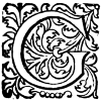
[817] Catalog. of T. Rawlinson, 1727.
[818] Cat. of Sion coll. library. This is either lost or mislaid.
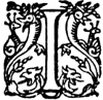
In the first edition of this book were inserted, by way of specimen of his majesty's poetic talents, some Punning Verses made on the disputations at Sterling: but it having been suggested to the Editor, that the king only gave the quibbling commendations in prose, and that some obsequious court-rhymer put them into metre;[819] it was thought proper to exchange them for two Sonnets of K. James's own composition. James was a great versifier, and therefore out of the multitude of his poems we have here selected two, which (to shew our impartiality) are written in his best and his worst manner. The first would not dishonour any writer of that time; the second is a most complete example of the Bathos.
[James I. commenced the practice of poetry at an early age, and his first book was printed at Edinburgh by T. Vautroullier, in 1584, under the title of The Essays of a Prentise in the divine art of Poesie. The king's next poetical venture was entitled, His Majesty's Poeticall Exercises at Vacant Houres. Printed at Edinburgh, by Robert Waldegrave, printer to the King's Majesty in 1591.]
From K. James's works in folio: Where is also printed another called his Majesty's OWN Sonnet; it would perhaps be too cruel to infer from thence that this was not his Majesty's own Sonnet.

This is printed from Drummond of Hawthornden's works, folio: where also may be seen some verses of Lord Stirling's upon this Sonnet, which concludes with the finest Anticlimax I remember to have seen.

[819] See a folio intitled The Muses welcome to King James.
[820] Saturn.
[821] Janus.
[822] i.e. may it.
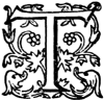
The common popular ballad of King John and the Abbot seems to have been abridged and modernized about the time of James I. from one much older, intitled, King John and the Bishop of Canterbury. The Editor's folio MS. contains a copy of this last, but in too corrupt a state to be reprinted; it however afforded many lines worth reviving, which will be found inserted in the ensuing stanzas.
The archness of the following questions and answers hath been much admired by our old ballad-makers; for besides the two copies above mentioned, there is extant another ballad on the same subject (but of no great antiquity or merit), intitled, King Olfrey and the Abbot.[823] Lastly, about the time of the civil wars, when the cry ran against the Bishops, some Puritan worked up the same story into a very doleful ditty, to a solemn tune, concerning King Henry and a Bishop, with this stinging moral:
[All the copies of this ballad are of late date, but Mr. Chappell says that the story upon which it is founded can be traced back to the fifteenth century, and Dr. Rimbault so traces it to the Adventures of Howleglas, printed in the Lower Saxon dialect in 1483. Wynkyn de Worde printed in 1511 a collection of riddles translated from the French, with the title Demaundes Joyous, which are like those propounded by King John to the Abbot. Prof. Child points out that by this link the ballad is connected with a tolerably large literature of wit combats of the middle ages. (See English and Scottish Ballads, vol. viii. p. 3.)
Copies of the puritan ballad referred to above are in the Pepys, Douce, and Roxburghe collections. It commences as follows—
The ballad entitled King John and Bishoppe, in the folio MS. to which Percy refers, is printed at the end of the following ballad.]
The following is chiefly printed from an ancient black-letter copy, to "The tune of Derry down."
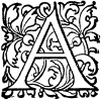
⁂
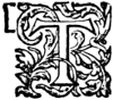
[The following version is reprinted from Hales and Furnivall's edition of the Percy Folio, vol. i. p. 508.
ffins.]
[823] See the collection of Hist. Ballads, 3 vols. 1727. Mr. Wise supposes Olfrey to be a corruption of Alfred, in his pamphlet concerning the White Horse in Berkshire, p. 15.
[824] [harm.]
[825] Meaning probably St. Botolph.
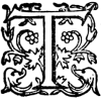
This little Sonnet was written by Sir Henry Wotton, Knight, on that amiable Princess, Elizabeth daughter of James I. and wife of the Elector Palatine, who was chosen King of Bohemia, Sept. 5, 1619. The consequences of this fatal election are well known: Sir Henry Wotton, who in that and the following year was employed in several embassies in Germany on behalf of this unfortunate lady, seems to have had an uncommon attachment to her merit and fortunes, for he gave away a jewel worth a thousand pounds, that was presented to him by the Emperor, "because it came from an enemy to his royal mistress the Queen of Bohemia." See Biog. Britan.
This song is printed from the Reliquiæ Wottonianæ, 1651, with some corrections from an old MS. copy.
[This elegant little poem in praise of the Queen of Bohemia (who was called by those who knew her and were won by her sweetness, spirit, wit, and unselfishness—the Queen of Hearts) has been very frequently reprinted. The unfortunate princess was also named the Snow Queen and her husband the Winter King, in allusion to the fact that their reign at Prague only lasted one winter. The poem first appeared, according to Dr. Rimbault, in "The Sixt Set of Bookes, wherein are Anthemes for Versus and[Pg 315] Chorus of 5 and 6 Parts; apt for Violls and Voyces: newly composed by Michaell Est, Bachelor of Musicke, and Master of the Choristers of the Cathedrall Church in Litchfield," London, 1624, 4to. It is printed in Wit's Recreations, 1640, and Wit's Interpreter, 1671, and in "Songs and Fancies to severall Musicall parts, both apt for Voices and Viols," Aberdeen, 1682. Alterations were made in the various copies, and in the latter book a wretched second part, quite out of harmony with the original, was added. It has found its way, with some variations, among Montrose's poems (see Napier's Life of Montrose, 1856, Appendix, p. xl.), and Robert Chambers (ignorant of the Englishman Sir Henry Wotton's claim to the authorship) actually printed it in his Scottish Songs (vol. ii. p. 631) as if "written by Darnley in praise of the beauty of Queen Mary before their marriage."
Percy, while copying from the Reliquiæ Wottonianæ, 1651, transposed stanzas 2 and 3. In Abp. Sancroft's MS. (Tanner, 465, fol. 43) the following verses occur as stanzas 4 and 6 of the whole poem:—

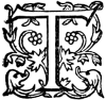
This excellent old song, the subject of which is a comparison between the manners of the old gentry, as still subsisting in the times of Elizabeth, and the modern refinements affected by their sons in the reigns of her successors, is given, with corrections, from an ancient black-letter copy in the Pepys collection, compared with another printed among some miscellaneous "poems and songs" in a book intitled, Le Prince d'amour, or The Prince of Love, 1660, 8vo.
[This was one of the most popular of old songs, and Dr. King in his Preface to the Art of Cookery places it by the side of Chevy Chase as one of the ballads to be hung up over the carved mantelpiece in the homes of old British hospitality. It is to be found in broadside in nearly all the collections, and appears to have been printed for the first time in the reign of James I. by T. Symcocke. Pepys notices it in his Diary under the date 16th June, 1668—"Come to Newbery, and there dined—and musick: a song of the old Courtier of Queen Elizabeth's, and how he was changed upon the coming in of the King, did please me mightily, and I did cause W. Hewer to write it out."
The song was parodied and altered into many forms. About the middle of the last century it was revived and sung by Mr. Vernon in Shadwell's comedy, The Squire of Alsatia, with a new[Pg 317] burden, "moderation and alteration," and finally it has been again revived in the present century, with still greater alterations, under the title of The Old English Gentleman.
Mr. Chappell has the following note on the object of the song:—"Southey remarks very justly on the complaints of the decay of hospitality, that 'while rents were received in kind they must have been chiefly consumed in kind; at least there could be no accumulation of disposable wealth.' He supposes this mode of payment to have fallen generally into disuse during the reign of James I. Without doubt, many of the poor would feel the change." Popular Music of the Olden Time, vol. ii. p. 778.]
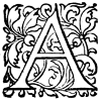

When the Scottish covenanters rose up in arms, and advanced to the English borders in 1639, many of the courtiers complimented the king by raising forces at their own expence. Among these none were more distinguished than the gallant Sir John Suckling, who raised a troop of horse, so richly accoutred, that it cost him £12,000. The like expensive equipment of other parts of the army, made[Pg 321] the king remark, that "the Scots would fight stoutly, if it were but for the Englishmen's fine cloaths." (Lloyd's Memoirs.) When they came to action, the rugged Scots proved more than a match for the fine shewy English: many of whom behaved remarkably ill, and among the rest this splendid troop of Sir John Suckling's.
This humorous pasquil has been generally supposed to have been written by Sir John, as a banter upon himself. Some of his contemporaries however attributed it to Sir John Mennis, a wit of those times, among whose poems it is printed in a small poetical miscellany, intitled, Musarum deliciæ: or the Muses recreation, containing several pieces of poetique wit, 2d edition.—By Sir J. M. (Sir John Mennis) and Ja. S. (James Smith.) Lond. 1656, 12mo.—(See Wood's Athenæ. ii. 397, 418.) In that copy is subjoined an additional stanza, which probably was written by this Sir John Mennis, viz.:—
[This song is a parody of the famous old song, John Dory, commencing.—
Suckling's satirical powers made him peculiarly odious to the Parliamentarians, as they were turned against them, and consequently Mennis's lampoon was a great favourite with the Roundheads. In Le Prince d'Amour, 1660, there is a song Upon Sir John Suckling's 100 Horse, and the following are two of the seven stanzas of which it consists:—
The uniform adopted by Suckling for his troop consisted of a white doublet, and scarlet coat and breeches, with a scarlet feather in the bonnet. The men were vigorous, well mounted and armed, and these famous 100 horsemen were considered to be the finest sight in his majesty's army. Mr. W. C. Hazlitt points out that the earliest news of them appears to be in a letter of Jan. 29, 1638-9, from the Earl of Northumberland to Lord Conway, in which the writer speaks of Suckling having then engaged himself to raise the troop "within these three days." (Calendar of State Papers (Domestic,) 1638-9, p. 378.) The army was badly commanded, and no greater disgrace attached to Suckling's troop than to the rest.]
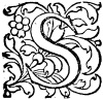
[826] Ver. 22. John de Wert was a German general of great reputation, and the terror of the French in the reign of Louis XIII. Hence his name became proverbial in France, where he was called De Vert. See Bayle's Dict.
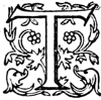
This excellent sonnet, which possessed a high degree of fame among the old Cavaliers, was written by Colone, Richard Lovelace during his confinement in the gatehouse, Westminster: to which he was committed by the House of Commons, in April 1642, for presenting a petition from the county of Kent, requesting them to restore the king to his rights, and to settle the government. See Wood's Athenæ, vol. ii. p. 228, and Lysons' Environs of London, vol. i. p. 109; where may be seen at large the affecting story of this elegant writer, who after [Pg 324]having been distinguished for every gallant and polite accomplishment, the pattern of his own sex, and the darling of the ladies, died in the lowest wretchedness, obscurity, and want, in 1658.
This song is printed from a scarce volume of his poems intitled, Lucasta, 1649, 12mo. collated with a copy in the Editor's folio MS.
[As Percy mentions, the folio MS. collations have been added from it (ed. Hales and Furnivall, vol. ii. p. 17), but it will at once be seen that they are of little value. The music to this most exquisite of prison songs was composed by the celebrated Dr. John Wilson, and first printed (according to Dr. Rimbault) in his Cheerful Ayres or Ballads set for three Voices, Oxford, 1660.
Lucasta (= Lux casta, Lucy Sacheverell), misled by a report that Lovelace had died of his wounds received at Dunkirk while commanding a regiment of his own forming in the service of the French king, married another lover.
Although doubtless Lovelace died in great trouble, we may hope that Wood's account of his extreme poverty is exaggerated, for his daughter and sole heir married the son of Lord Chief Justice Coke, and brought to her husband the estates of her father at Kingsdown in Kent.]

[827] [Ver. 8, 16, 24. enjoyes such lybertye, MS.]
[828] V. 10. with woe-allaying theames, MS. Thames is here used for water in general.
[829] [Ver. 13. thirsty soules, MS.]
[830] [V. 14. when cupps and bowles goe free.]
[831] [V. 19. the mercy, goodnesse, maiestye.]
[832] [V. 20. glory.]
[833] [V. 23. curles the floods.]
[834] [V. 27. the spotlesse soule and inocent.]
[835] [V. 28. Calls this an.]
[836] [V. 31. sores.]
[837] [V. 32. enjoyes. The second and third stanzas are transposed in the MS.]
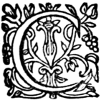
Charing-Cross, as it stood before the civil wars, was one of those beautiful Gothic obelisks erected to conjugal affection by Edward I., who built such a one wherever the herse of his beloved Eleanor rested in its way from Lincolnshire to Westminster. But neither its ornamental situation, the beauty of its structure, nor the noble design [Pg 326]of its erection (which did honour to humanity), could preserve it from the merciless zeal of the times: For, in 1647, it was demolished by order of the House of Commons, as popish and superstitious. This occasioned the following not unhumorous sarcasm, which has been often printed among the popular sonnets of those times.
The plot referred to in ver. 17, was that entered into by Mr. Waller the poet, and others, with a view to reduce the city and tower to the service of the king; for which two of them, Nath. Tomkins and Rich. Chaloner, suffered death July 5, 1643. Vid. Ath. Ox. ii. 24.
Whitlocke says, "May 3, 1643, Cheapside cross and other crosses were voted down," &c.—But this Vote was not put in execution with regard to Charing Cross till four years after, as appears from Lilly's Observations on the Life, &c. of K. Charles, viz. "Charing-Cross, we know, was pulled down, 1647, in June, July, and August. Part of the Stones were converted to pave before Whitehall. I have seen Knife-hafts made of some of the stones, which, being well-polished, looked like marble." Ed, 1715, p. 18, 12mo.
[In Laud's Diary it is written, "1643 Maii 2 Tuesday The cross in Cheapside taken down."]
See an Account of the pulling down Cheapside Cross, in the Supplement to Gent. Mag. 1764.
[Charing Cross was the largest and most beautiful of the series of Eleanor crosses, and the architects employed in the construction of it were paid £450. The work was formerly attributed to Cavalini, but that artist was not born until the year 1279, and was therefore about eleven years old when the Queen died. Since the publication of the very interesting rolls of payments made by the executors of Queen Eleanor (Manners and Household Expenses of England in the 13th and 15th centuries. Roxburghe Club, 1841), it has been known that Charing Cross was commenced by Richard de Crundale and completed, after his death, by Roger de Crundale.
The site of the old cross was made use of as a place of execution, and several of the regicides were put to death there.
The Cheapside cross, which was taken down in 1643, was the third which occupied the site, and it had only been erected in 1600. The original cross was found to be in a bad condition in 1441, and a new one was therefore commenced, which was not finished until 1486. This was replaced in 1600 by the third cross.
Dr. Rimbault informs us that this ballad is printed with the music for three voices by "Mr. F. Farmeloe" in "The Second Book of the Pleasant Musical Companion," 1687.]
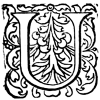
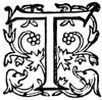
This excellent old song is preserved in David Lloyd's Memoires of those that suffered in the cause of Charles I. Lond. 1668, fol. p. 96. He speaks of it as the composition of a worthy personage, who suffered deeply in those times, and was still living with no other reward than the conscience of having suffered. The author's name he has not mentioned, but, if tradition may be credited, this song was written by Sir Roger L'Estrange.—Some mistakes in Lloyd's copy are corrected by two others, one in MS., the other in the Westminster Drollery, or a choice Collection of Songs and Poems, 1671, 12mo.
[The ascription of this song to L'Estrange is improbable, and we must therefore seek elsewhere for an author.]
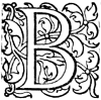
[838] [pearl.]
[839] See this remarkable story in Cicero de Nat. Deorum, lib. 3, c. 28. Cic. de Offic. lib. 1, c. 30; see also Val. Max. 1, 8.
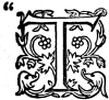
"This prince, like his father, did not confine himself to prose: Bishop Burnet has given us a pathetic elegy, said to be written by Charles in Carisbrook castle (in 1648). The poetry is most uncouth and unharmonious, but there are strong thoughts in it, some good sense, and a strain of majestic piety." Mr. Walpole's Royal and Noble Authors, vol. i.
It is in his Memoirs of the Duke of Hamilton, p. 379, that Burnet hath preserved this elegy, which he tells us he had from a gentleman, who waited on the king at the time when it was written, and copied it out from the original. It is there intitled, Majesty in Misery: or An Imploration to the King of Kings.
Hume hath remarked of these stanzas, "That the truth of the sentiment, rather than the elegance of expression, renders them[Pg 332] very pathetic." See his Hist. 1763, 4to. vol. v. pp. 437, 442, which is no bad comment upon them.—These are almost the only verses known of Charles's composition. Indeed a little Poem On a quiet Conscience, printed in the Poetical Calendar, 1763, vol. viii. is attributed to K. Charles I.; being reprinted from a thin 8vo. published by Nahum Tate, called Miscellanea Sacra, or Poems on Divine and Moral Subjects.
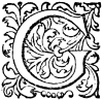
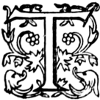
This sarcastic exultation of triumphant loyalty, is printed from an old black-letter copy in the Pepys collection, corrected by two others, one of which is preserved in A choice collection of 120 loyal songs, &c. 1684, 12mo.—To the tune of Old Simon the king.
[This triumph over the downfall of the Rump Parliament is one of the best of the numerous songs that were set to the favourite tune of Old Simon the King, the full burden of which is—

[840] Alluding probably to Major-General Harrison a butcher's son, who assisted Cromwell in turning out the long parliament, April 20, 1653.
[841] Ver. 86. This was a cant name given to Cromwell's wife by the Royalists, though her name was Elizabeth. She was taxed with exchanging the kitchen-stuff for the candles used in the Protector's houshold, &c. See Gent. Mag. for March, 1788, p. 242.
[842] Ver. 94. See Grey's Hudibras, pt. i. cant. 2, ver. 570, &c.
[843] V. 100, 102. Cromwell had in his younger years followed the brewing trade at Huntingdon. Col. Hewson is said to have been originally a cobler.
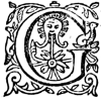
Given (with some corrections) from a MS. copy, and collated with two printed ones in Roman character in the Pepys collection.
[There are several versions of this story, but the earliest known to Mr. Chappell is the one printed by Ritson in his Ancient Songs (vol. ii. ed. 1829, p. 54), beginning—
with the burden, Then she sang Downe a downe, hey downe derry. It is from Deuteromelia, or the second part of Musicks melodie or melodious Musicke, London, 1609. Others are in Pills to purge Melancholy (iii. 1707, or v. 1719), and in A Complete Collection of old and new English and Scotch Songs, 8vo., 1735. The copy in the Roxburghe collection is entitled The Politick Maid, beginning "There was a knight was wine dronke." Ritson says, "Bp. Percy found the subject worthy of his best improvements."]
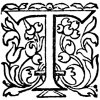
⁂
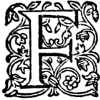
From Sir John Suckling's Poems. This sprightly knight was born in 1613, and cut off by a fever about the 29th year of his age. See above, Song IX. of this Book.
[This celebrated song occurs in the tragedy of Aglaura, where it is sung by Orsames, a young lord, who says—"It is a little foolish counsel I gave a friend of mine four or five years ago when he was falling into a consumption."
Dr. Rimbault (Musical Illustrations, p. 29) writes, "The original air is here given from a MS. volume of old songs with the music, temp. Charles II. in the collection of the Editor. It was originally in the Library at Staunton Harold, Leicestershire, the seat of Earl Ferrers. This beautiful lyric was sung by Mrs. Cross in the Mock Astrologer, to an air composed by Lewis Ramondon. It was afterwards reset by Dr. Arne."
The date of the poet's birth given above is incorrect. Suckling was baptized on the tenth of February, 1608-9, and his mother died in 1613. Reduced in fortune and an alien, he died of poison bought by him of an apothecary at Paris. The date of his death is not known, but it probably took place in 1641, and he certainly was dead before the year 1642 had ended.]

Mad song the First.

It is worth attention, that the English have more songs and ballads on the subject of madness, than any of their neighbours. Whether there be any truth in the insinuation, that we are more liable to this calamity than other nations, or that our native gloominess hath peculiarly recommended subjects of this cast to our writers; we certainly do not find the same in the printed collections of French, Italian Songs, &c.
Out of a much larger quantity, we have selected half a dozen mad songs for these volumes. The three first are originals in their respective kinds; the merit of the three last is chiefly that of imitation. They were written at considerable intervals of time; but we have here grouped them together, that the reader may the better examine their comparative merits. He may consider them as so many trials of skill in a very peculiar subject, as the contest of so many rivals to shoot in the bow of Ulysses. The two first were probably written about the beginning of the last century; the third about the middle of it; the fourth and sixth towards the end; and the fifth within this present century.
This is given from the Editor's folio MS. compared with two or three old printed copies.—With regard to the author of this old rhapsody, in Walton's Compleat Angler, cap. 3, is a song in praise of angling, which the author says was made at his request "by Mr. William Basse, one that has made the choice songs of the Hunter in his career, and of Tom of Bedlam, and many others of note," p. 84. See Sir John Hawkins's curious Edition, 8vo. of that excellent old book.
[The madness here referred to was sometimes real, but more often shammed. These "mad rascals" were so numerous a class that they obtained the distinctive names of Bedlam beggars, and Abraham men. Dekker describes their tricks in his Bellman of London, 1616, where he says, "he calls himself by the name of Poor Tom, and coming near any body, cries out, 'Poor Tom is a cold;'" the very expression used by Edgar when he appears in the disguise of a madman (King Lear). Mr. Chappell observes that there is great uncertainty as to the authorship, for there are so many Tom of Bedlam songs that it is impossible to determine from the passage in the Complete Angler to which of them Walton refers. It is also doubtful to whom we are indebted for the tune. Mr. Chappell thinks that probably it was by Henry Lawes's master, John Cooper, called Cuperario after his visit to Italy. It has been attributed, without authority, to Henry Purcell and Henry Lawes.]

[845] [Ver. 2. or not in MS.]
[846] [V. 4. can ease.]
[847] [V. 5. ffeare & dispayre pursue.]
[848] [V. 7. and not in MS.]
[849] [V. 9. through woods.]
[850] [V. 11. I found out time.]
[851] [five tenses.]
[852] [V. 13. he spyes.]
[853] [V. 14. he fflyes.]
[854] [V. 15. for not in MS.]
[855] [Ver. 17. hee rends.]
[856] [V. 18. for not in MS.]
[857] [V. 26. and knocke.]
[858] [V. 28. my five sences.]
[859] [heated.]
[860] [V. 31. heates.]
[861] [V. 32. runs att.]
[862] [V. 33. weapons.]
[863] [V. 35. hang soe.]
[864] [V. 36. that hee cold not see to aime arright.]
[865] [V. 38. stayd to see.]
[866] [very fat bellied.]
Mad song the second,

Was written about the beginning of the seventeenth century by the witty bishop Corbet, and is printed from the 3d edition of his Poems, 12mo. 1672, compared with a more ancient copy in the Editor's folio MS.
[This song was printed in Le Prince d'Amour, 1660, with three other songs entitled Tom of Bedlam. It was also printed in the Rump Songs, 1662, but not in the edition of 1660.
The copy in the folio MS. (ed. Hales and Furnivall, vol. iii. p. 269) has several alterations. Stanza 5 was taken by Percy from the MS., where it occurs as stanza 8.
Richard Corbet, successively Bishop of Oxford and Norwich, was born at Ewell in Surrey in 1582. He died in 1635. He was a humorous man, and many pleasant stories are told of him, but Aubrey describes his appearance as "grave and venerable."

[867] Emanuel college, Cambridge, was originally a seminary of Puritans.
[Fuller has left us the following anecdote of Sir Walter Mildmay, the founder of Emanuel, in his History of the University of Cambridge. "Coming to court after he had founded his college, the queen told him, 'Sir Walter, I hear you have erected a Puritan foundation.' 'No madam,' saith he, 'far be it from me to countenance anything contrary to your established laws; but I have set an acorn, which, when it becomes an oak, God alone knows what will be the fruit thereof.'"]
[868] Alluding to some visionary exposition of Zech. ch. v. ver. 1; or, if the date of this song would permit, one might suppose it aimed at one Coppe, a strange enthusiast, whose life may be seen in Wood's Athen. vol. ii. p. 501. He was author of a book, intitled, The Fiery Flying Roll: and afterwards published a Recantation, part of whose title is, The Fiery Flying Roll's Wings clipt, &c.
[869] See Greenham's Works, fol. 1605, particularly the tract intitled, A sweet Comfort for an afflicted Conscience.
[Richard Greenham was born circa 1531 and died in 1591. He was a singularly ardent preacher, and Brook, in his Lives of the Puritans, says, that "in addition to his public ministerial labours he had a remarkable talent for comforting afflicted consciences." His Works were first collected in 1599.]
[870] See Perkin's Works, fol. 1616, vol. i. p. 11; where is a large half sheet folded, containing, A survey, or table, declaring the order of the causes of salvation and damnation, &c. the pedigree of damnation being distinguished by a broad black zig-zag line.
[William Perkins (1558-1602). Brook says of him, that he used to pronounce the word damn with so peculiar an emphasis "that it left a doleful echo in the eares a long time after." His works were frequently reprinted, and, according to Fuller, were translated into Latin, French, Dutch, and Spanish.]
[871] Abp. Laud.
Mad song the third,

Is given from an old printed copy in the British Museum, compared with another in the Pepys collection; both in black letter.
[Black-letter copies of this ballad are to be found in the Bagford, Douce, and Roxburghe collections, as well as in the Pepys. The tune was a favourite one, and several other ballads were sung to it.]
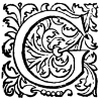
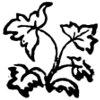
Mad Song the Fourth,

Was originally sung in one of Tom D'urfey's comedies of Don Quixote in 1694 and 1696; and probably composed by himself. In the several stanzas, the author represents his pretty Mad-woman as 1. sullenly mad: 2. mirthfully mad: 3. melancholy mad: 4. fantastically mad: and 5. stark mad. Both this, and Num. XXII. are printed from D'urfey's Pills to purge Melancholy, 1719, vol. i.
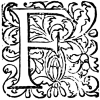
Mad Song the Fifth,
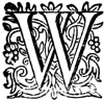
Was written by Henry Carey, a celebrated composer of music at the beginning of this century, and author of several little Theatrical Entertainments, which the reader may find enumerated in the Companion to the Play-house, &c. The sprightliness of this songster's fancy could not preserve him from a very melancholy catastrophe, which was[Pg 358] effected by his own hand. In his Poems, 4to. Lond. 1729, may be seen another Mad-Song of this author, beginning thus:
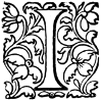
Mad Song the Sixth.

This, like Num. XX., was originally sung in one of D'urfey's comedies of Don Quixote, (first acted about the year 1694) and was probably composed by that popular songster, who died Feb. 26, 1723.
This is printed in the Hive, a Collection of Songs, 4 vols. 1721, 12mo. where may be found two or three other Mad Songs not admitted into these Volumes.
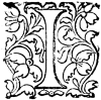
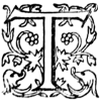
The following rhymes, slight and insignificant as they may now seem, had once a more powerful effect than either the Philippics of Demosthenes, or Cicero; and contributed not a little towards the great revolution in 1688. Let us hear a contemporary writer.
"A foolish ballad was made at that time, treating the Papists,[Pg 361] and chiefly the Irish, in a very ridiculous manner, which had a burden said to be Irish words, Lero, lero, liliburlero, that made an impression on the (king's) army, that cannot be imagined by those that saw it not. The whole army, and at last the people, both in city and country, were singing it perpetually. And perhaps never had so slight a thing so great an effect."—Burnet.
It was written, or at least republished, on the earl of Tyrconnel's going a second time to Ireland in October, 1688. Perhaps it is unnecessary to mention, that General Richard Talbot, newly created earl of Tyrconnel, had been nominated by K. James II. to the lieutenancy of Ireland in 1686, on account of his being a furious papist, who had recommended himself to his bigotted master by his arbitrary treatment of the protestants in the preceding year, when only lieutenant general, and whose subsequent conduct fully justified his expectations and their fears. The violences of his administration may be seen in any of the histories of those times: particularly in bishop King's State of the Protestants in Ireland, 1691, 4to.
This song is attributed to Lord Wharton in a small pamphlet, intitled, A true relation of the several facts and circumstances of the intended riot and tumult on Q. Elizabeth's birth-day, &c. 3d. ed. Lond. 1712, pr. 2d.—See p. 5, viz.—"A late Viceroy (of Ireland,) who has so often boasted himself upon his talent for mischief invention, lying, and for making a certain Lilliburlero Song; with which, if you will believe himself, he sung a deluded Prince out of Three Kingdoms."
Lilliburlero and Bullen-a-lah are said to have been the words of distinction used among the Irish Papists in their massacre of the Protestants in 1641.
[To no song could be better attributed Fletcher of Saltoun's dictum than to this poor specimen of verse, which caught the fancy of the people and drove James from his throne. Macaulay wrote of it as follows:—"From one end of England to the other all classes were constantly singing this idle rhyme. It was especially the delight of the English army. More than seventy years after the Revolution, Sterne delineated with exquisite skill a veteran who had fought at the Boyne and at Namur. One of the characteristics of the good old soldier is his trick of whistling Lilliburlero." The air is attributed to Purcell, but it is supposed that he only arranged an earlier tune. Hume thought that the popularity of the song was rather due to the composer of the air than to the author of the words.
Mr. Markland, in a note to Boswell's Life of Johnson, says, that "according to Lord Dartmouth there was a particular expression in it, which the king remembered that he had made use of to the[Pg 362] Earl of Dorset, from whence it was concluded that he was the author." Upon this Mr. Chappell remarks, 1. that "the Earl of Dorset laid no claim to it, and it is scarcely to be believed that the author of To all you ladies now on land could have penned such thorough doggrel." 2. That "the ballad contains no expression that the King would have used, which might not equally have been employed by any other person."[872] There can now be little doubt that the author was Thomas Marquis of Wharton, father of the mad Duke Philip of Wharton. He discerned the indications of the political horizon and espoused the winning side. He was well rewarded for his wisdom. Mr. S. Redmond (Notes and Queries, third series, viii. 13) writes that he has often heard the girls in the south and south-east of Ireland, while engaged in binding the corn into sheaves after the reapers, sing the following chorus, which always had reference to one of the gang who was not so quick at her work as the others, and who consequently was left behind:
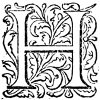
[872] [Popular Music of the Olden Time, vol. ii. p. 569.]
[873] Ver. 7. Ho by my shoul, al. ed.
[874] Ver. 43. What follows is not in some copies.
In Imitation of the Ancient Scots Manner,

Was written by William Hamilton, of Bangour, Esq; who died March 25, 1734, aged 50. It is printed from an elegant edition of his Poems, published at Edinburgh, 1760, 12mo. This song was written in imitation of an old Scottish ballad on a similar subject, with the same burden to each stanza.
[The beautiful river Yarrow has few rivals as an inspirer of song. These verses of Hamilton's are copied from the old ballad—The Dowie Dens (melancholy downs) of Yarrow, a collated version of which was first printed by Scott in his Minstrelsy of the Scottish Border. Scott was of opinion that with many readers the greatest recommendation of the old ballad will be that it suggested to Hamilton his modern one. We may say that the greatest recommendation of Hamilton's poem to us is the fact that it inspired Wordsworth to write his three lovely little poems, Yarrow Unvisited, Visited, and Revisited.
There are two old ballads which have been much mixed up by reciters, viz. The Dowie Dens and Willie's drowned in Yarrow. The Rev. John Logan's Braes of Yarrow is founded on the latter.
William Hamilton of Bangour was born in 1704 and died at Lyons in 1754, from which place his remains were brought to Scotland, and interred in Holyrood Abbey. He was a Jacobite, and after the battle of Culloden was forced to skulk about the Highlands in disguise until he was able to escape to France. He returned to Scotland after the country had quieted down in 1749.]
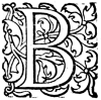
[875] [dress.]
[876] [companion.]
[877] [hilly banks.]
[878] [pulling the birch trees.]
[879] [lost.]
[880] [daisy.]
[881] [twilight.]
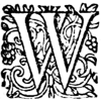
Was a party song written by the ingenious author of Leonidas,[882] on the taking of Porto Bello from the Spaniards by Admiral Vernon, Nov. 22, 1739.—The case of Hosier, which is here so pathetically represented, was briefly this. In April, 1726, that commander was sent with a strong fleet into the Spanish West-Indies, to block up the galleons in the ports of that country, or should they presume to come out, to seize and carry them into England: he accordingly arrived at the Bastimentos near Porto Bello, but being employed rather to overawe than to attack the Spaniards, with whom it was probably not our interest to go to war, he continued long inactive on that station, to his own great regret. He afterwards removed to Carthagena, and remained cruizing in these seas, till far the greater part of his men perished deplorably by the diseases of that unhealthy climate. This brave man, seeing his best officers and men thus daily swept away, his ships exposed to inevitable destruction, and himself made the sport of the enemy, is said to have died of a broken heart. Such is the account of Smollett, compared with that of other less partial writers.
The following song is commonly accompanied with a Second Part, or Answer, which being of inferior merit, and apparently written by another hand, hath been rejected.
[Dr. Rimbault (Musical Illustrations, p. 30) writes: "The earliest copy of the tune to this ballad is contained in the ballad opera of Sylvia, or the Country Burial, 1731. It may also be found in Walsh's British Musical Miscellany, vol. iv. and in other works of a similar description. The ballads of Come and listen to my ditty and Cease, rude Boreas, were sung to this tune, which appears to have been always a favourite for 'sea ditties.'"
In Hannah More's Life (vol. i. p. 405) is the following interesting note: "I was much amused with hearing old Leonidas Glover sing his own fine ballad of Hosier's Ghost, which was very affecting. He is past eighty." In the matter of the last item Mrs. More was wrong. Richard Glover was born in 1712, and died on Nov. 25, 1785.]

[882] An ingenious correspondent informs the Editor, that this ballad hath been also attributed to the late Lord Bath.
[883] Admiral Vernon's ship.
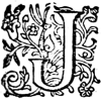
James Dawson was one of the Manchester rebels, who was hanged, drawn, and quartered, on Kennington-common, in the county of Surrey, July 30, 1746.—This ballad is founded on a remarkable fact, which was reported to have happened at his execution. It was written by the late William Shenstone, Esq; soon after the event, and has been printed amongst his posthumous works, 2 vols. 8vo. It is here given from a MS. which contained some small variations from that printed copy.
[Captain James Dawson was one of eight officers belonging to the Manchester regiment of Volunteers in the service of the young Chevalier, who were executed on Kennington Common.
The following ballad is founded upon a narrative first published in a periodical entitled The Parrot, Saturday, 2d August, 1746, three days after the occurrence. In the Whitehall Evening Post, Aug. 7, 1746, the same story is told with the addition, that "upon enquiry every circumstance was literally true." Another ballad is said to have been written upon Dawson's fate, and sung about the streets. It is reprinted in the European Magazine, April, 1801, p. 248, and begins as follows:
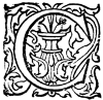
THE END OF THE THIRD BOOK.


APPENDIX.

We learn from Wormius[884], that the ancient Islandic poets used a great variety of measures: he mentions 136 different kinds, without including rhyme, or a correspondence of final syllables, yet this was occasionally used, as appears from the Ode of Egil, which Wormius hath inserted in his book.
He hath analysed the structure of one of these kinds of verse, the harmony of which neither depended on the quantity of the syllables, like that of the ancient Greeks and Romans; nor on the rhymes at the end, as in modern poetry; but consisted altogether in alliteration, or a certain artful repetition of the sounds in the middle of the verses. This was adjusted according to certain rules of their prosody, [Pg 380]one of which was, that every distich should contain at least three words beginning with the same letter or sound. Two of these correspondent sounds might be placed either in the first or second line of the distich, and one in the other: but all three were not regularly to be crowded into one line. This will be best understood by the following examples[885]:
There were many other little niceties observed by the Islandic poets, who, as they retained their original language and peculiarities longer than the other nations of Gothic race, had time to cultivate their native poetry more, and to carry it to a higher pitch of refinement, than any of the rest.
Their brethren, the Anglo-Saxon poets, occasionally used the same kind of alliteration, and it is common to meet, in their writings, with similar examples of the foregoing rules. Take an instance or two in modern characters[886]:
I know not, however, that there is anywhere extant an entire Saxon poem all in this measure. But distichs of this sort perpetually occur in all their poems of any length.
Now if we examine the versification of Pierce Plowman's Visions, we shall find it constructed exactly by these rules; and therefore each line, as printed, is in reality a distich of two verses, and will, I believe, be found distinguished as such, by some mark or other in all the ancient MSS. viz.:
So that the author of this poem will not be found to have invented any new mode of versification, as some have supposed, but only to have retained that of the old Saxon and Gothic poets; which was probably never wholly laid aside, but occasionally used at different intervals: though the ravages of time will not suffer us now to produce a regular series of poems entirely written in it.
There are some readers whom it may gratify to mention, that these Visions of Pierce (i.e. Peter) the Plowman, are attributed to Robert Langland, a secular priest, born at Mortimer's Cleobury in Shropshire, and fellow of Oriel College in Oxford, who flourished in the reigns of Edward III. and Richard II., and published his poem a few years after 1350. It consists of xx. passus or breaks[888], exhibiting a series of visions which, he pretends, happened to him on Malvern hills in Worcestershire. The author excells in strong allegoric painting, and has with great humour, spirit, and fancy, censured most of the vices incident to the several professions of life; but he particularly inveighs against the corruptions of the clergy, and the absurdities of superstition. Of this work I have now before me four different editions in black-letter quarto. Three of them are printed in 1550, "by Robert Crowley, dwelling in Elye [Pg 382]Rentes in Holburne." It is remarkable that two of these are mentioned in the title-page as both of the second impression, though they contain evident variations in every page[889]. The other is said to be "newlye imprynted after the authors olde copy ... by Owen Rogers," Feb. 21, 1561.
As Langland was not the first, so neither was he the last that used this alliterative species of versification. To Rogers's edition of the Visions is subjoined a poem, which was probably writ in imitation of them, intitled Pierce the Ploughman's Crede. It begins thus:
The author feigns himself ignorant of his Creed, to be instructed in which he applies to the four religious orders, viz., the gray friers of St. Francis, the black friers of St. Dominic, the Carmelites or white friers, and the Augustines. This affords him occasion to describe in very lively colours the sloth, ignorance, and immorality of those reverend drones. At length he meets with Pierce, a poor ploughman, who resolves his doubts, and instructs him in the principles of true religion. The author was evidently a follower of Wiccliff, whom he mentions (with honour) as no longer living[890]. Now that reformer died in 1384. How long after his death this poem was written, does not appear.
In the Cotton library is a volume of ancient English poems[891], two of which are written in this alliterative metre, and have the division of the lines into distichs distinctly marked by a point, as is usual in old poetical MSS. That which stands first of the two (though perhaps the latest written) is entitled The Sege of I'erlam, (i.e. Jerusalem), being an old fabulous legend composed by some monk, and stuffed with marvellous figments concerning the destruction of the holy city and temple. It begins thus:
The other is intitled Chevalere Assigne (or De Cigne), that is, The Knight of the Swan, being an ancient Romance, beginning thus:
Among Mr. Garrick's collection of old plays[892] is a prose narrative of the adventures of this same Knight of the Swan, "newly translated out of Frenshe into Englyshe, at thinstigacion of the puyssaunt and illustryous prynce, lorde Edward duke of Buckynghame." This lord it seems had a peculiar interest in the book, for, in the preface, the translator tells us, that this "highe dygne and illustryous prynce my lorde Edwarde by the grace of god Duke of Buckyngham, erle of Hereforde, Stafforde, and Northampton, desyrynge cotydyally to encrease and [Pg 384]augment the name and fame of such as were relucent in vertuous feates and triumphaunt actes of chyvalry, and to encourage and styre every lusty and gentell herte by the exemplyficacyon of the same, havyng a goodli booke of the highe and miraculous histori of a famous and puyssaunt kynge, named Oryant, sometime reynynge in the parties of beyonde the sea, havynge to his wife a noble lady; of whome she conceyved sixe sonnes and a daughter, and chylded of them at one only time; at whose byrthe echone of them had a chayne of sylver at their neckes, the whiche were all tourned by the provydence of god into whyte swannes, save one, of the whiche this present hystory is compyled, named Helyas, the knight of the swanne, of whome linially is dyscended my sayde lorde. The whiche ententifly to have the sayde hystory more amply and unyversally knowen in thys hys natif countrie, as it is in other, hath of hys hie bountie by some of his faithful and trusti servauntes cohorted mi mayster Wynkin de Worde[893] to put the said vertuous hystori in prynte ... at whose instigacion and stiring I (Roberte Copland) have me applied, moiening the helpe of god, to reduce and translate it into our maternal and vulgare english tonge after the capacitè and rudenesse of my weke entendement." A curious picture of the times! While in Italy literature and the fine arts were ready to burst forth with classical splendor under Leo X. the first peer of this realm was proud to derive his pedigree from a fabulous knight of the swan[894]!
To return to the metre of Pierce Plowman: In the folio MS. so often quoted in these volumes, are two poems written in that species of versification. One of these is an ancient allegorical poem intitled Death and Life, (in 2 fitts or parts, containing 458 distichs) which, for ought that appears, may have been written as early, if not before, the time of Langland. The first forty lines are broke as they should be into distichs, a distinction that is neglected in the remaining part of the transcript, in order, I suppose, to save room. It begins:
The subject of this piece is a vision, wherein the poet sees a contest for superiority between "our lady Dame Life," and the "ugly fiend Dame Death;" who with their several attributes and concomitants are personified in a fine vein of allegoric painting. Part of the description of Dame Life is:
Death is afterwards sketched out with a no less bold and original pencil.
The other poem is that which is quoted in the 32nd page of this volume, and which was probably the last that was ever written in this kind of metre in its original simplicity unaccompanied with rhyme. It should have been observed above in page 32, that in this poem the lines are throughout divided into distichs, thus:
It is intitled Scottish Feilde (in 2 fitts, 420 distichs,) containing a very circumstantial narrative of the battle of Flodden, fought Sept. 9, 1513: at which the author seems to have been present from his speaking in the first person plural:
In the conclusion of the poem he gives this account of himself:
The village of Bagily or Baguleigh is in Cheshire, and had belonged to the ancient family of Legh for two centuries before the battle of Flodden. Indeed that the author was of that county appears from other passages in the body of the poem, particularly from the pains he takes to wipe off a stain from the Cheshiremen, who it seems ran away in that battle, and from his encomiums on the Stanleys, earls of Derby, who usually headed that county. He laments the death of James Stanley, bishop of Ely, as what had recently happened when this poem was written; which serves to ascertain its date, for that prelate died March 22, 1514-5.
Thus have we traced the alliterative measure so low as the sixteenth century. It is remarkable that all such poets as used this kind of metre, retained along with it many peculiar Saxon idioms, particularly such as were appropriated to poetry: this deserves the attention of those who are desirous to recover the laws of the ancient Saxon poesy, usually given up as inexplicable: I am of opinion that they will find what they seek in the metre of Pierce Plowman[899].
About the beginning of the sixteenth century this kind of versification began to change its form: the author of Scottish Field, we see, concludes his poem with a couplet in rhyme: this was an innovation that did but prepare the way for the general admission of [Pg 388]that more modish ornament; till at length the old uncouth verse of the ancient writers would no longer go down without it. Yet when rhyme began to be superadded, all the niceties of alliteration were at first retained along with it; and the song of Little John Nobody exhibits this union very clearly. By degrees the correspondence of final sounds engrossing the whole attention of the poet, and fully satisfying the reader, the internal imbellishment of alliteration was no longer studied, and thus was this kind of metre at length swallowed up and lost in our common burlesque Alexandrine, or Anapestic verse[900], now never used but in ballads and pieces of light humour, as in the song of Conscience, and in that well-known doggerel,
But although this kind of measure hath with us been thus degraded, it still retains among the French [Pg 389]its ancient dignity; their grand heroic verse of twelve syllables[901] is the same genuine offspring of the old alliterative metre of the ancient Gothic and Francic poets, stript like our Anapestic of its alliteration, and ornamented with rhyme: but with this difference, that whereas this kind of verse hath been applied by us only to light and trivial subjects, to which by its quick and lively measure it seemed best adapted, our poets have let it remain in a more lax unconfined state[902], as a greater degree of severity and strictness would have been inconsistent with the light and airy subjects to which they have applied it. On the other hand, the French having retained this verse as the vehicle of their epic and tragic flights, in order to give it a stateliness and dignity were obliged to confine it to more exact laws of scansion: they have therefore limited it to the number of twelve syllables; and by making the cæsura or pause as full and [Pg 390]distinct as possible, and by other severe restrictions, have given it all the solemnity of which it was capable. The harmony of both however depends so much on the same flow of cadence and disposal of the pause, that they appear plainly to be of the same original; and every French heroic verse evidently consists of the ancient distich of their Francic ancestors: which, by the way, will account to us why this verse of the French so naturally resolves itself into two complete hemistics. And indeed by making the cæsura or pause always to rest on the last syllable of a word, and by making a kind of pause in the sense, the French poets do in effect reduce their hemistics to two distinct and independent verses: and some of their old poets have gone so far as to make the two hemistics rhyme to each other.[903]
After all, the old alliterative and anapestic metre of the English poets being chiefly used in a barbarous age, and in a rude unpolished language, abounds with verses defective in length, proportion, and harmony; and therefore cannot enter into a comparison with the correct versification of the best modern French writers; but making allowances for these defects, that sort of metre runs with a cadence so exactly resembling the French heroic Alexandrine, that I believe no peculiarities of their versification can be produced, which cannot be exactly matched in the alliterative metre. I shall give by way of example a few lines from the modern French poets accommodated with parallels from the ancient poem of Life and Death; in these I shall denote the cæsura or pause by a perpendicular line, and the cadence by the marks of the Latin quantity.
To conclude: the metre of Pierce Plowman's Visions has no kind of affinity with what is commonly called blank verse; yet has it a sort of harmony of its own, proceeding not so much from its alliteration, as from the artful disposal of its cadence, and the contrivance of its pause; so that when the ear is a little accustomed to it, it is by no means unpleasing; but claims all the merit of the French heroic numbers, only far less polished; being sweetened, instead of their final rhymes, with the internal recurrence of similar sounds.
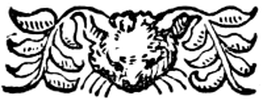
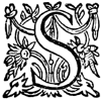
Since the foregoing essay was first printed, the Editor hath met with some additional examples of the old alliterative metre.
The first is in MS.[907] which begins thus:
The Author from this proemium takes occasion to give an account of a dream that happened to himself: which he introduces with the following circumstances:
He then describes his dream:
The writer then gives a solemn lecture to kings on the art of governing. From the demand of subsidies "to susteyne his werres," I am inclined to believe this poem composed in the reign of K. Henry V., as the MS. appears from a subsequent entry to have been written before the 9th of Henry VI. The whole poem contains but 146 lines.
The alliterative metre was no less popular among the old Scottish poets, than with their brethren on this side the Tweed. In Maitland's collection of ancient Scottish poems, MS. in the Pepysian library, is a very long poem in this species of versification, thus inscribed:
The Author pretends to overhear three gossips sitting in an arbour, and revealing all their secret [Pg 394]methods of alluring and governing the other sex; it is a severe and humorous satire on bad women, and nothing inferior to Chaucer's Prologue to his Wife of Bath's Tale. As Dunbar lived till about the middle of the sixteenth century, this poem was probably composed after Scottish Field (described above in p. 384), which is the latest specimen I have met with written in England. This poem contains about five hundred lines.
But the current use of the alliterative metre in Scotland, appears more particularly from those popular vulgar prophecies, which are still printed for the use of the lower people in Scotland, under the names of Thomas the Rymer, Marvellous Merling, &c. This collection seems to have been put together after the accession of James I. to the crown of England, and most of the pieces in it are in the metre of Pierce Plowman's Visions, The first of them begins thus:
And the prophesie of Beid:
So again the prophesie of Berlington:
In like metre is the prophesie of Waldhave:
And lastly, that intitled the prophesie of Gildas:
It will be observed in the foregoing specimens, that the alliteration is extremely neglected, except in the third and fourth instances; although all the rest are written in imitation of the cadence used in this kind of metre. It may perhaps appear from an attentive perusal, that the poems ascribed to Berlington and Waldhave are more ancient than the others: indeed the first and fifth appear evidently to have been new modelled, if not intirely composed about the beginning of the last century, and are probably the latest attempts ever made in this species of verse.
In this and the foregoing essay are mentioned all the specimens I have met with of the alliterative metre without rhyme: but instances occur sometimes in old manuscripts, of poems written both with final rhymes and the internal cadence and alliterations of the metre of Pierce Plowman.
This Essay will receive illustration from another specimen in Warton's History of English Poetry, vol. i. p. 309, being the fragment of a MS. poem on the subject of Alexander the Great, in the Bodleian Library, which he supposes to be the same with No. 44 in the Ashmol. MSS. containing twenty-seven passus, and beginning thus:
It is well observed by Mr. Tyrwhitt on Chaucer's sneer at this old alliterative metre (vol. iii. p. 305), viz.:
that the fondness for this species of versification, &c. was retained longest in the northern provinces: and that the author of Pierce Plowman's Visions is in the best MSS. called William, without any surname. See vol. iv. p. 74.
[The Rev. Walter W. Skeat, editor of Piers Plowman, for the Early English Text Society, has written An Essay on Alliterative Poetry, for Hales and Furnivall's edition of the Percy folio MS., which will be found in the third volume of that work (pp. xi.-xxxix.). He gives a list of all the poems he has met with that have been written as alliterative, yet without rhyme, since the Conquest, and ends his essay with the following note:—"The reader must be warned against three extraordinary mis-statements in this (Percy's) essay, following close upon one another near the end of it. These are (1) that Robert of Gloucester wrote in anapæstic verse, whereas he wrote in the long Alexandrine verse, containing (when perfect) six Returns; (2) that the French alone have retained this old Gothic metre [the twelve-syllabled Alexandrine] for their serious poems, whereas we may be sure that Michael Drayton, the author of the Polyolbion, meant his poem seriously; and (3) that the cadence of Piers Plowman 'so exactly resembles the French Alexandrine, that I believe no peculiarities of their versification can be produced which cannot be exactly matched in the alliterative metre.' This is indeed a curious craze, for the alliterative metre is founded on Dominants, the Alexandrine on Returns. Percy gives some examples, and the metre which he selects for numbering is the French one, as the reader may easily judge for himself when he finds that the line
is marked by him as it is marked here, and is supposed to consist of four Anapæsts! Yet one more blunder to be laid at the door of the 'Anapæsts!' Would that we were well rid of them, and that the 'longs' and 'shorts' were buried beside them."]
[884] Literatura Runica. Hafniæ, 1636, 4to.—1651, fol. The Islandic language is of the same origin as our Anglo-Saxon, being both dialects of the ancient Gothic or Teutonic. Vid. Hickesii Præfat. in Grammat. Anglo-Saxon. & Moeso-Goth, 4to. 1689.
[885] Vid. Hickes Antiq. Literatur. Septentrional. tom. i. p. 217.
[886] Ibid.
[887] So I would read with Mr. Warton, rather than either "soft," as in MS. or "set," as in PCC.
[888] The poem properly contains xxi. parts: the word passus, adopted by the author, seems only to denote the break or division between two parts, though by the ignorance of the printer applied to the parts themselves. See vol. iii. preface to ballad iii. where Passus seems to signify Pause.
[889] That which seems the first of the two, is thus distinguished in the title-page, "nowe the seconde tyme imprinted by Roberte Crowlye;" the other thus, "nowe the seconde time imprinted by Robert Crowley." In the former the folios are thus erroneously numbered 39, 39, 41, 63, 43, 42, 45, &c. The booksellers of those days did not ostentatiously affect to multiply editions.
[890] Signature T. ii.
[891] Caligula A. ij. fol. 109. 123.
[892] K. vol x.
[893] W. de Worde's edit. is in 1512. See Ames, p. 92. Mr. G.'s copy is "¶ Imprinted at London by me Wylliam Copland."
[894] He is said in the story-book to be the grandfather of Godfrey of Boulogne, through whom I suppose the duke made out his relation to him. This duke was beheaded May 17, 1521, 13 Hen. VIII.
[895] Jest, MS.
[896] Probably corrupted for—"Says but as he Saw."
[897] Yearded, i.e. buried, earthed, earded. It is common to pronounce "Earth," in some parts of England "Yearth," particularly in the north.—Pitscottie speaking of James III. slain at Bannockbourn, says, "Nae man wot whar they yearded him."
[898] "us." MS. In the 2d line above, the MS. has "bidding."
[899] And in that of Robert of Gloucester. See the next note.
[900] Consisting of four Anapests (˘ ˘ ¯) in which the accent rests upon every third syllable. This kind of verse, which I also call the burlesque Alexandrine (to distinguish it from the other Alexandrines of eleven and fourteen syllables, the parents of our lyric measure: see examples, pp. 151, 152, &c.), was early applied by Robert of Gloucester to serious subjects. That writer's metre, like this of Langland's, is formed on the Saxon models (each verse of his containing a Saxon distich), only instead of the internal alliterations adopted by Langland, he rather chose final rhymes, as the French poets have done since. Take a specimen:
Robert of Gloucester wrote in the western dialect, and his language differs exceedingly from that of other contemporary writers, who resided in the metropolis, or in the midland counties. Had the Heptarchy continued, our English language would probably have been as much distinguished for its different dialects as the Greek; or at least as that of the several independent states of Italy.
[901] Or of thirteen syllables, in what they call a feminine verse. It is remarkable that the French alone have retained this old Gothic metre for their serious poems; while the English, Spaniards, &c. have adopted the Italic verse of ten syllables, although the Spaniards, as well as we, anciently used a short-lined metre. I believe the success with which Petrarch, and perhaps one or two others, first used the heroic verse of ten syllables in Italian poesy, recommended it to the Spanish writers; as it also did to our Chaucer, who first attempted it in English; and to his successors Lord Surrey, Sir Thomas Wyat, &c.; who afterwards improved it and brought it to perfection. To Lord Surrey we also owe the first introduction of blank verse in his versions of the second and fourth Books of the Æneid, 1557, 4to.
[902] Thus our poets use this verse indifferently with twelve, eleven, and even ten syllables. For though regularly it consists of four Anapests (˘ ˘ ¯) or twelve syllables, yet they frequently retrench a syllable from the first or third Anapest; and sometimes from both; as in these instances from Prior, and from the Song of Conscience:
[903] See instances in L'Hist. de la Poesie Françoise, par Massieu, &c. In the same book are also specimens of alliterative French verses.
[904] Catalina, A. 3.
[905] Boileau Sat.
[906] Boil. Sat. ii.
[907] In a small 4to. MS. containing thirty-eight leaves in private hands.
[908] Didst dye.
[909] though.
[910] being overpowered.
[911] i.e. either, or.
[912] solemn.
[913] Since the above was written, this poem hath been printed in Ancient Scottish Poems, &c. from the MS. Collections of Sir R. Maitland, of Lethington, knight, of London, 1786, 2 vols. 12mo. The two first lines are here corrected by that edition.
[914] Garden.
[915] Hedged.
[916] Bough.


Agincourt, For the Victory at, 29.
Aldingar (Sir), 54.
Althea (To) from Prison, 321.
Argentile and Curan, 252.
As ye came from the Holy Land, 101.
Baffled Knight, or Lady's Policy, 336.
Barton (Sir Andrew), 188.
Beggar's Daughter of Bednall Green, 171.
Bothwell's (Lady Anne) Lament, 209.
Braes of Yarrow, 362.
Charing Cross, Downfall of, 323.
Charles I., Verses by, 329.
Chaucer, Original Ballad by, 14.
Complaint of Conscience, 279.
Corin's Fate, 262.
Corydon's Doleful Knell, 274.
Cromwell (Thomas Lord), 71.
Cupid's Assault, by Lord Vaux, 50.
Dawson (Jemmy), 371.
Distracted Lover, 355.
Distracted Puritan, 347.
Edward I., On the Death of, 10.
Edward IV. and Tanner of Tamworth, 92.
Eleanor's (Q.) Confession, 164.
Elizabeth's (Q.) Verses while Prisoner at Woodstock, 137.
---- Sonnet, 218.
Fair Rosamond, 154.
Fancy and Desire, 185.
Frantic Lady, 357.
Gaberlunyie Man, 67.
Gascoigne's Praise of the Fair Bridges, afterwards Lady Sandes, 150.
Gentle Herdsman, tell to me, 86.
Hardyknute, 105.
Harpalus, 75.
Heir of Linne, 138.
Hosier's (Admiral) Ghost, 367.
James I., Verses by, 300.
Jane Shore, 263.
John Anderson, my Jo, 131.
John (King) and the Abbot of Canterbury, 303.
King of Scots and Andrew Browne, 221.
Lady distracted with Love, 354.
Lilli Burlero, 358.
Little John Nobody, 133.
Loyalty Confined, 326.
Lunatic Lover, 351.
Luther, the Pope, a Cardinal, and a Husbandman, 125.
Lye (The), by Sir Walter Raleigh, 297.
Mary Ambree, 231.
Murder of the King of Scots, 213.
Murray, Bonny Earl of, 226.
Not-Browne Maid, 31.
Old Tom of Bedlam, 344.
Old and Young Courtier, 314.
Plain Truth and Blind Ignorance, 285.
Richard of Almaigne, 3.
Rivers (Earl), Balet by, 48.
Robin and Makyne, 79.
Sale of Rebellious Houshold Stuff, 332.
Spanish Lady's Love, 247.
Sturdy Rock, 169.
Suckling's (Sir John) Campaigne, 318.
Turnament of Tottenham, 17.
Victorious Men of Earth, 242.
Wandering Jew, 291.
Why so Pale, 343.
Willoughbey, Brave Lord, 238.
Winning of Cales, 243.
You meaner Beauties, 312.
Young Waters, 228.
END OF VOLUME THE SECOND.
Transcriber's Notes:
Simple spelling, grammar, and typographical errors were corrected.
Punctuation normalized.
Anachronistic and non-standard spellings retained as printed.
Page vii ERRATA were applied where indicated
Proper drop caps were not possible with poetry as the poem would not wrap properly around the image. The drop cap images were included in the left margin adjacent to where they should have been.
This e-text includes characters that will only display in UTF-8 (Unicode) file encoding, such as:
If any of these characters do not display properly, you may have an incompatible browser or unavailable fonts. First, make sure that the browser's "character set" or "file encoding" is set to Unicode (UTF-8). You may also need to change your browser's default font. The free Junicode font works well.
The following Anglo-Saxon Uncial characters have no Unicode equivalent. Ordinary Latin 1 characters were substituted instead.
| Uncial | C | |
| e | ||
| G | ||
| M | ||
| S |
End of the Project Gutenberg EBook of Reliques of Ancient English Poetry,
Volume II (of 3), by Thomas Percy
*** END OF THIS PROJECT GUTENBERG EBOOK RELIQUES OF ENGLISH POETRY, VOL II ***
***** This file should be named 45940-h.htm or 45940-h.zip *****
This and all associated files of various formats will be found in:
http://www.gutenberg.org/4/5/9/4/45940/
Produced by Richard Tonsing, Jonathan Ingram and the Online
Distributed Proofreading Team at http://www.pgdp.net
Updated editions will replace the previous one--the old editions
will be renamed.
Creating the works from public domain print editions means that no
one owns a United States copyright in these works, so the Foundation
(and you!) can copy and distribute it in the United States without
permission and without paying copyright royalties. Special rules,
set forth in the General Terms of Use part of this license, apply to
copying and distributing Project Gutenberg-tm electronic works to
protect the PROJECT GUTENBERG-tm concept and trademark. Project
Gutenberg is a registered trademark, and may not be used if you
charge for the eBooks, unless you receive specific permission. If you
do not charge anything for copies of this eBook, complying with the
rules is very easy. You may use this eBook for nearly any purpose
such as creation of derivative works, reports, performances and
research. They may be modified and printed and given away--you may do
practically ANYTHING with public domain eBooks. Redistribution is
subject to the trademark license, especially commercial
redistribution.
*** START: FULL LICENSE ***
THE FULL PROJECT GUTENBERG LICENSE
PLEASE READ THIS BEFORE YOU DISTRIBUTE OR USE THIS WORK
To protect the Project Gutenberg-tm mission of promoting the free
distribution of electronic works, by using or distributing this work
(or any other work associated in any way with the phrase "Project
Gutenberg"), you agree to comply with all the terms of the Full Project
Gutenberg-tm License available with this file or online at
www.gutenberg.org/license.
Section 1. General Terms of Use and Redistributing Project Gutenberg-tm
electronic works
1.A. By reading or using any part of this Project Gutenberg-tm
electronic work, you indicate that you have read, understand, agree to
and accept all the terms of this license and intellectual property
(trademark/copyright) agreement. If you do not agree to abide by all
the terms of this agreement, you must cease using and return or destroy
all copies of Project Gutenberg-tm electronic works in your possession.
If you paid a fee for obtaining a copy of or access to a Project
Gutenberg-tm electronic work and you do not agree to be bound by the
terms of this agreement, you may obtain a refund from the person or
entity to whom you paid the fee as set forth in paragraph 1.E.8.
1.B. "Project Gutenberg" is a registered trademark. It may only be
used on or associated in any way with an electronic work by people who
agree to be bound by the terms of this agreement. There are a few
things that you can do with most Project Gutenberg-tm electronic works
even without complying with the full terms of this agreement. See
paragraph 1.C below. There are a lot of things you can do with Project
Gutenberg-tm electronic works if you follow the terms of this agreement
and help preserve free future access to Project Gutenberg-tm electronic
works. See paragraph 1.E below.
1.C. The Project Gutenberg Literary Archive Foundation ("the Foundation"
or PGLAF), owns a compilation copyright in the collection of Project
Gutenberg-tm electronic works. Nearly all the individual works in the
collection are in the public domain in the United States. If an
individual work is in the public domain in the United States and you are
located in the United States, we do not claim a right to prevent you from
copying, distributing, performing, displaying or creating derivative
works based on the work as long as all references to Project Gutenberg
are removed. Of course, we hope that you will support the Project
Gutenberg-tm mission of promoting free access to electronic works by
freely sharing Project Gutenberg-tm works in compliance with the terms of
this agreement for keeping the Project Gutenberg-tm name associated with
the work. You can easily comply with the terms of this agreement by
keeping this work in the same format with its attached full Project
Gutenberg-tm License when you share it without charge with others.
1.D. The copyright laws of the place where you are located also govern
what you can do with this work. Copyright laws in most countries are in
a constant state of change. If you are outside the United States, check
the laws of your country in addition to the terms of this agreement
before downloading, copying, displaying, performing, distributing or
creating derivative works based on this work or any other Project
Gutenberg-tm work. The Foundation makes no representations concerning
the copyright status of any work in any country outside the United
States.
1.E. Unless you have removed all references to Project Gutenberg:
1.E.1. The following sentence, with active links to, or other immediate
access to, the full Project Gutenberg-tm License must appear prominently
whenever any copy of a Project Gutenberg-tm work (any work on which the
phrase "Project Gutenberg" appears, or with which the phrase "Project
Gutenberg" is associated) is accessed, displayed, performed, viewed,
copied or distributed:
This eBook is for the use of anyone anywhere at no cost and with
almost no restrictions whatsoever. You may copy it, give it away or
re-use it under the terms of the Project Gutenberg License included
with this eBook or online at www.gutenberg.org
1.E.2. If an individual Project Gutenberg-tm electronic work is derived
from the public domain (does not contain a notice indicating that it is
posted with permission of the copyright holder), the work can be copied
and distributed to anyone in the United States without paying any fees
or charges. If you are redistributing or providing access to a work
with the phrase "Project Gutenberg" associated with or appearing on the
work, you must comply either with the requirements of paragraphs 1.E.1
through 1.E.7 or obtain permission for the use of the work and the
Project Gutenberg-tm trademark as set forth in paragraphs 1.E.8 or
1.E.9.
1.E.3. If an individual Project Gutenberg-tm electronic work is posted
with the permission of the copyright holder, your use and distribution
must comply with both paragraphs 1.E.1 through 1.E.7 and any additional
terms imposed by the copyright holder. Additional terms will be linked
to the Project Gutenberg-tm License for all works posted with the
permission of the copyright holder found at the beginning of this work.
1.E.4. Do not unlink or detach or remove the full Project Gutenberg-tm
License terms from this work, or any files containing a part of this
work or any other work associated with Project Gutenberg-tm.
1.E.5. Do not copy, display, perform, distribute or redistribute this
electronic work, or any part of this electronic work, without
prominently displaying the sentence set forth in paragraph 1.E.1 with
active links or immediate access to the full terms of the Project
Gutenberg-tm License.
1.E.6. You may convert to and distribute this work in any binary,
compressed, marked up, nonproprietary or proprietary form, including any
word processing or hypertext form. However, if you provide access to or
distribute copies of a Project Gutenberg-tm work in a format other than
"Plain Vanilla ASCII" or other format used in the official version
posted on the official Project Gutenberg-tm web site (www.gutenberg.org),
you must, at no additional cost, fee or expense to the user, provide a
copy, a means of exporting a copy, or a means of obtaining a copy upon
request, of the work in its original "Plain Vanilla ASCII" or other
form. Any alternate format must include the full Project Gutenberg-tm
License as specified in paragraph 1.E.1.
1.E.7. Do not charge a fee for access to, viewing, displaying,
performing, copying or distributing any Project Gutenberg-tm works
unless you comply with paragraph 1.E.8 or 1.E.9.
1.E.8. You may charge a reasonable fee for copies of or providing
access to or distributing Project Gutenberg-tm electronic works provided
that
- You pay a royalty fee of 20% of the gross profits you derive from
the use of Project Gutenberg-tm works calculated using the method
you already use to calculate your applicable taxes. The fee is
owed to the owner of the Project Gutenberg-tm trademark, but he
has agreed to donate royalties under this paragraph to the
Project Gutenberg Literary Archive Foundation. Royalty payments
must be paid within 60 days following each date on which you
prepare (or are legally required to prepare) your periodic tax
returns. Royalty payments should be clearly marked as such and
sent to the Project Gutenberg Literary Archive Foundation at the
address specified in Section 4, "Information about donations to
the Project Gutenberg Literary Archive Foundation."
- You provide a full refund of any money paid by a user who notifies
you in writing (or by e-mail) within 30 days of receipt that s/he
does not agree to the terms of the full Project Gutenberg-tm
License. You must require such a user to return or
destroy all copies of the works possessed in a physical medium
and discontinue all use of and all access to other copies of
Project Gutenberg-tm works.
- You provide, in accordance with paragraph 1.F.3, a full refund of any
money paid for a work or a replacement copy, if a defect in the
electronic work is discovered and reported to you within 90 days
of receipt of the work.
- You comply with all other terms of this agreement for free
distribution of Project Gutenberg-tm works.
1.E.9. If you wish to charge a fee or distribute a Project Gutenberg-tm
electronic work or group of works on different terms than are set
forth in this agreement, you must obtain permission in writing from
both the Project Gutenberg Literary Archive Foundation and Michael
Hart, the owner of the Project Gutenberg-tm trademark. Contact the
Foundation as set forth in Section 3 below.
1.F.
1.F.1. Project Gutenberg volunteers and employees expend considerable
effort to identify, do copyright research on, transcribe and proofread
public domain works in creating the Project Gutenberg-tm
collection. Despite these efforts, Project Gutenberg-tm electronic
works, and the medium on which they may be stored, may contain
"Defects," such as, but not limited to, incomplete, inaccurate or
corrupt data, transcription errors, a copyright or other intellectual
property infringement, a defective or damaged disk or other medium, a
computer virus, or computer codes that damage or cannot be read by
your equipment.
1.F.2. LIMITED WARRANTY, DISCLAIMER OF DAMAGES - Except for the "Right
of Replacement or Refund" described in paragraph 1.F.3, the Project
Gutenberg Literary Archive Foundation, the owner of the Project
Gutenberg-tm trademark, and any other party distributing a Project
Gutenberg-tm electronic work under this agreement, disclaim all
liability to you for damages, costs and expenses, including legal
fees. YOU AGREE THAT YOU HAVE NO REMEDIES FOR NEGLIGENCE, STRICT
LIABILITY, BREACH OF WARRANTY OR BREACH OF CONTRACT EXCEPT THOSE
PROVIDED IN PARAGRAPH 1.F.3. YOU AGREE THAT THE FOUNDATION, THE
TRADEMARK OWNER, AND ANY DISTRIBUTOR UNDER THIS AGREEMENT WILL NOT BE
LIABLE TO YOU FOR ACTUAL, DIRECT, INDIRECT, CONSEQUENTIAL, PUNITIVE OR
INCIDENTAL DAMAGES EVEN IF YOU GIVE NOTICE OF THE POSSIBILITY OF SUCH
DAMAGE.
1.F.3. LIMITED RIGHT OF REPLACEMENT OR REFUND - If you discover a
defect in this electronic work within 90 days of receiving it, you can
receive a refund of the money (if any) you paid for it by sending a
written explanation to the person you received the work from. If you
received the work on a physical medium, you must return the medium with
your written explanation. The person or entity that provided you with
the defective work may elect to provide a replacement copy in lieu of a
refund. If you received the work electronically, the person or entity
providing it to you may choose to give you a second opportunity to
receive the work electronically in lieu of a refund. If the second copy
is also defective, you may demand a refund in writing without further
opportunities to fix the problem.
1.F.4. Except for the limited right of replacement or refund set forth
in paragraph 1.F.3, this work is provided to you 'AS-IS', WITH NO OTHER
WARRANTIES OF ANY KIND, EXPRESS OR IMPLIED, INCLUDING BUT NOT LIMITED TO
WARRANTIES OF MERCHANTABILITY OR FITNESS FOR ANY PURPOSE.
1.F.5. Some states do not allow disclaimers of certain implied
warranties or the exclusion or limitation of certain types of damages.
If any disclaimer or limitation set forth in this agreement violates the
law of the state applicable to this agreement, the agreement shall be
interpreted to make the maximum disclaimer or limitation permitted by
the applicable state law. The invalidity or unenforceability of any
provision of this agreement shall not void the remaining provisions.
1.F.6. INDEMNITY - You agree to indemnify and hold the Foundation, the
trademark owner, any agent or employee of the Foundation, anyone
providing copies of Project Gutenberg-tm electronic works in accordance
with this agreement, and any volunteers associated with the production,
promotion and distribution of Project Gutenberg-tm electronic works,
harmless from all liability, costs and expenses, including legal fees,
that arise directly or indirectly from any of the following which you do
or cause to occur: (a) distribution of this or any Project Gutenberg-tm
work, (b) alteration, modification, or additions or deletions to any
Project Gutenberg-tm work, and (c) any Defect you cause.
Section 2. Information about the Mission of Project Gutenberg-tm
Project Gutenberg-tm is synonymous with the free distribution of
electronic works in formats readable by the widest variety of computers
including obsolete, old, middle-aged and new computers. It exists
because of the efforts of hundreds of volunteers and donations from
people in all walks of life.
Volunteers and financial support to provide volunteers with the
assistance they need are critical to reaching Project Gutenberg-tm's
goals and ensuring that the Project Gutenberg-tm collection will
remain freely available for generations to come. In 2001, the Project
Gutenberg Literary Archive Foundation was created to provide a secure
and permanent future for Project Gutenberg-tm and future generations.
To learn more about the Project Gutenberg Literary Archive Foundation
and how your efforts and donations can help, see Sections 3 and 4
and the Foundation information page at www.gutenberg.org
Section 3. Information about the Project Gutenberg Literary Archive
Foundation
The Project Gutenberg Literary Archive Foundation is a non profit
501(c)(3) educational corporation organized under the laws of the
state of Mississippi and granted tax exempt status by the Internal
Revenue Service. The Foundation's EIN or federal tax identification
number is 64-6221541. Contributions to the Project Gutenberg
Literary Archive Foundation are tax deductible to the full extent
permitted by U.S. federal laws and your state's laws.
The Foundation's principal office is located at 4557 Melan Dr. S.
Fairbanks, AK, 99712., but its volunteers and employees are scattered
throughout numerous locations. Its business office is located at 809
North 1500 West, Salt Lake City, UT 84116, (801) 596-1887. Email
contact links and up to date contact information can be found at the
Foundation's web site and official page at www.gutenberg.org/contact
For additional contact information:
Dr. Gregory B. Newby
Chief Executive and Director
gbnewby@pglaf.org
Section 4. Information about Donations to the Project Gutenberg
Literary Archive Foundation
Project Gutenberg-tm depends upon and cannot survive without wide
spread public support and donations to carry out its mission of
increasing the number of public domain and licensed works that can be
freely distributed in machine readable form accessible by the widest
array of equipment including outdated equipment. Many small donations
($1 to $5,000) are particularly important to maintaining tax exempt
status with the IRS.
The Foundation is committed to complying with the laws regulating
charities and charitable donations in all 50 states of the United
States. Compliance requirements are not uniform and it takes a
considerable effort, much paperwork and many fees to meet and keep up
with these requirements. We do not solicit donations in locations
where we have not received written confirmation of compliance. To
SEND DONATIONS or determine the status of compliance for any
particular state visit www.gutenberg.org/donate
While we cannot and do not solicit contributions from states where we
have not met the solicitation requirements, we know of no prohibition
against accepting unsolicited donations from donors in such states who
approach us with offers to donate.
International donations are gratefully accepted, but we cannot make
any statements concerning tax treatment of donations received from
outside the United States. U.S. laws alone swamp our small staff.
Please check the Project Gutenberg Web pages for current donation
methods and addresses. Donations are accepted in a number of other
ways including checks, online payments and credit card donations.
To donate, please visit: www.gutenberg.org/donate
Section 5. General Information About Project Gutenberg-tm electronic
works.
Professor Michael S. Hart was the originator of the Project Gutenberg-tm
concept of a library of electronic works that could be freely shared
with anyone. For forty years, he produced and distributed Project
Gutenberg-tm eBooks with only a loose network of volunteer support.
Project Gutenberg-tm eBooks are often created from several printed
editions, all of which are confirmed as Public Domain in the U.S.
unless a copyright notice is included. Thus, we do not necessarily
keep eBooks in compliance with any particular paper edition.
Most people start at our Web site which has the main PG search facility:
www.gutenberg.org
This Web site includes information about Project Gutenberg-tm,
including how to make donations to the Project Gutenberg Literary
Archive Foundation, how to help produce our new eBooks, and how to
subscribe to our email newsletter to hear about new eBooks.